
A Smooth Sea Never Made a Skilled Sailor
Ross Bjork on Alignment, Accountability, and the CALS Community
also included: CALS 25 Columbus Wrap Up
O-H-I-O!
Time flies when you’re having fun, and this year we celebrated our 15th CALS with another incredible edition in Columbus.
The Opening Dinner at the Covelli Center set the perfect tone for the days ahead, highlighted by an inspiring conversation between Head Coach Ryan Day, leader of the reigning national champions and current #1 team in the country, and ESPN’s Joey Galloway. Their mix of transparency, motivation, and humor immediately captured the spirit of CALS, with real conversations among leaders who care deeply about their work and the people behind it.
From the pre-dinner walking tour to the décor, the food, the program, and even the post-dinner tour of the Horseshoe, every detail was perfectly executed. Pulling off that level of hospitality and preparation on a home football game weekend was no small feat, and our hosts made it look effortless.
Monday and Tuesday were filled with an abundance of great leaders sharing insight on timely topics, dynamic breakout sessions, and plenty of opportunities for connection. Conversations ranged from navigating the new model of college athletics to cultivating leadership and culture within departments, and the engagement from attendees was outstanding. The spirit of CALS was on full display with leaders learning from one another, exchanging ideas, and building relationships that will last well beyond Columbus.
Every CALS is a team effort, and this year was no exception. Our sincere thanks to our host, Senior Vice President and Director of Athletics Ross Bjork. Ross has been part of the CALS family since 2014 and has given back to this community in countless ways over the past decade. His enthusiasm to host CALS 25 reflected his steady leadership and his passion for developing others. You’ll enjoy our feature on Ross in this edition.
A big thank you to the Ohio State Athletics staff, with a special shoutout to Campus Coordinator Jerry Davis, for their enthusiasm, attention to detail, and commitment to making this year’s event one of the best yet.
A heartfelt thank you to our partners. Your investment in CALS makes it possible for us to continue providing meaningful experiences and professional development for the next generation of leaders.
To our faculty, your commitment is what makes CALS so special. Your willingness to share your time, wisdom, and experience with others, often during the busiest seasons of your careers, has helped shape a culture that is both supportive and forward-thinking. And to our search partners, your insight continues to elevate the conversations and impact of CALS each year.
To our NextLevel team, thank you for another incredible effort.
This year marked the 10th anniversary of the CALS Intern Program, which has become one of the most rewarding parts of the event. Since its launch in 2015, the program has provided hands-on experience for dozens of aspiring athletics professionals. This year, we were proud to welcome 12 outstanding graduate students who approached every task with professionalism, enthusiasm, and attention to detail, continuing the strong tradition of excellence that defines CALS.
Joey McCutchen, your partnership and encouragement over the years has been invaluable. Grant Hill, your creativity and care make every CALS look and feel first-class.
A big thank you to our great friend Ryan Bradley, host of The CALS Report podcast, which continues to connect and inspire leaders across college athletics. Ryan’s leadership, creativity, and ability to capture the heart of the CALS community have made The CALS Report an extension of the event itself. His fingerprints were all over CALS 25, and we’re grateful for his friendship and continued partnership in all things CALS.
As always, CALS 25 was a family affair. I was thrilled to have my mom, Liz Reece, along with my wife Christy and our youngest daughter Halle in Columbus. Their love and support mean everything to me.
It’s hard to imagine CALS without my sister, Laura Keep, who continues to be the steady hand that keeps everything running seamlessly behind the scenes. From coordinating logistics to managing countless moving parts, Laura’s organization, composure, and attention to detail make every CALS better. She’s been an essential part of this event for more than a decade, and her ability to anticipate needs and solve problems before anyone else even sees them coming is one of the biggest reasons CALS feels so effortless to our attendees. I’m incredibly proud and grateful to have her leading our team.
Everyone who has ever attended CALS knows what Forest Reece means to this event. He’s the heart of CALS, greeting everyone with a handshake, a story, and genuine care. Working alongside him every day continues to be one of the greatest blessings of my life. At 84, Forest remains as steady and dependable as ever, driven not by a love of sports, but by his love for family and his desire to see others succeed. His kindness and humility have made him a favorite across the CALS community, and it’s hard to imagine this event without him.
A special thank you to Bubba Cunningham, whose support and mentorship since the very beginning of CALS have been instrumental in helping it grow into what it is today. Bubba’s encouragement back in 2011 gave me the confidence to take the first step toward what would become this community, and his continued friendship and involvement mean more than I can say. I write more about Bubba and the beginnings of CALS in this edition.
Looking ahead, we’re excited to take CALS 2026 to Fort Worth, Texas, hosted by TCU Director of Athletics Mike Buddie and the Horned Frogs. Be sure to save the date as we move to a new spot on the calendar, September 27–29, 2026, for what’s sure to be another unforgettable gathering of leaders in college athletics.
With the utmost gratitude, thank you to everyone who has made the last 15 years so special. As we look ahead, CALS remains a community built on relationships, shared values, and the belief that great leaders make everyone around them better. The conversations happening here matter not just for careers, but for the culture and future of college athletics.
Fifteen years in, CALS continues to grow because of the people who show up, contribute, and care. Thank you for being part of this journey, for believing in what we’re building together, and for continuing to aim for goals higher than 10 feet.
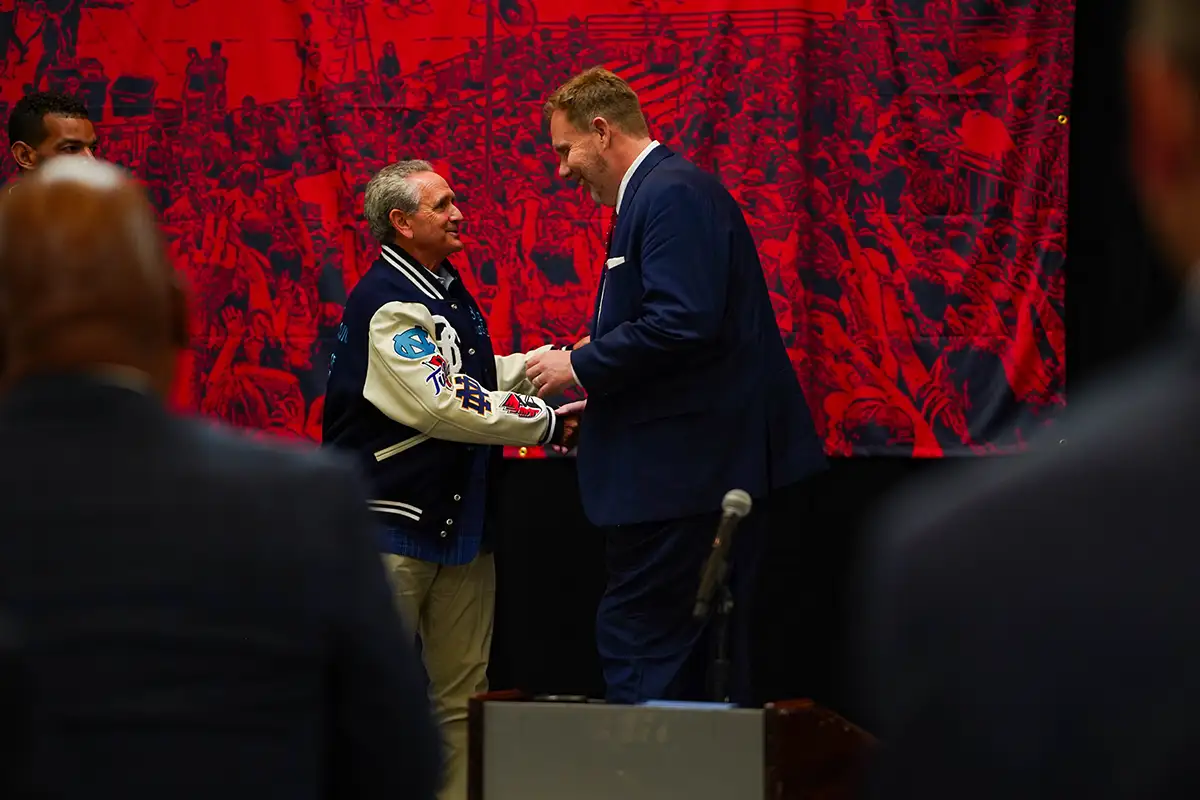
SIGHTs from cals25
Photography by Ava Miles
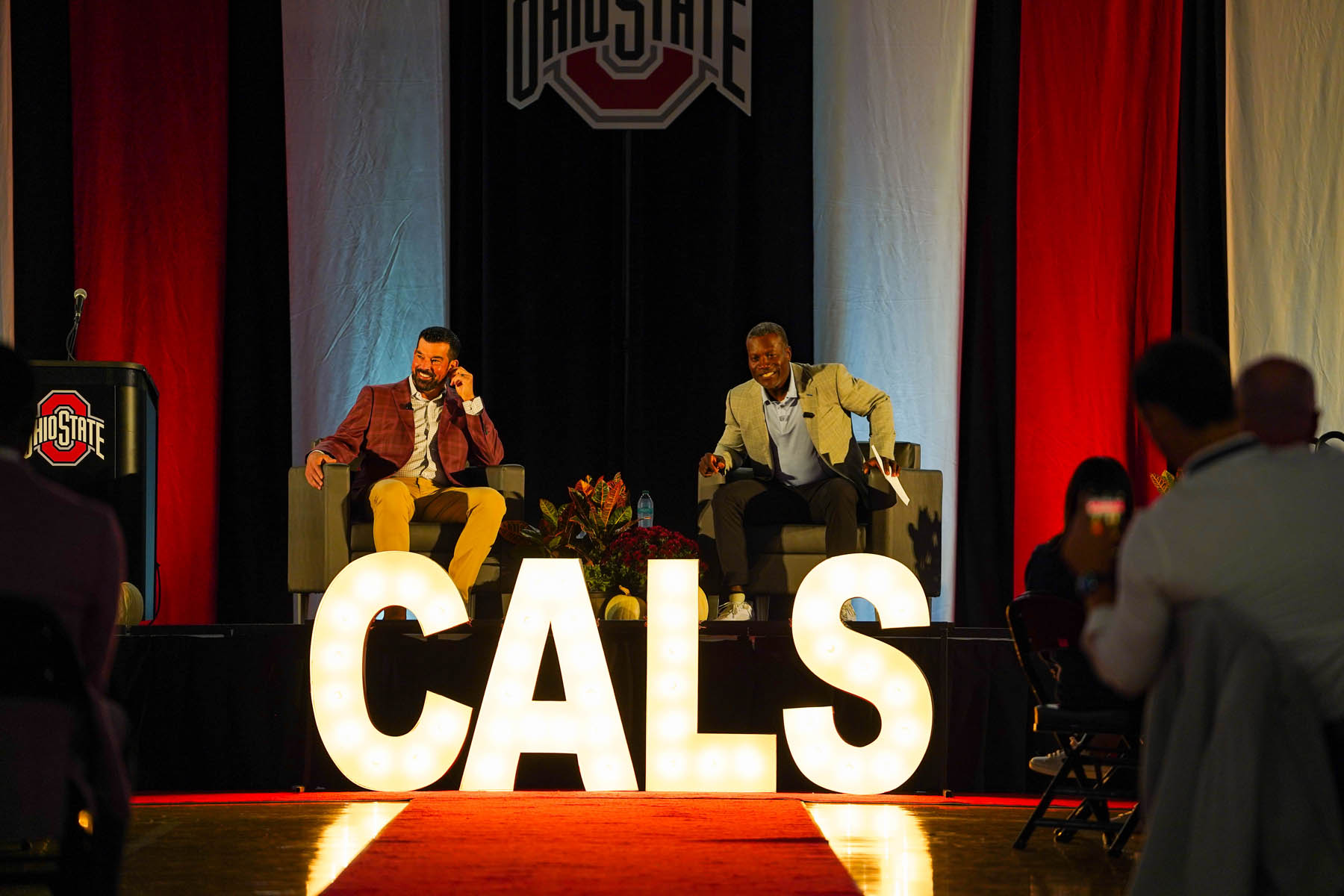
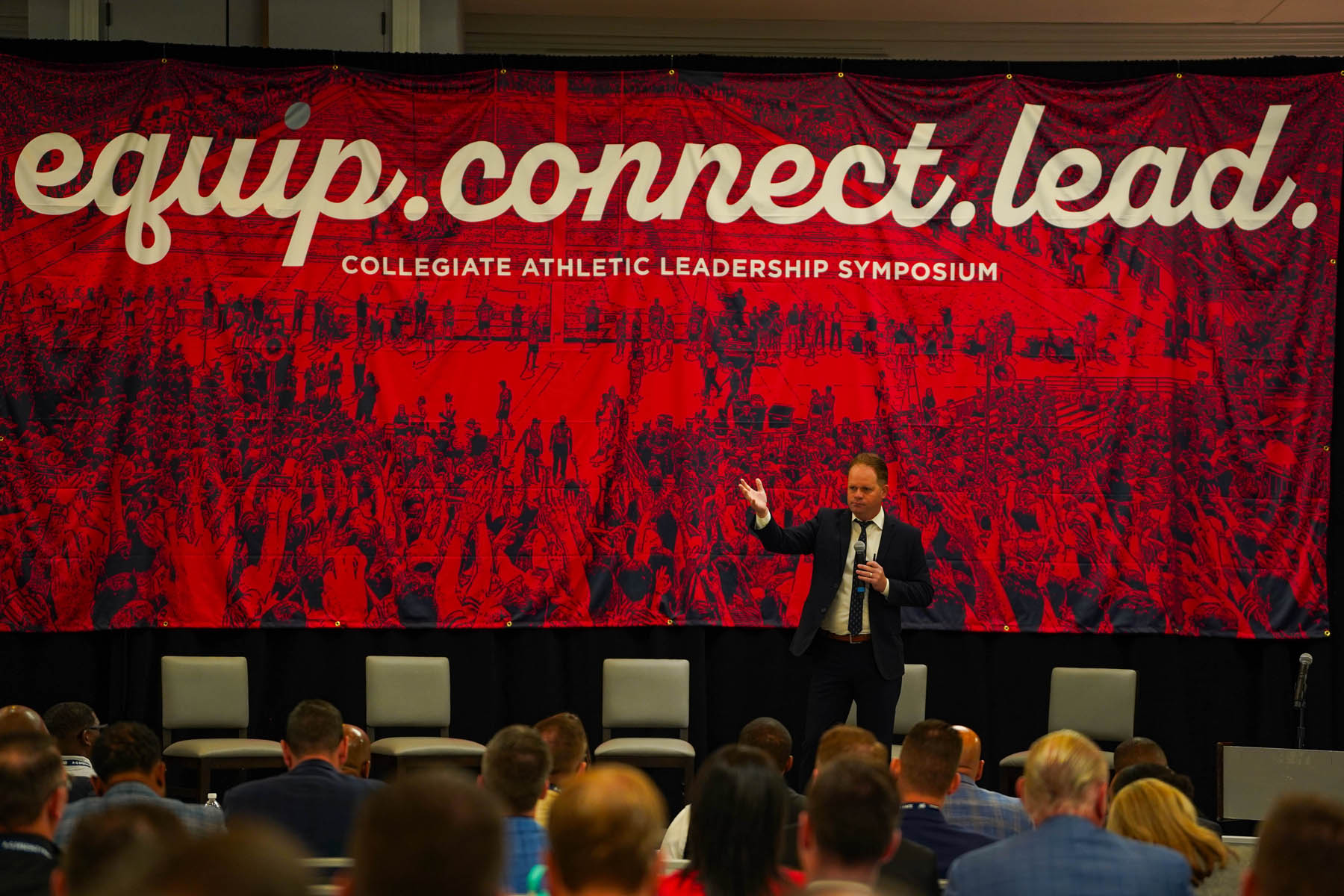

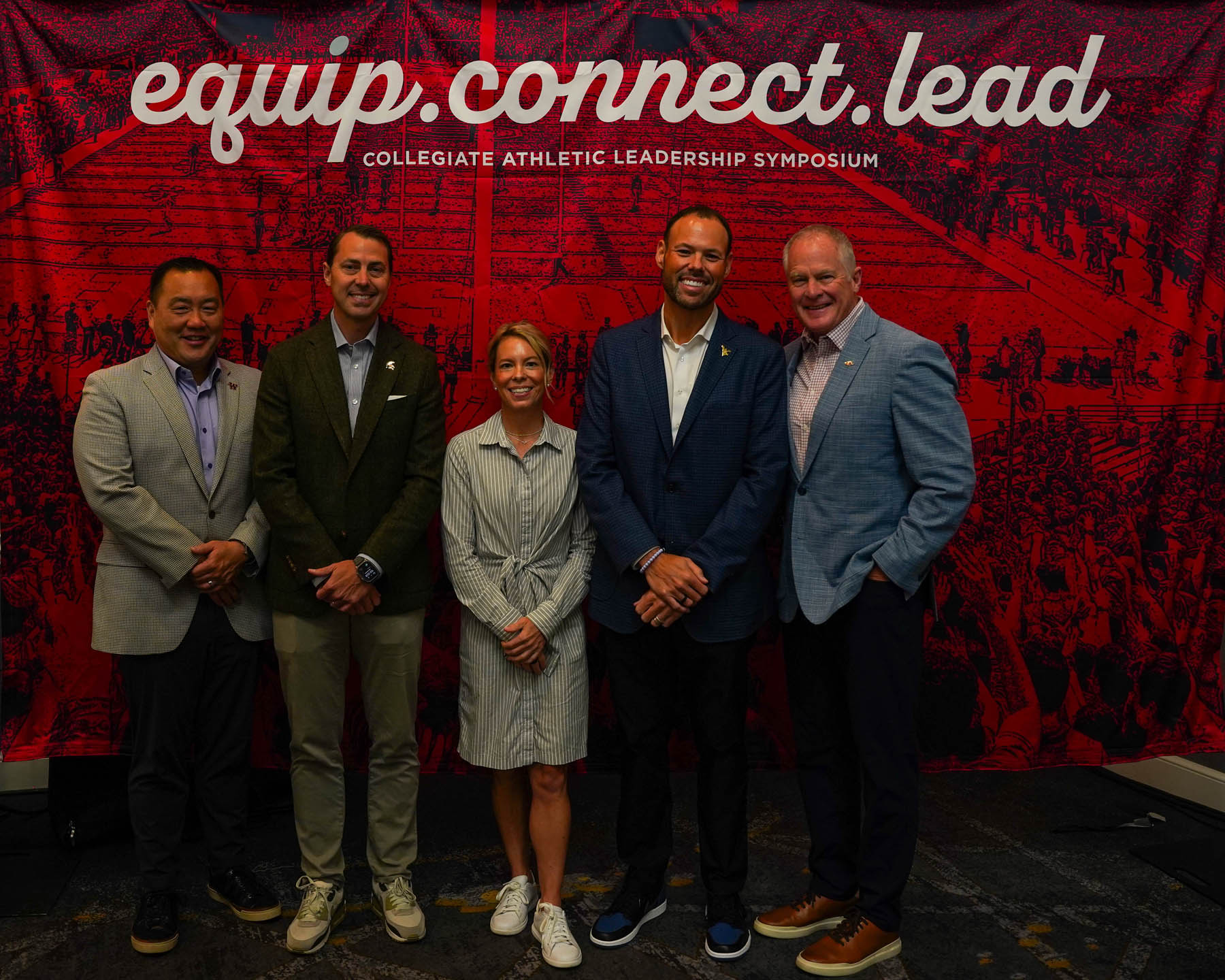
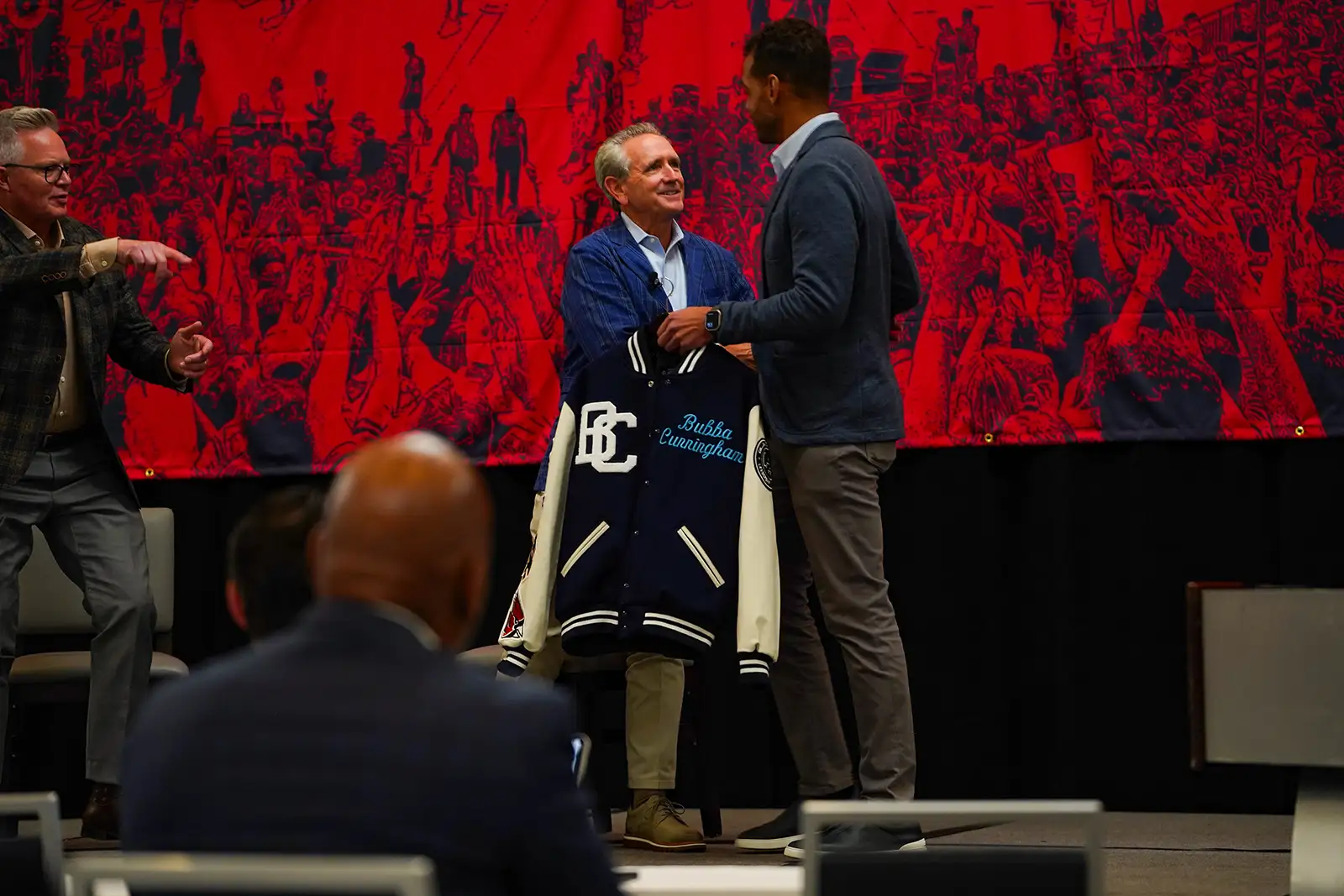

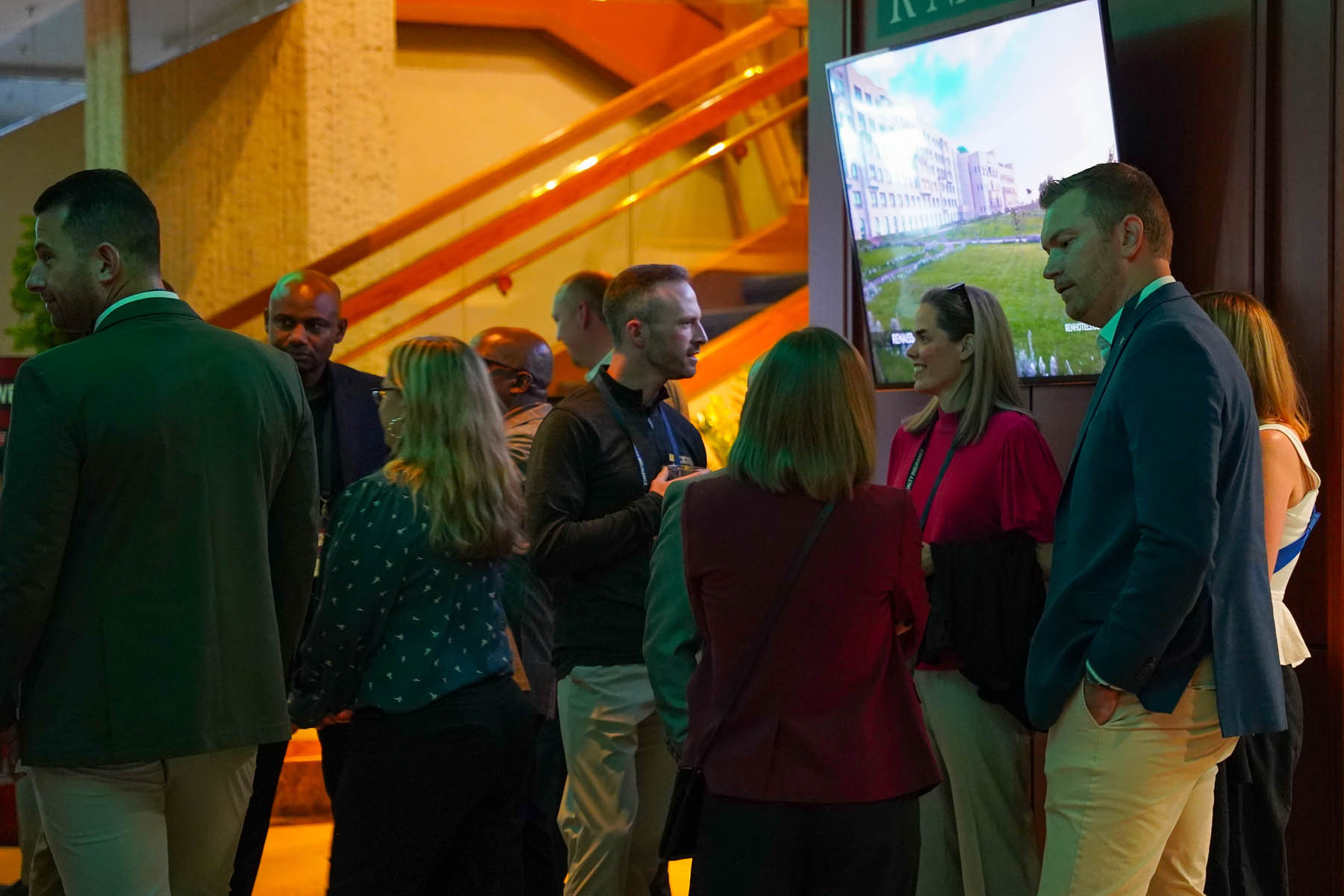
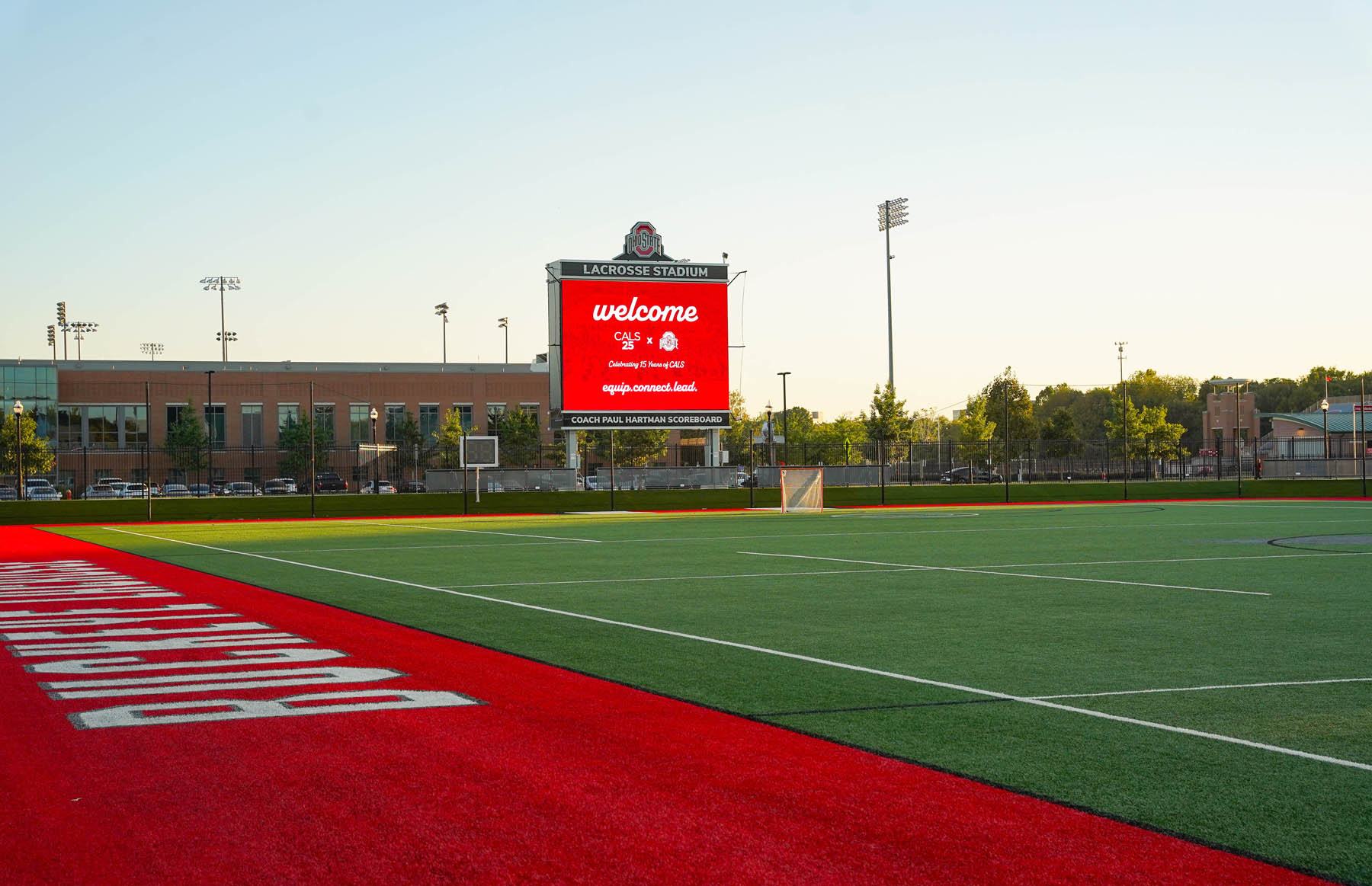
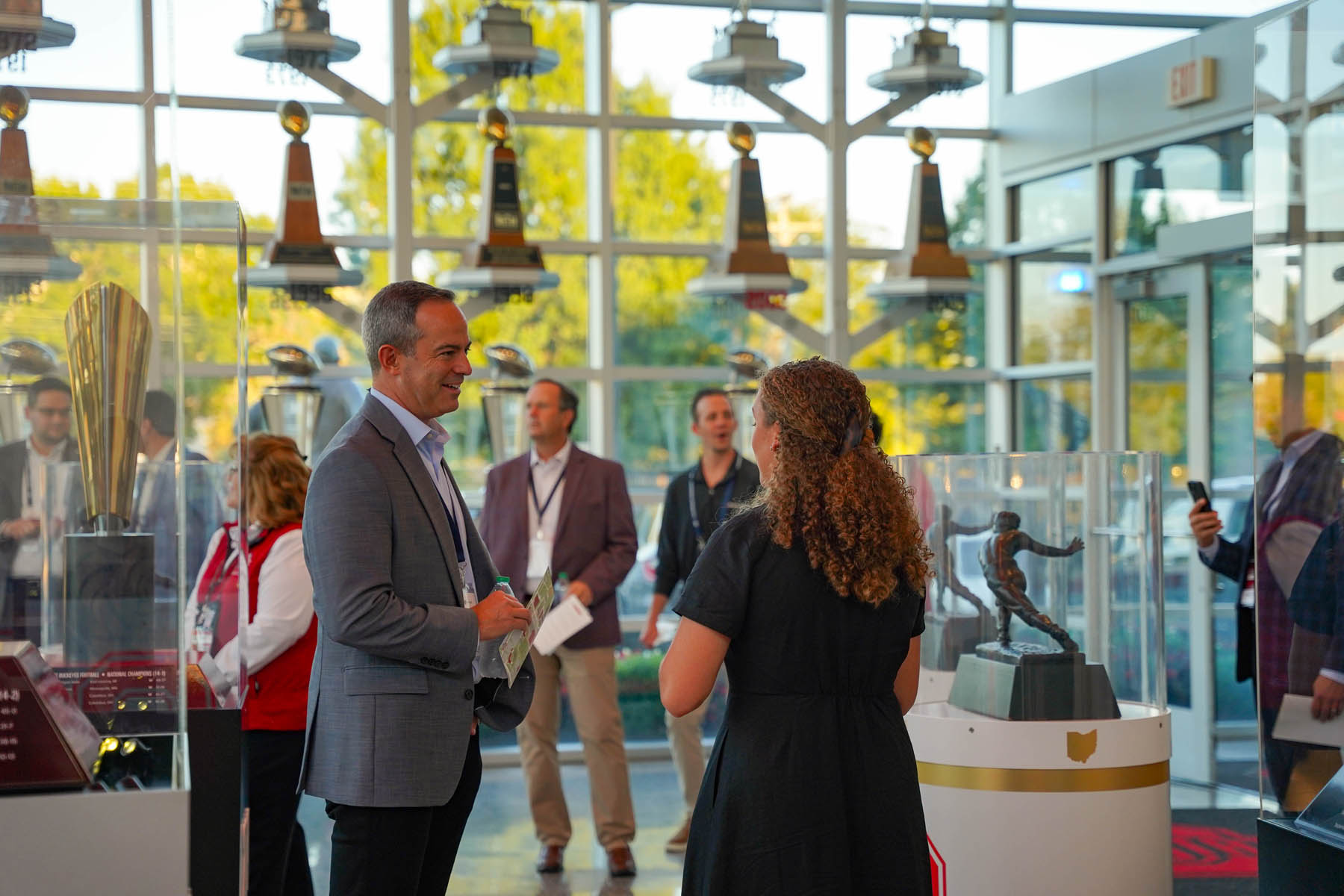
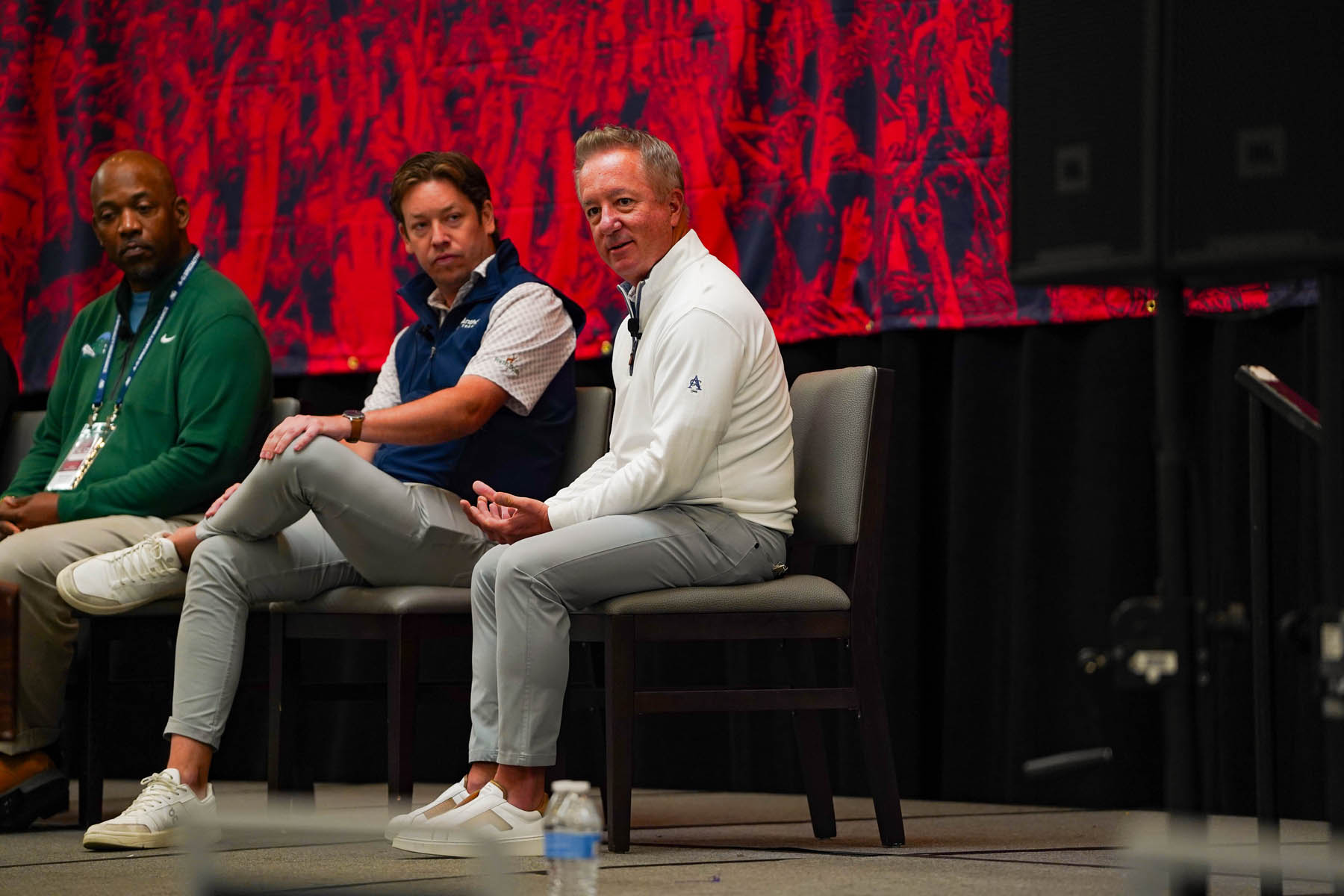
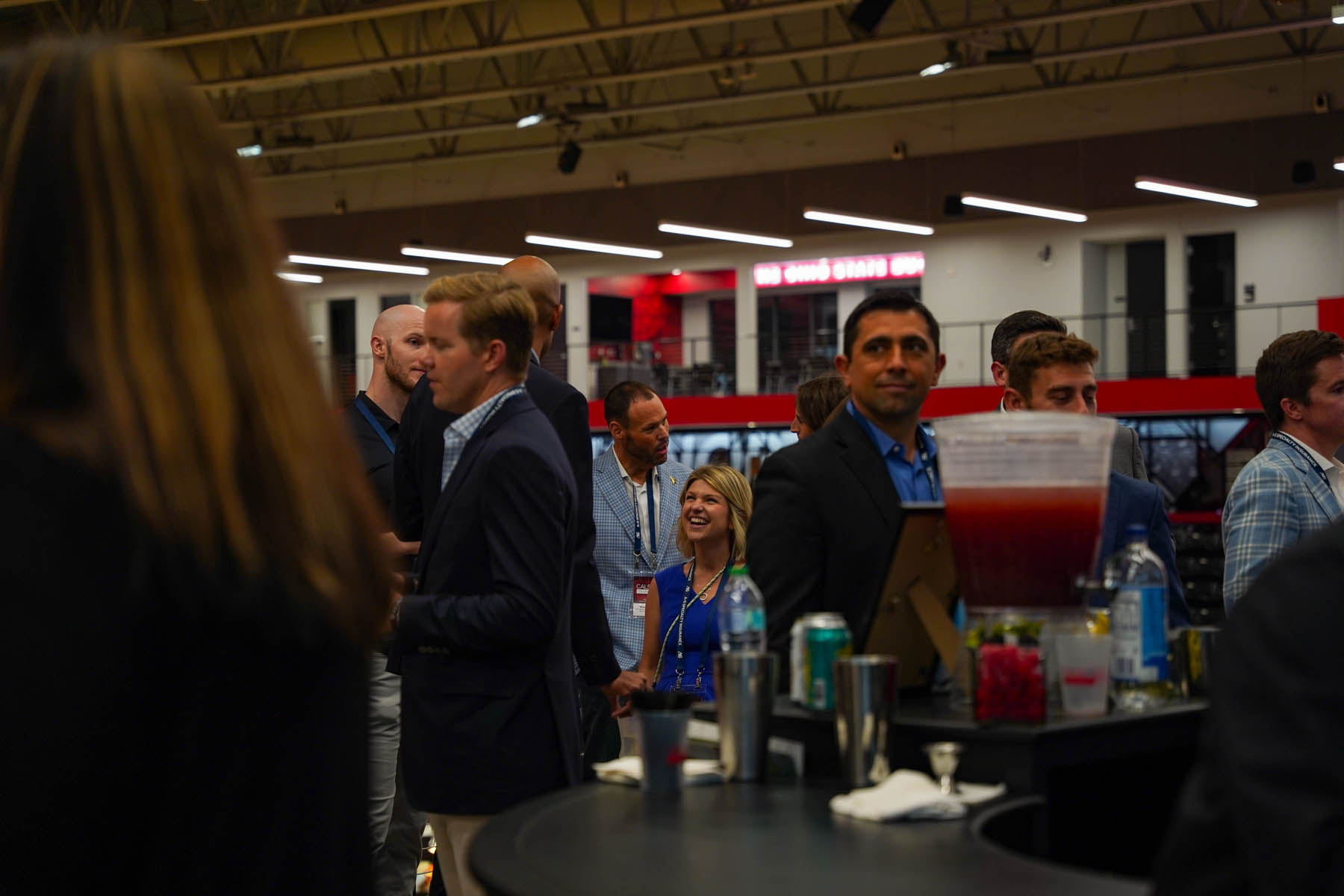
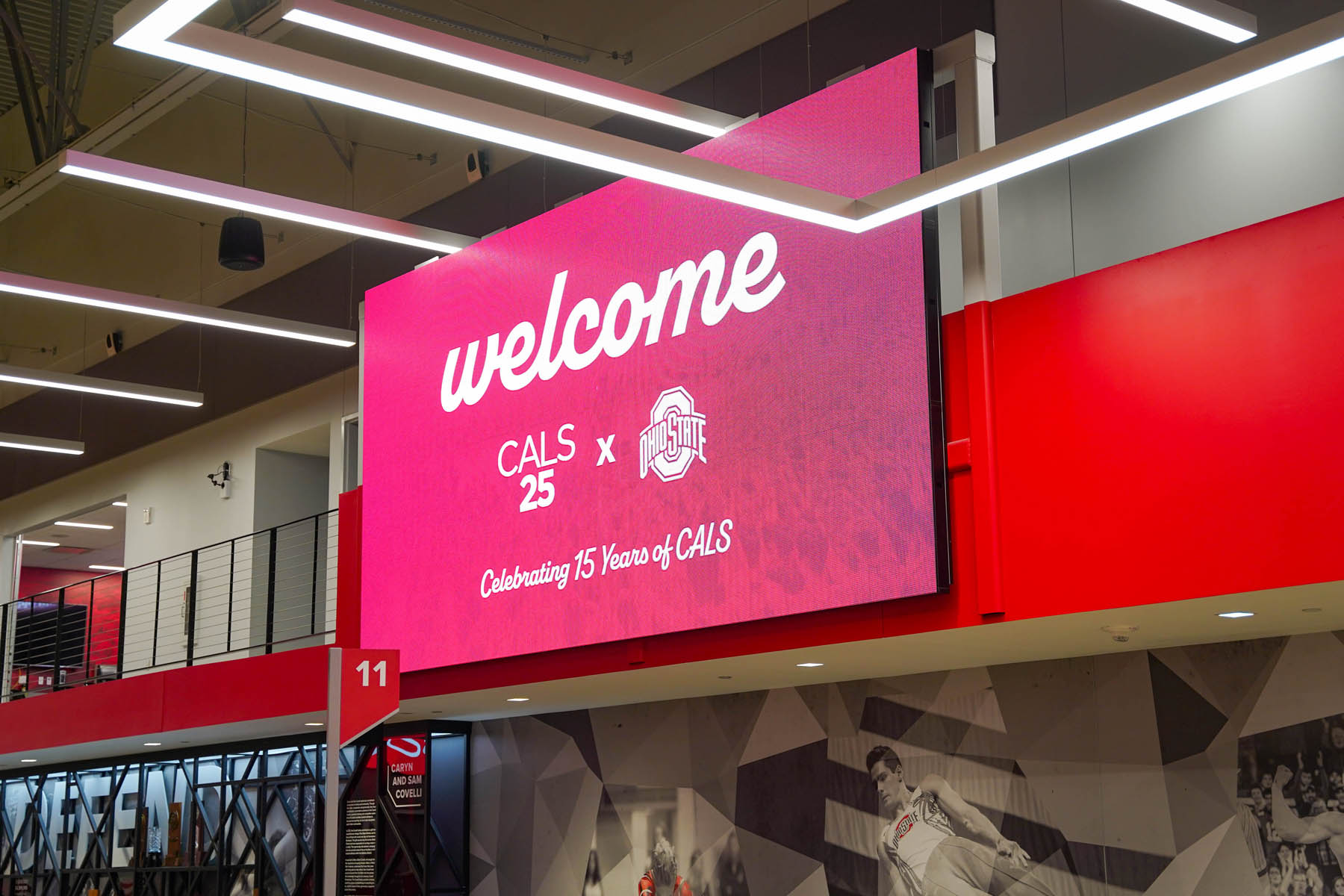
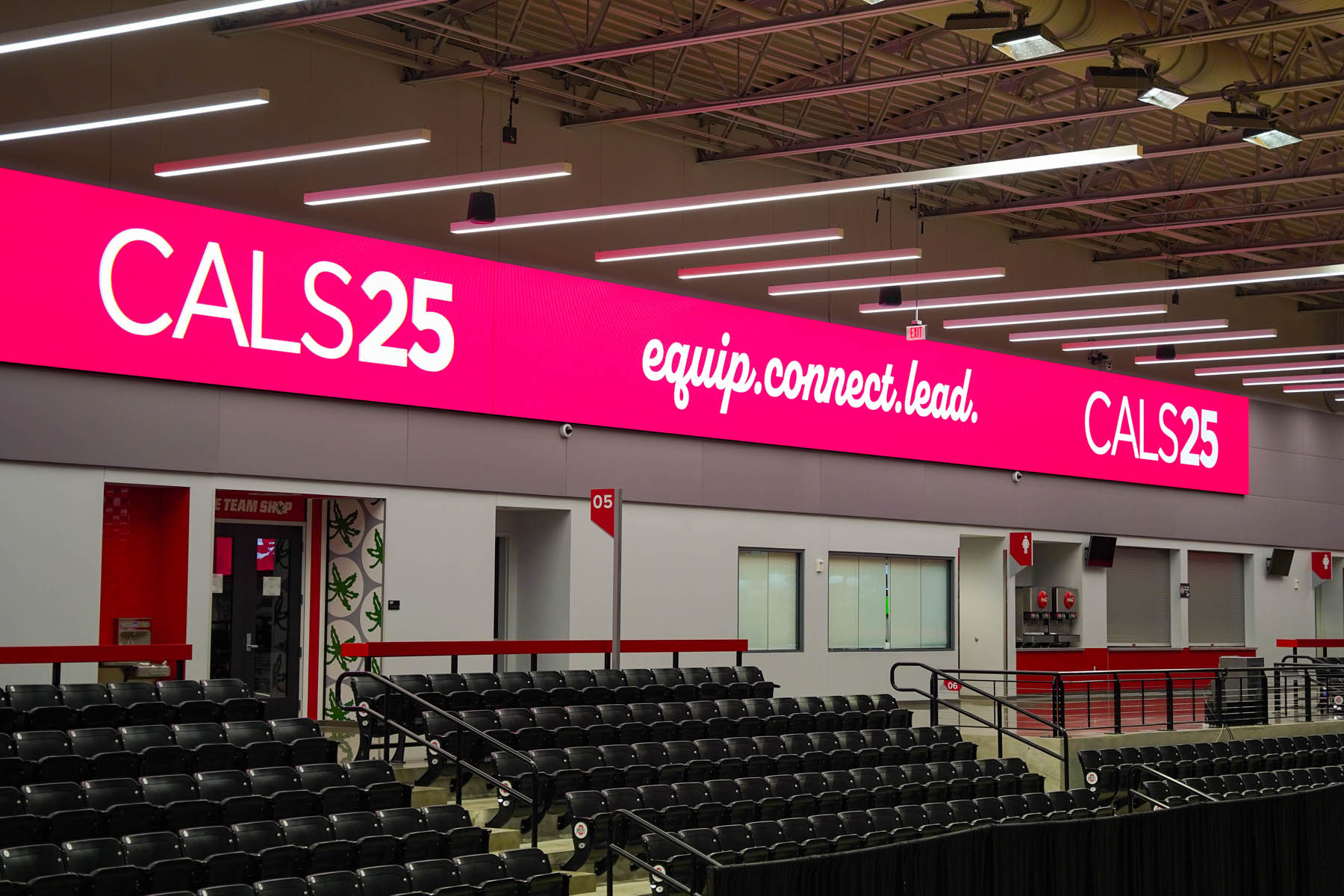

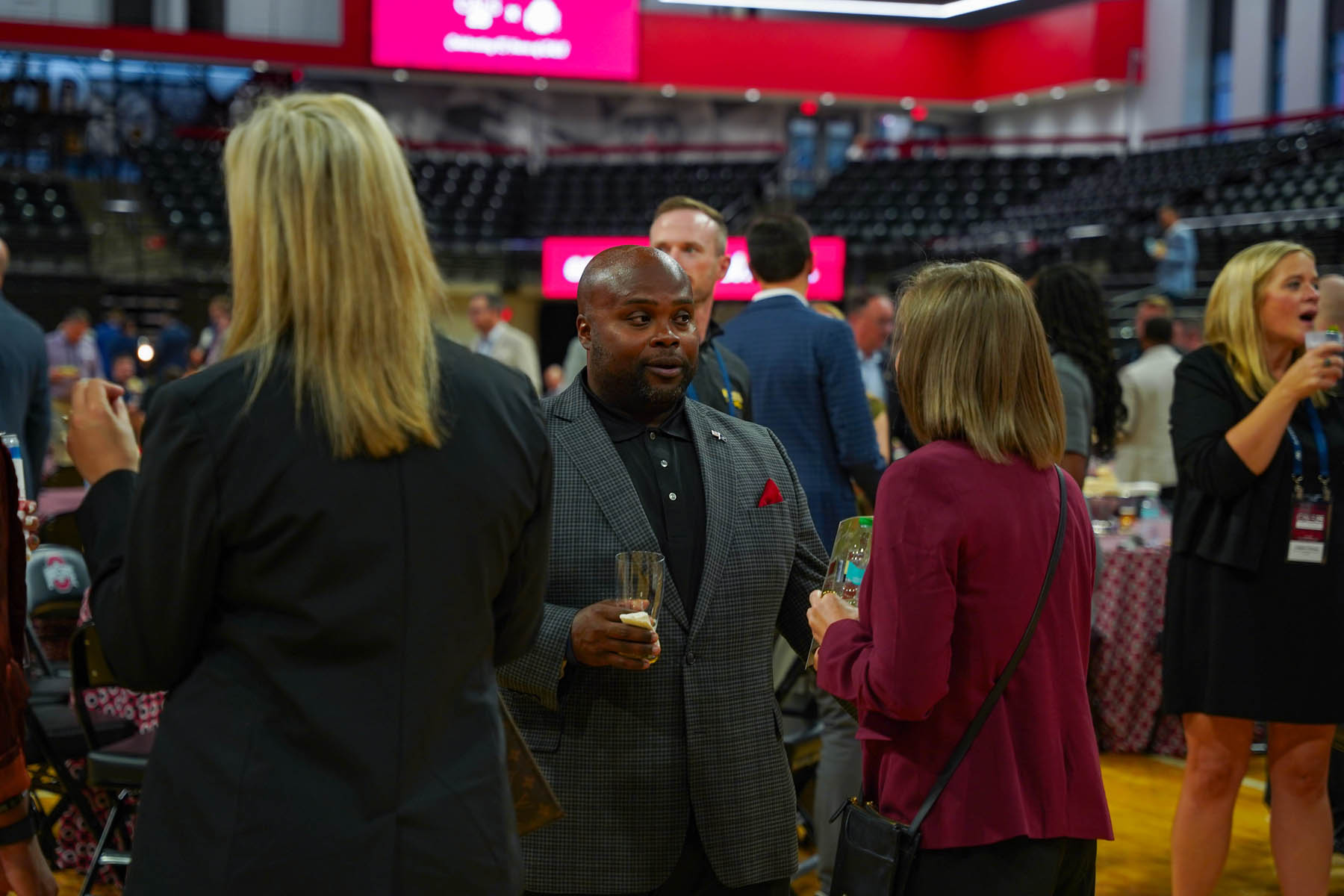
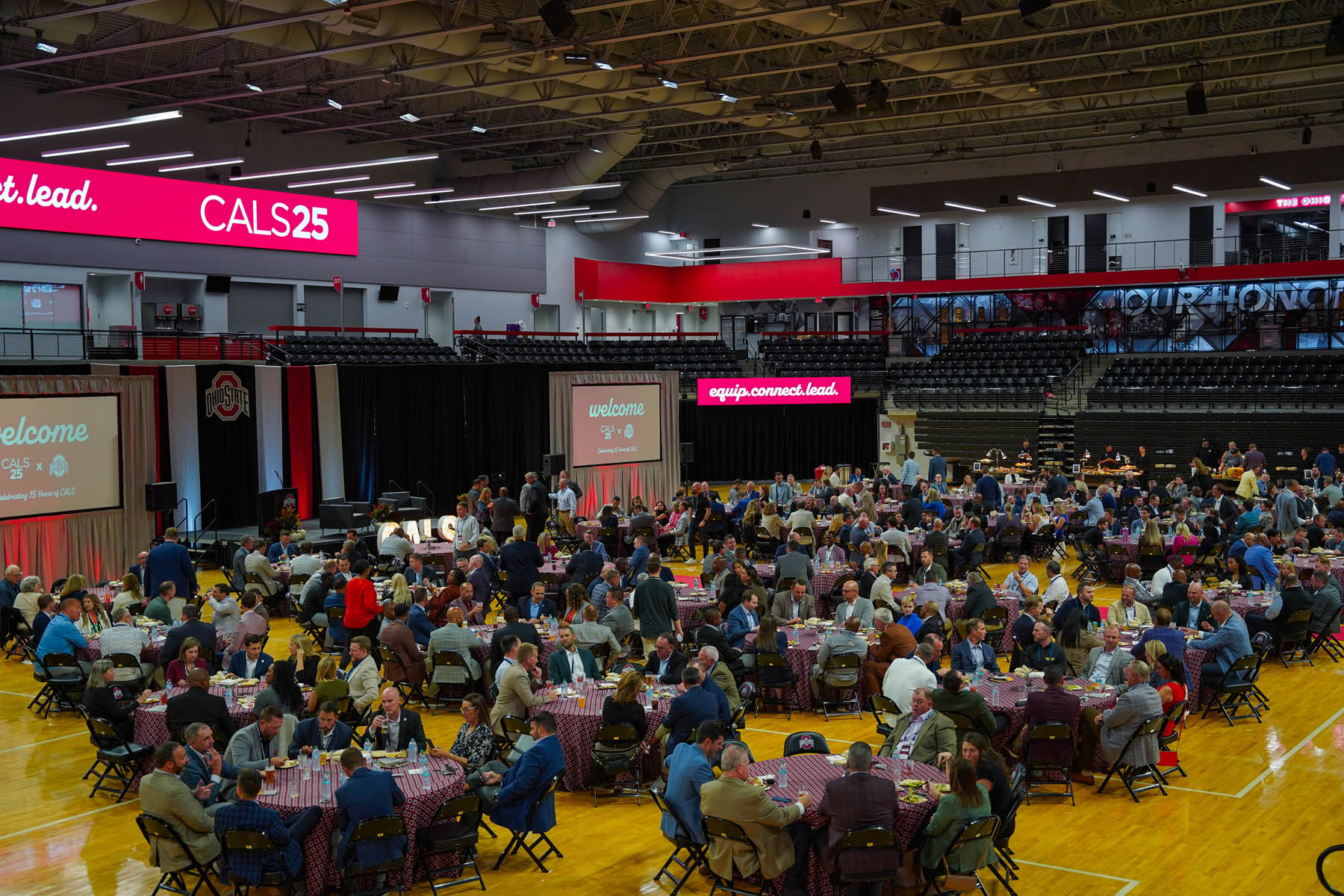


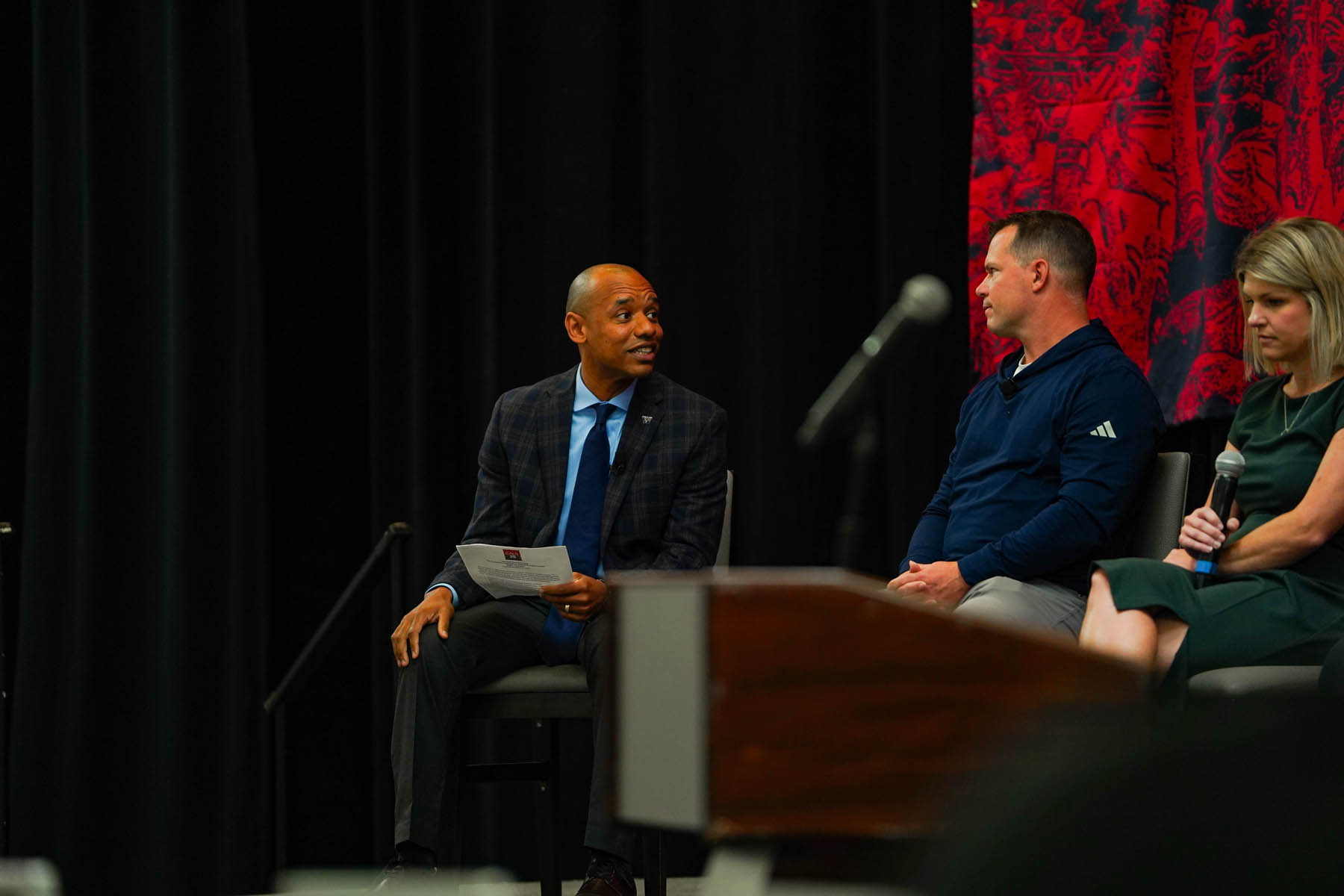
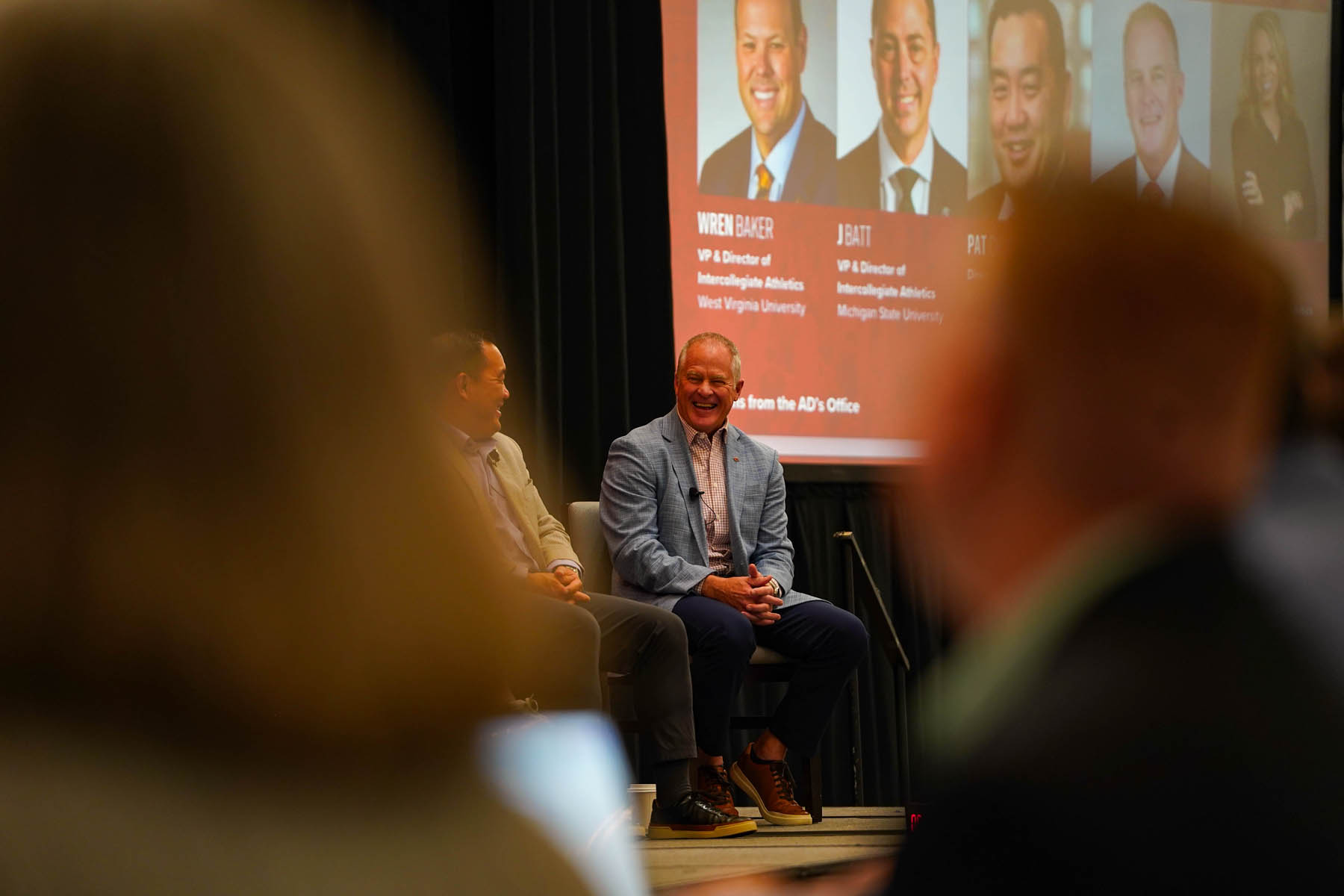
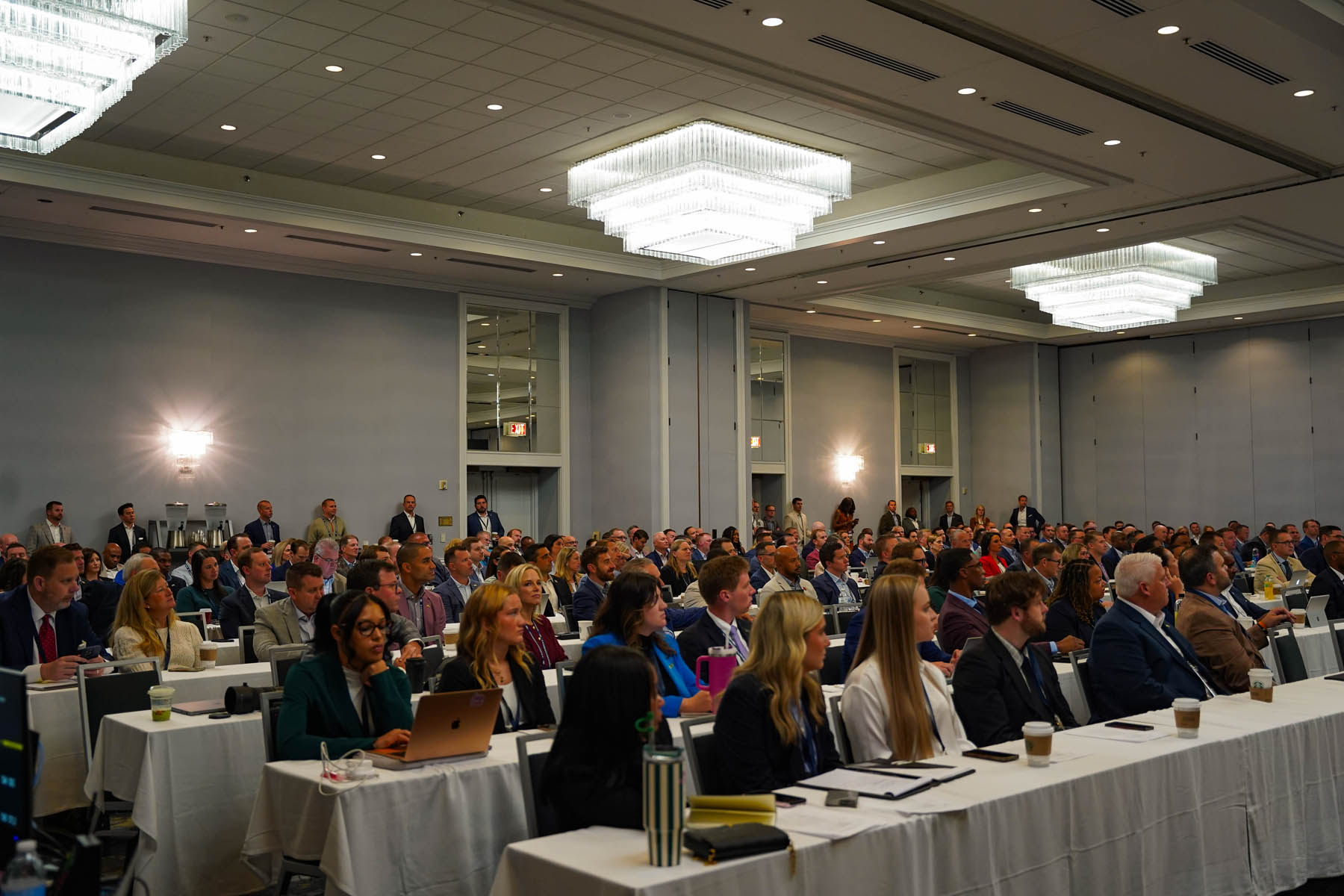
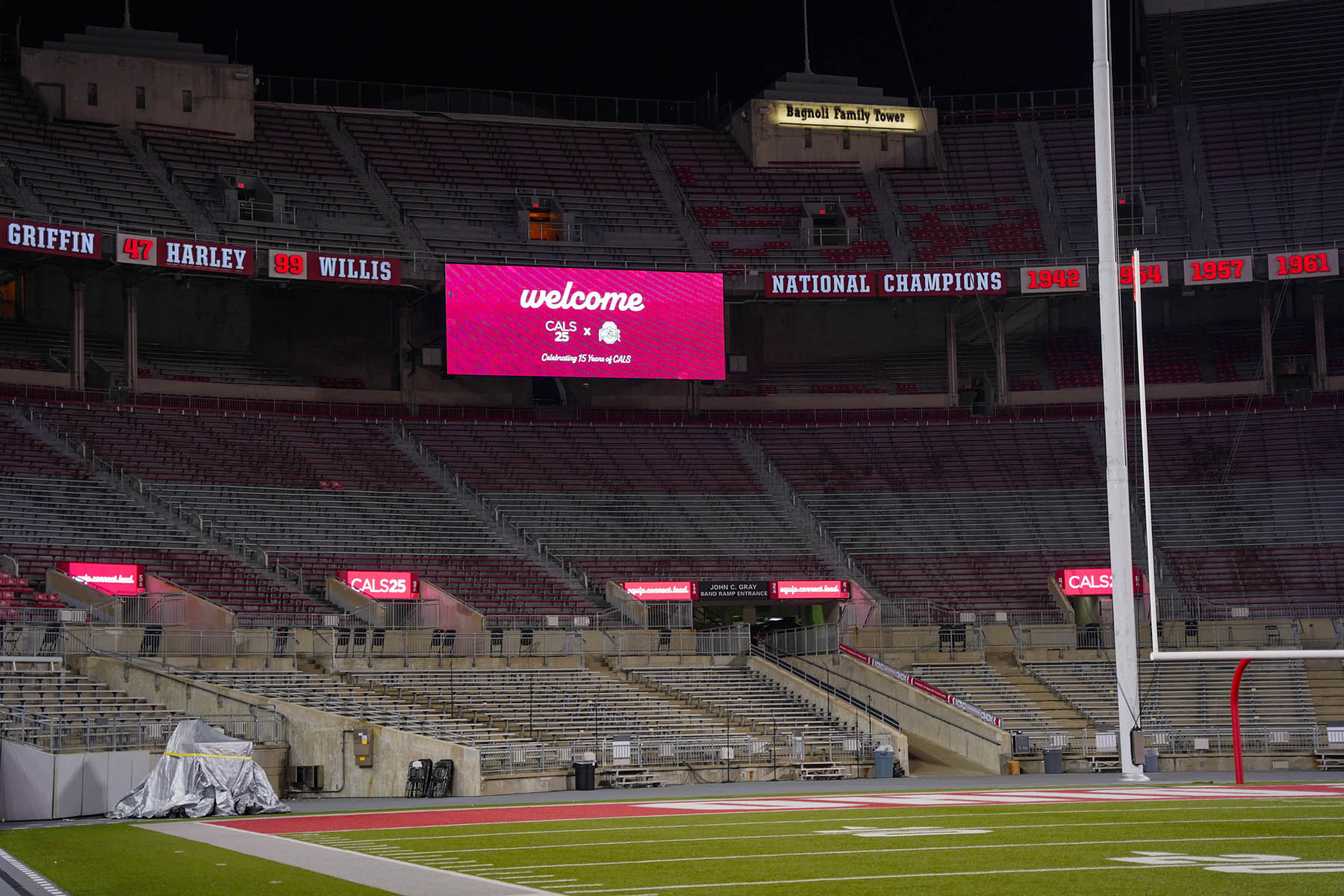
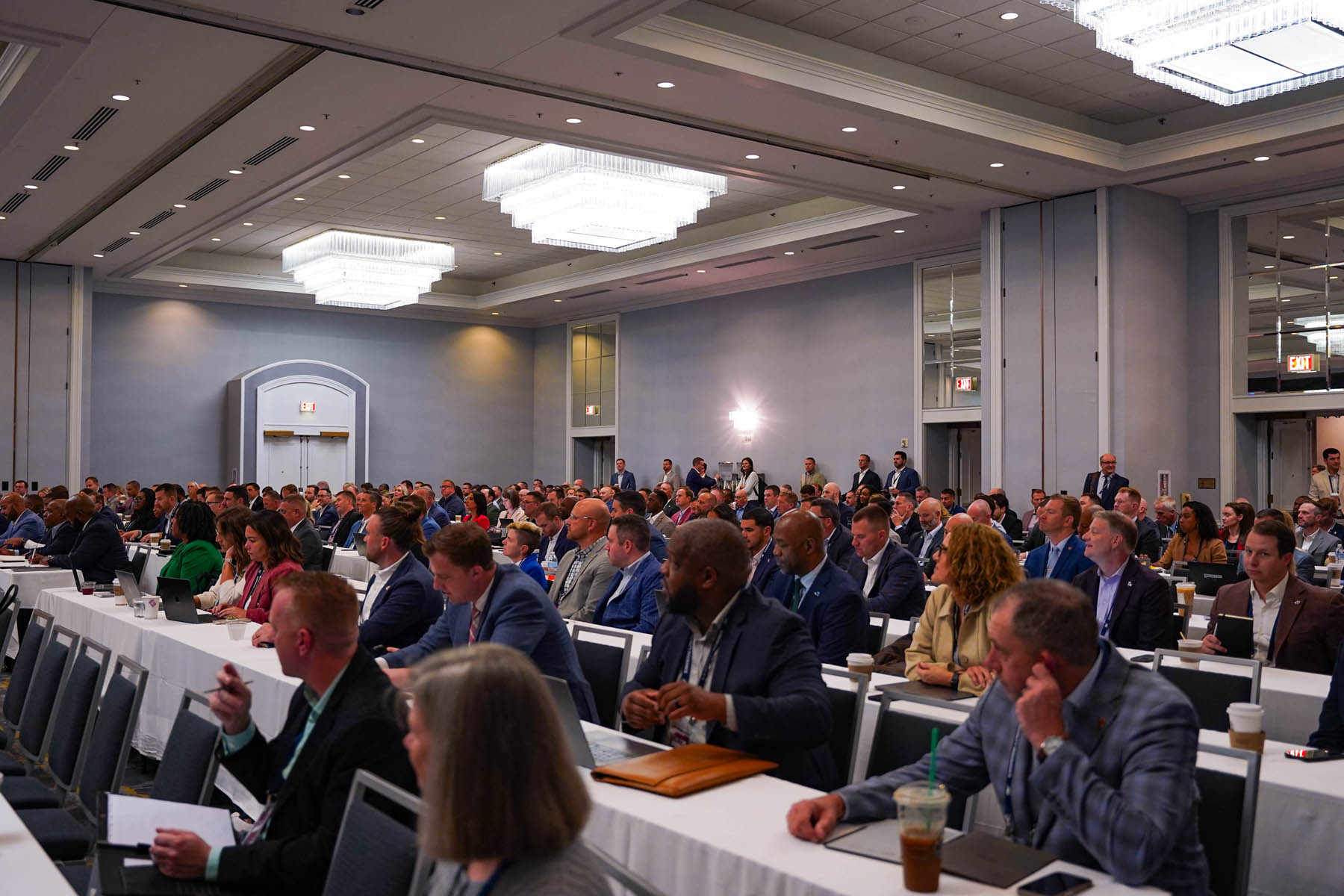
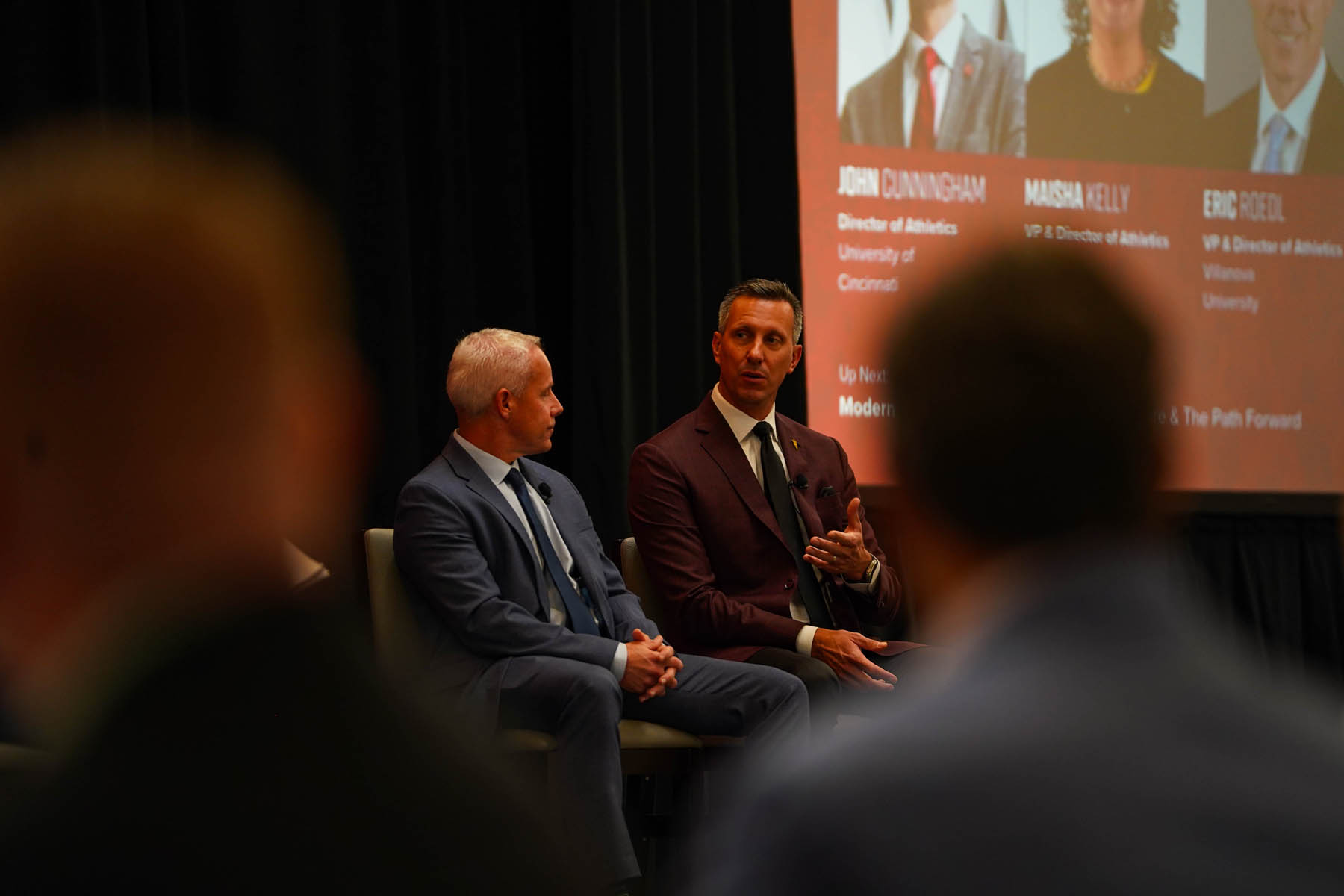
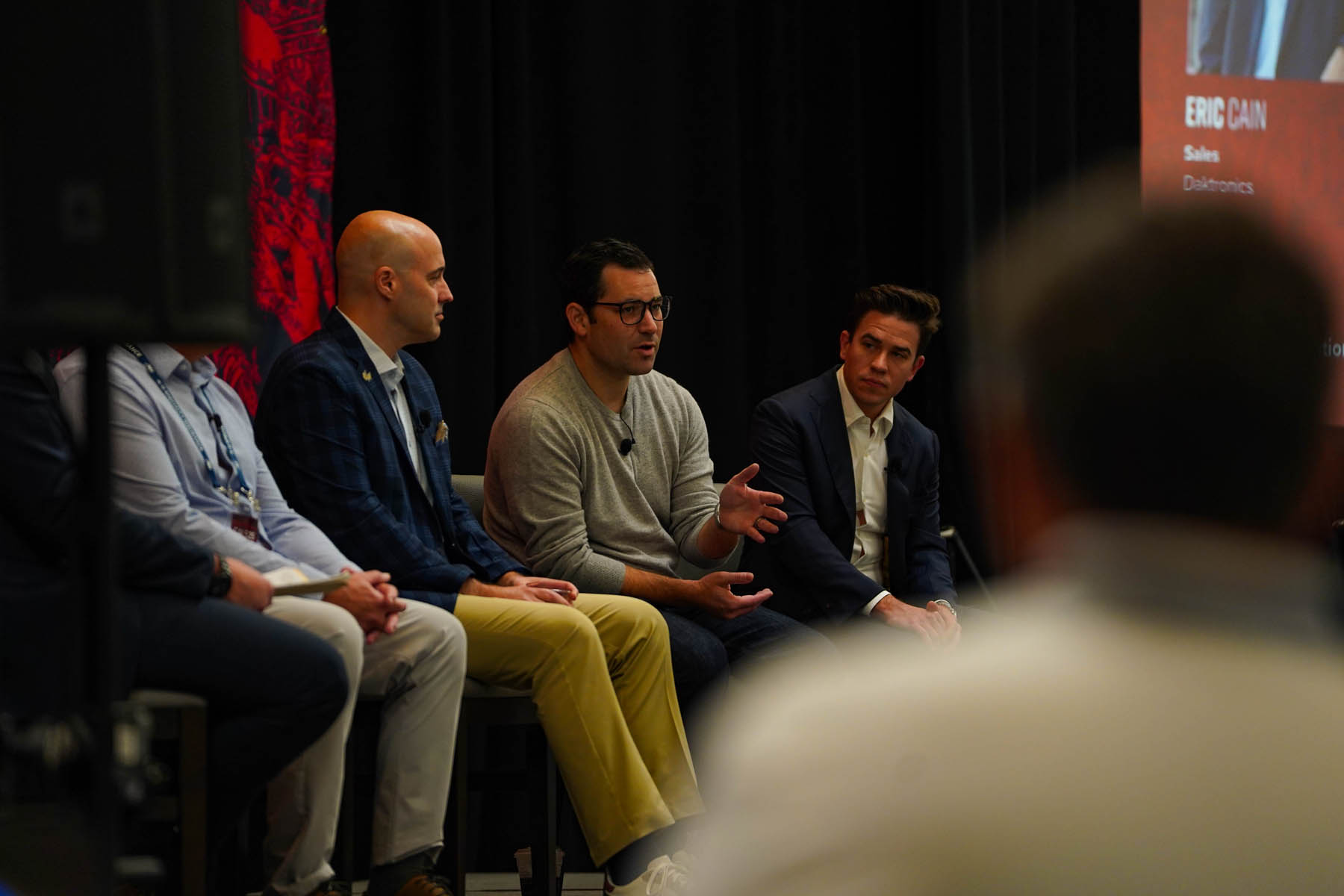
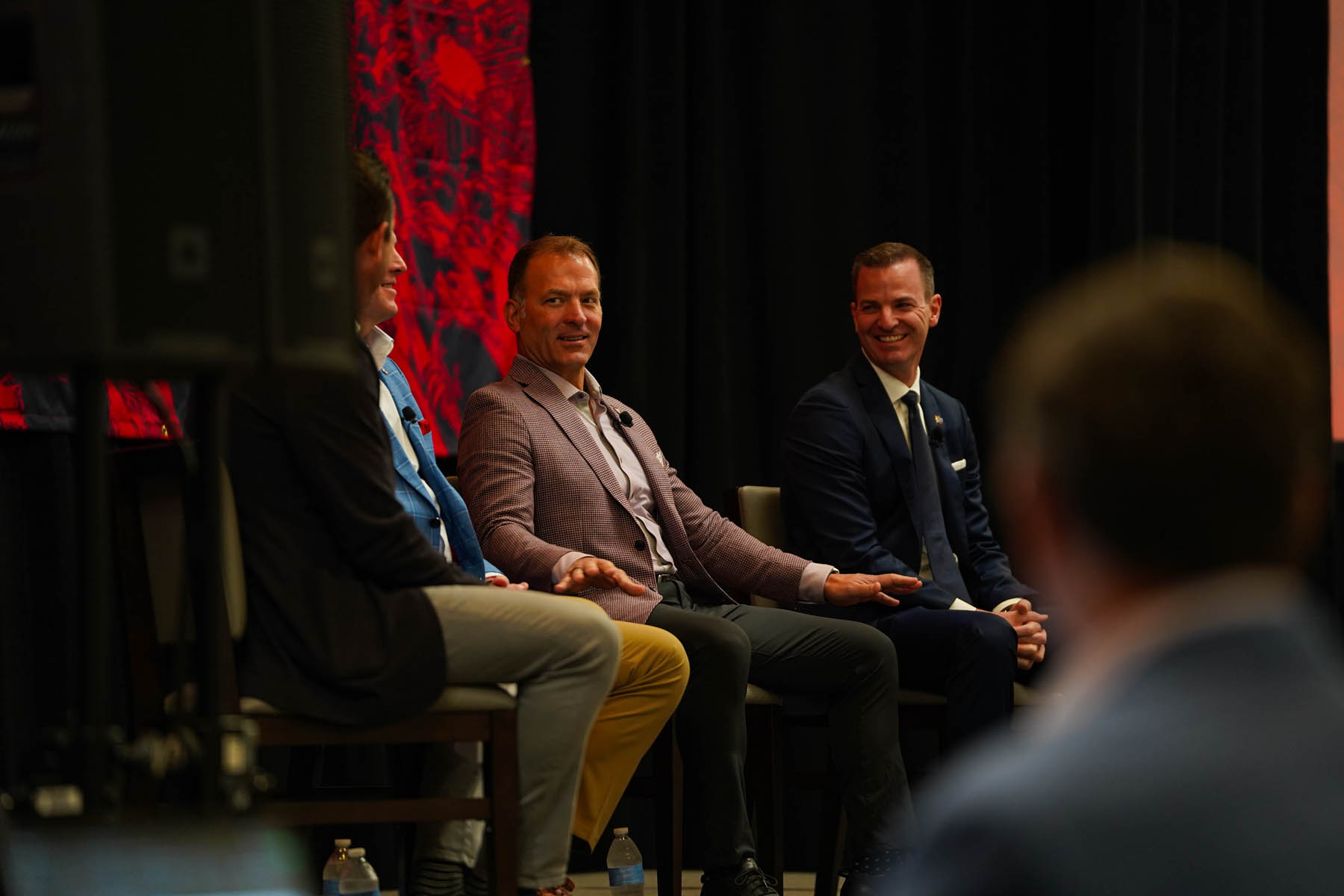
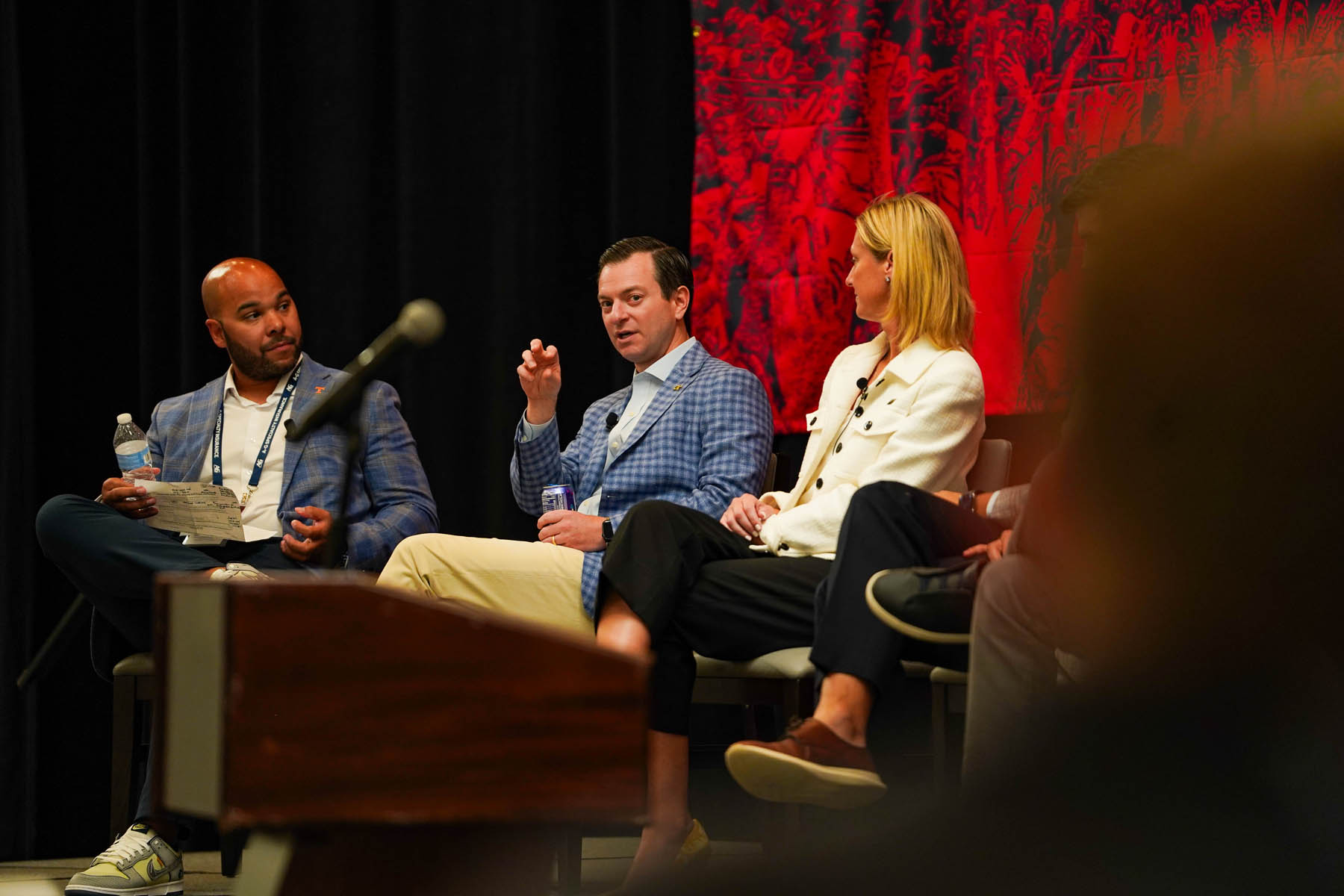

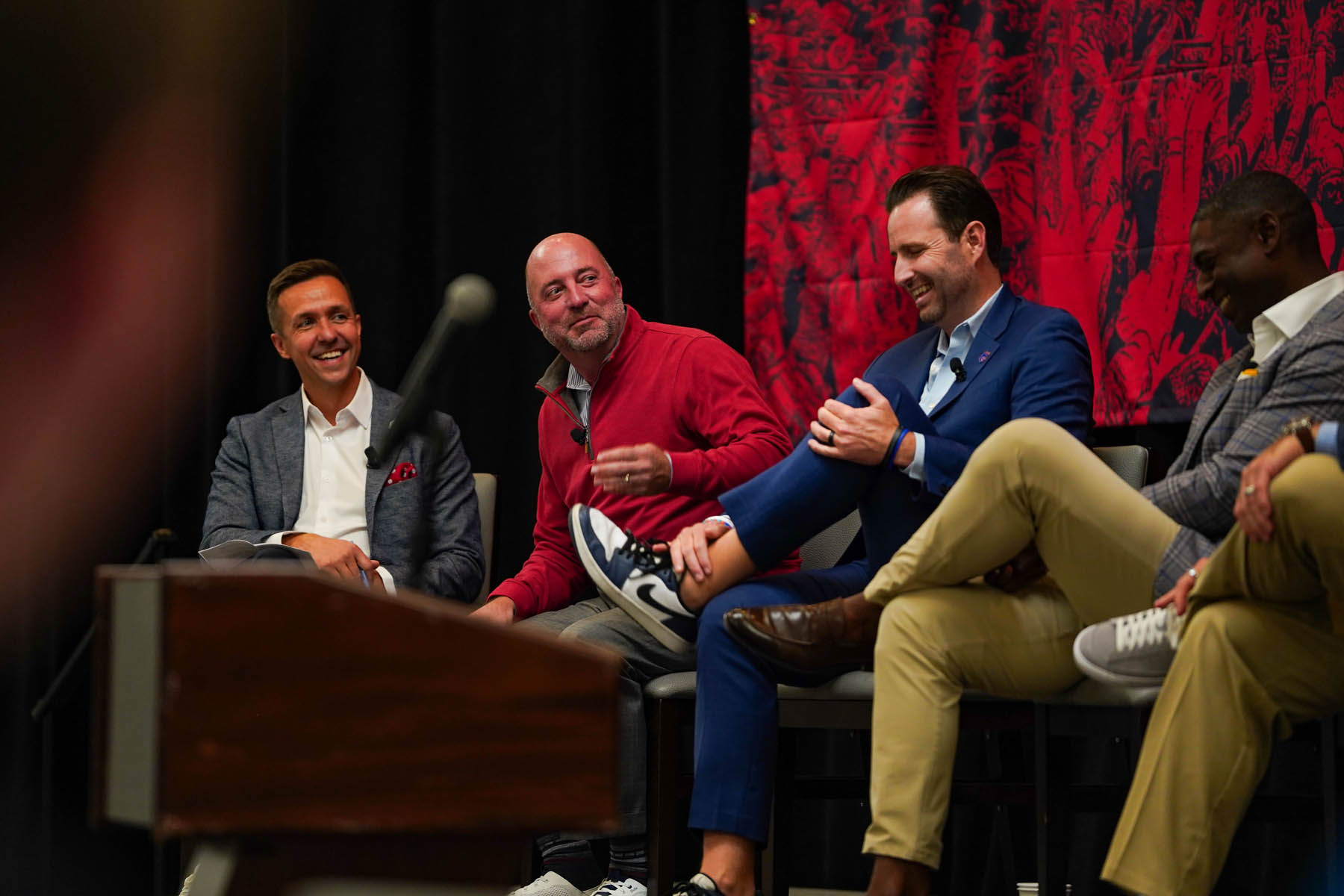
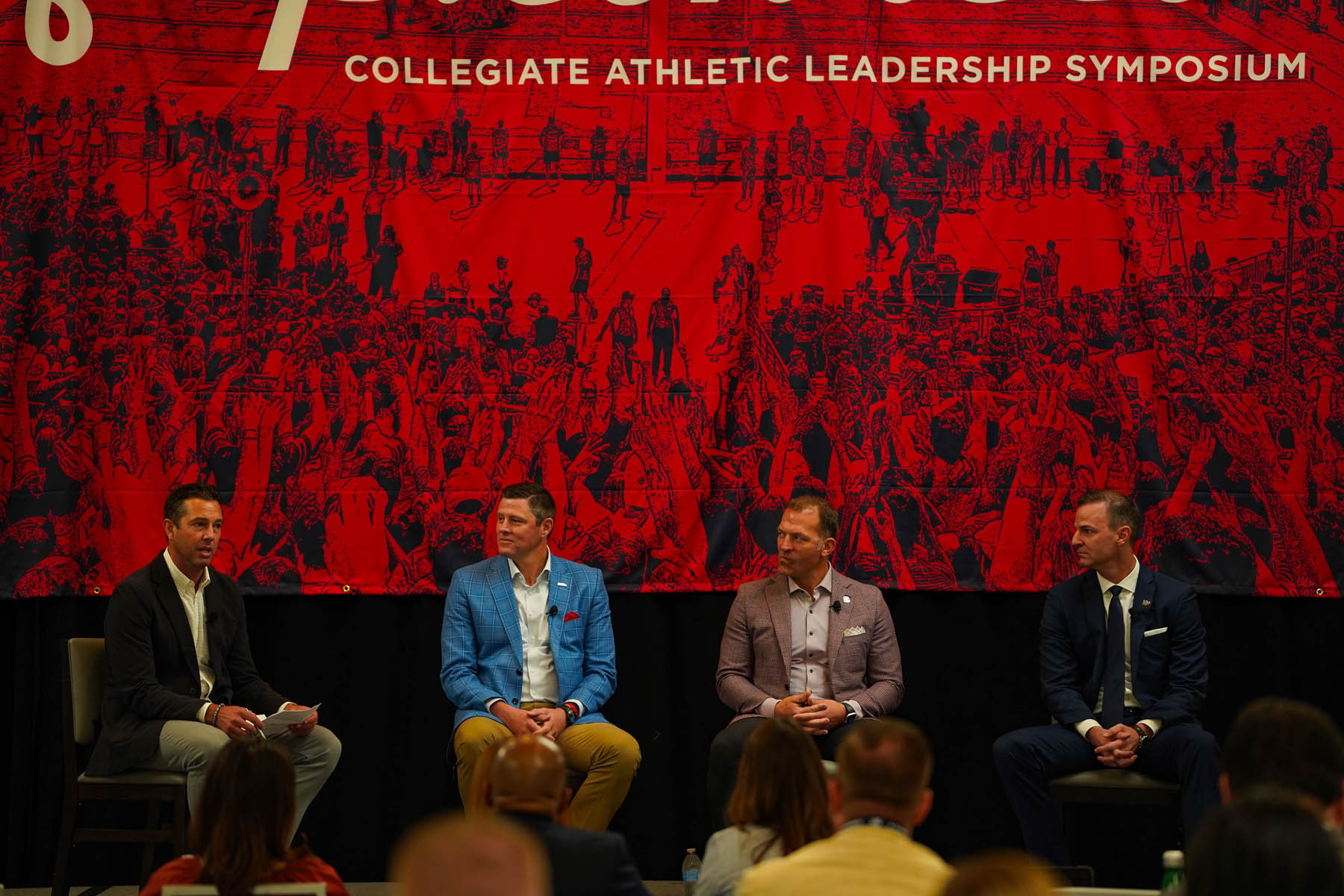
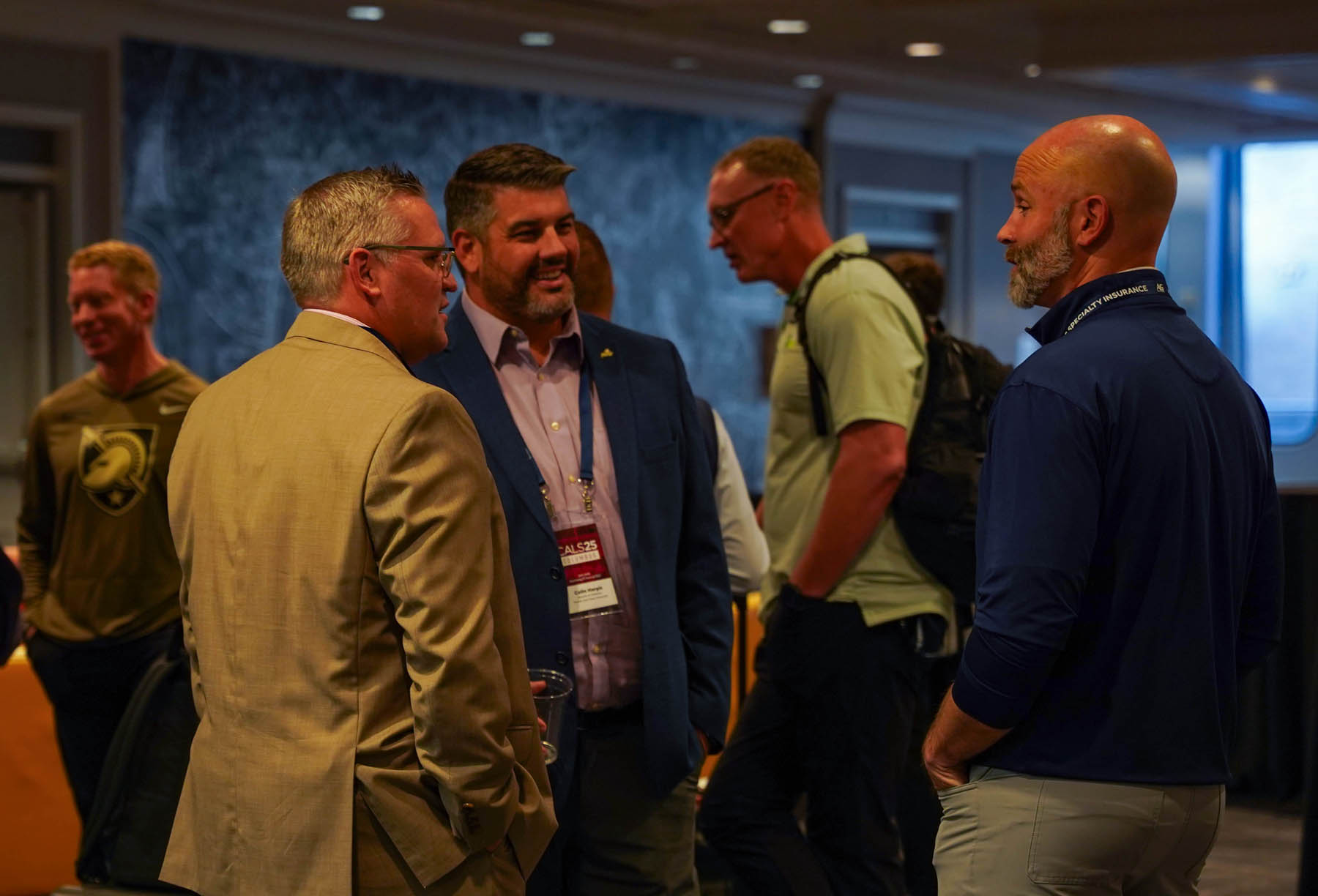
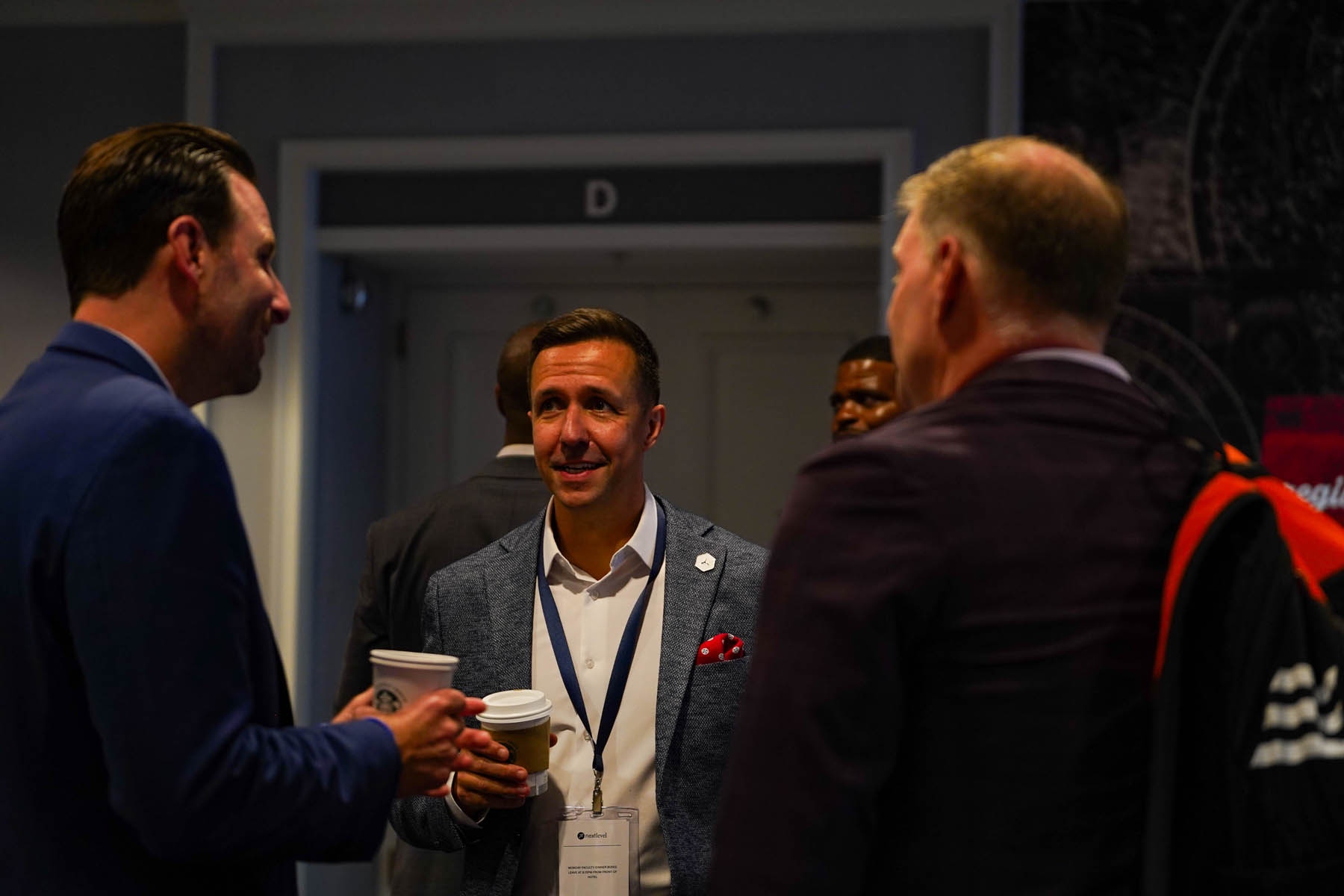
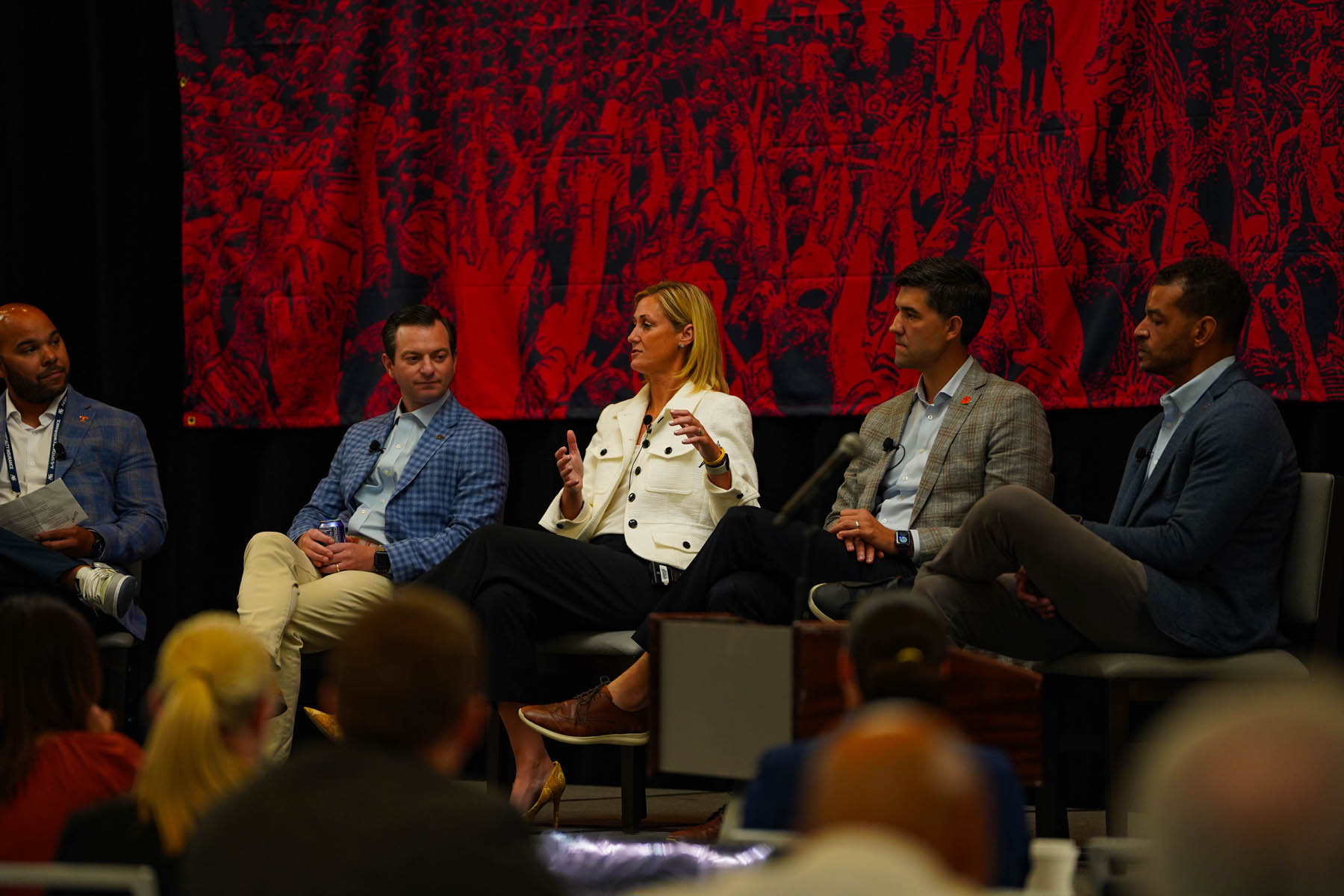
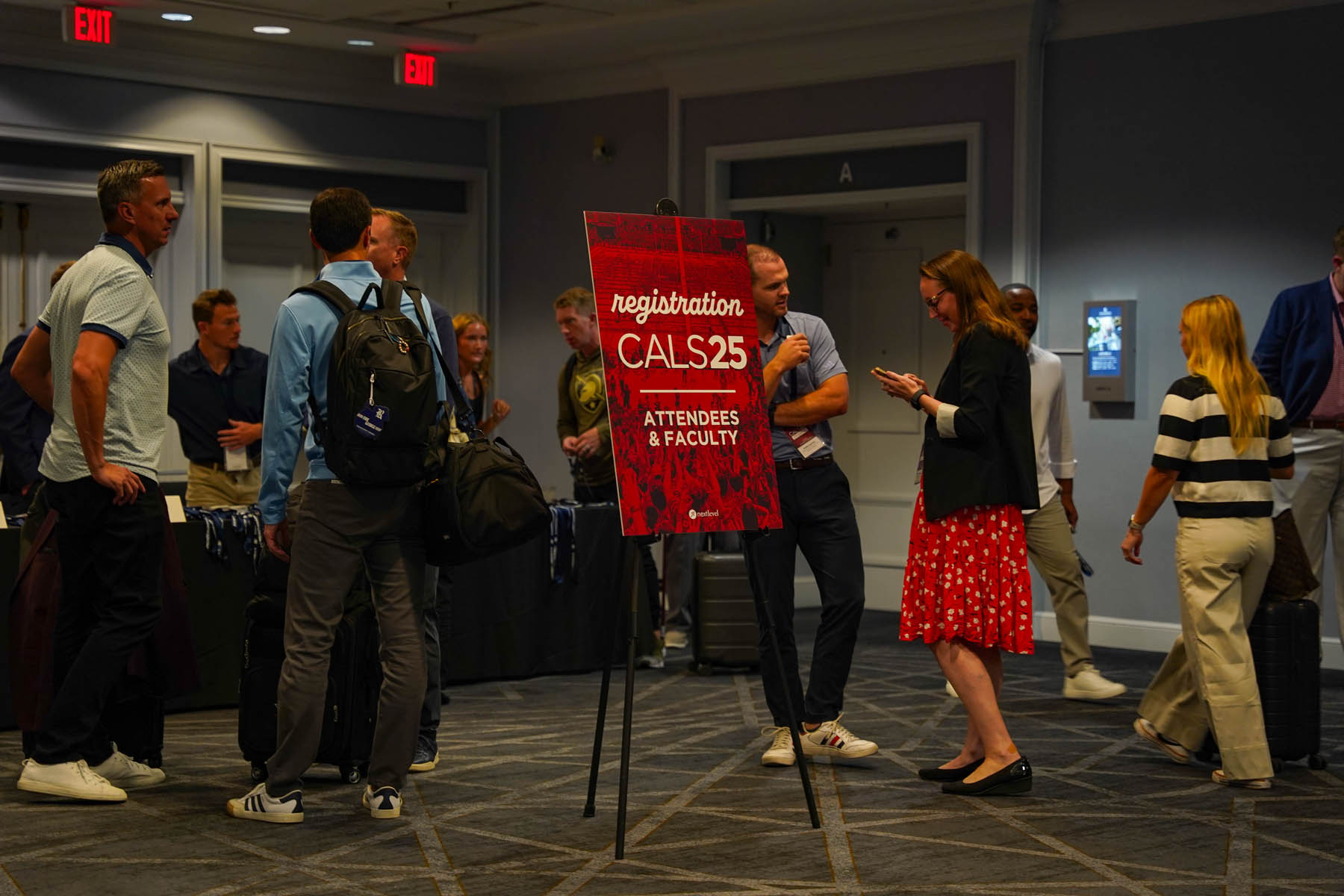

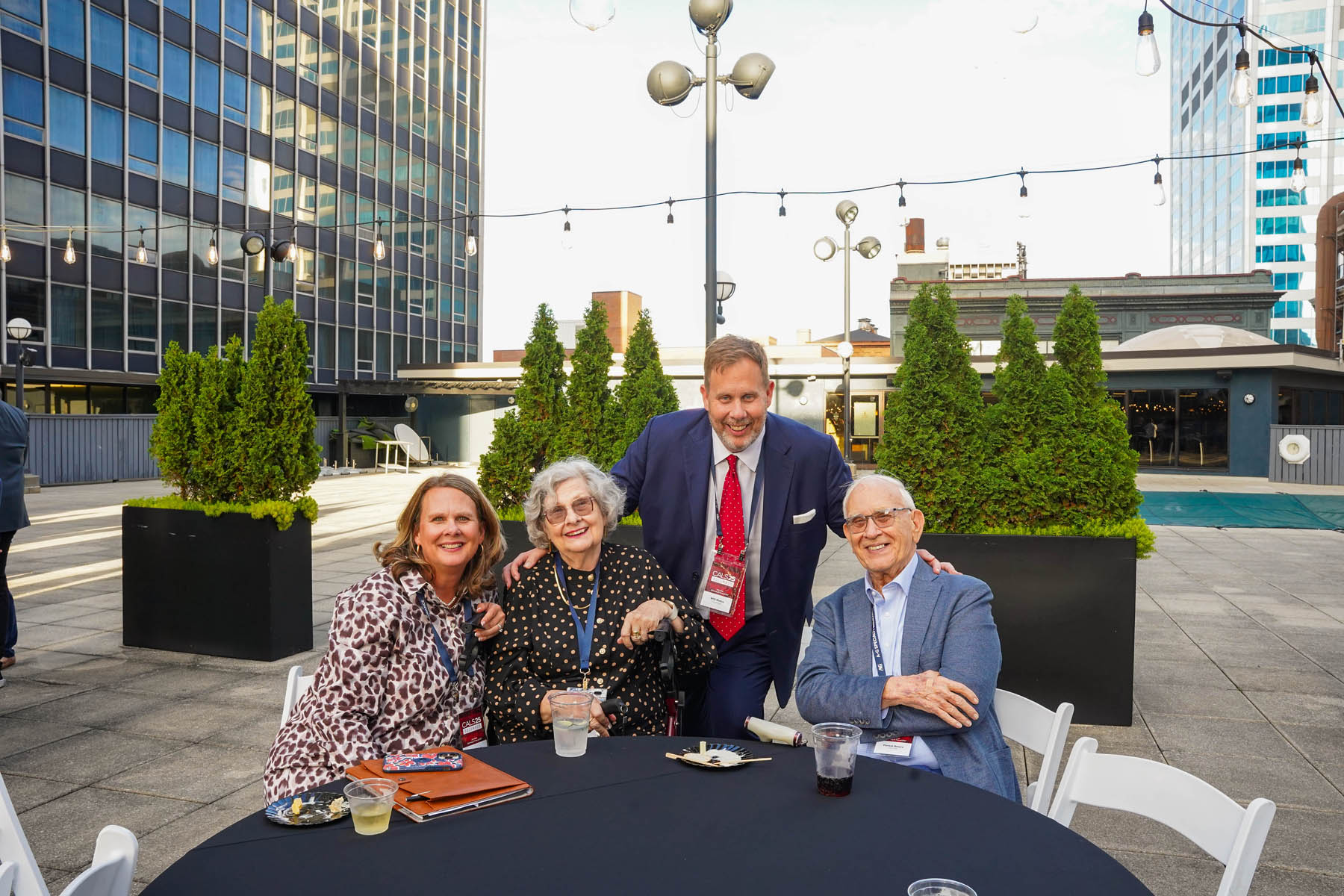

Ross Bjork
on Alignment, Accountability, and the CALS Community
by Ryan Bradley
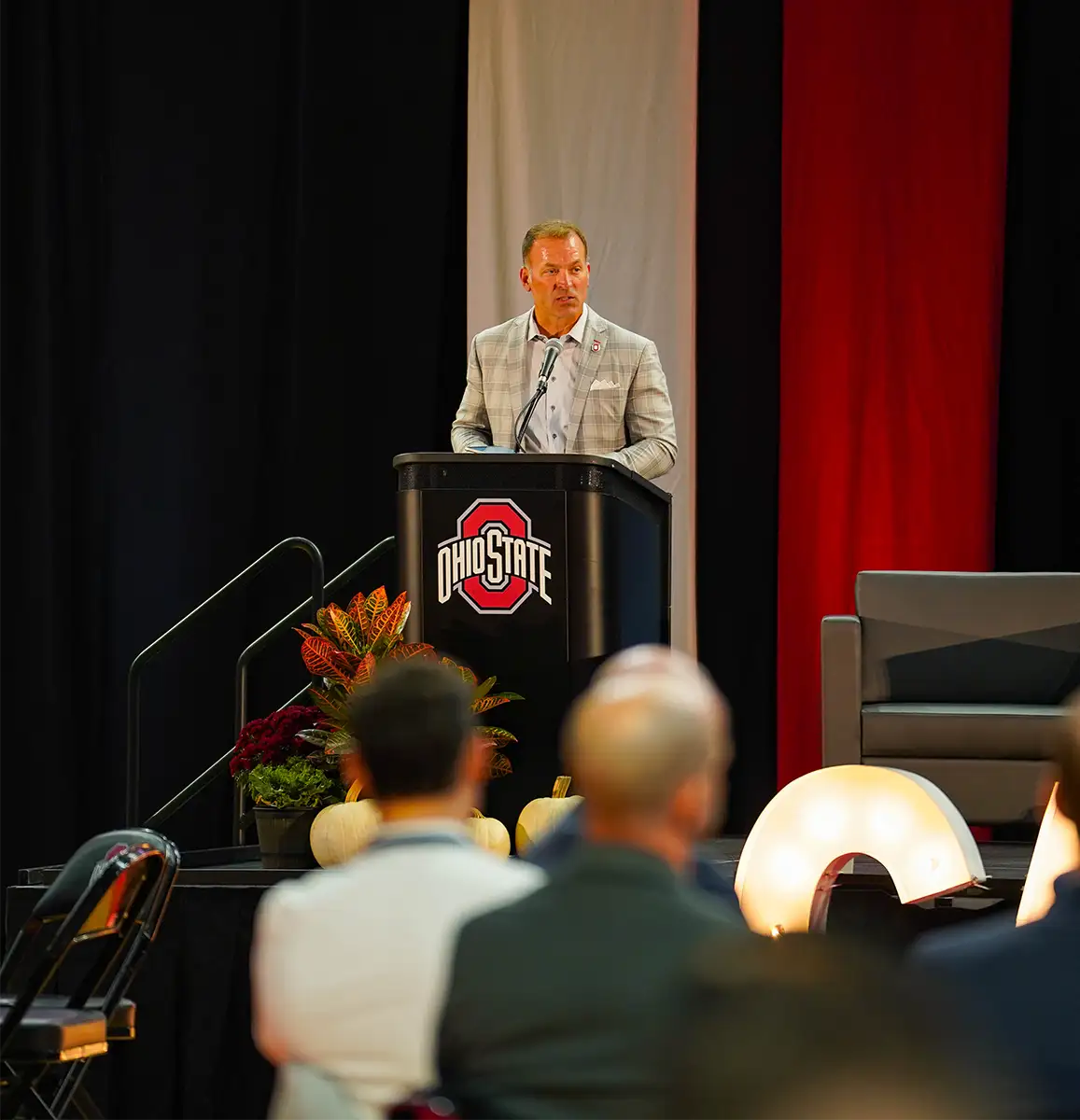
“A Smooth Sea Never Made a Skilled Sailor”
Nearly 400 leaders in college athletics gathered in Columbus for the 15th version of the Collegiate Athletics Leaderships Symposium. Over the next three days, the conversation kept circling back to one idea: great leaders make everyone else better. Few embody that more clearly than Ohio State AD Ross Bjork—host of this year’s CALS and a steady presence in the community since 2014.
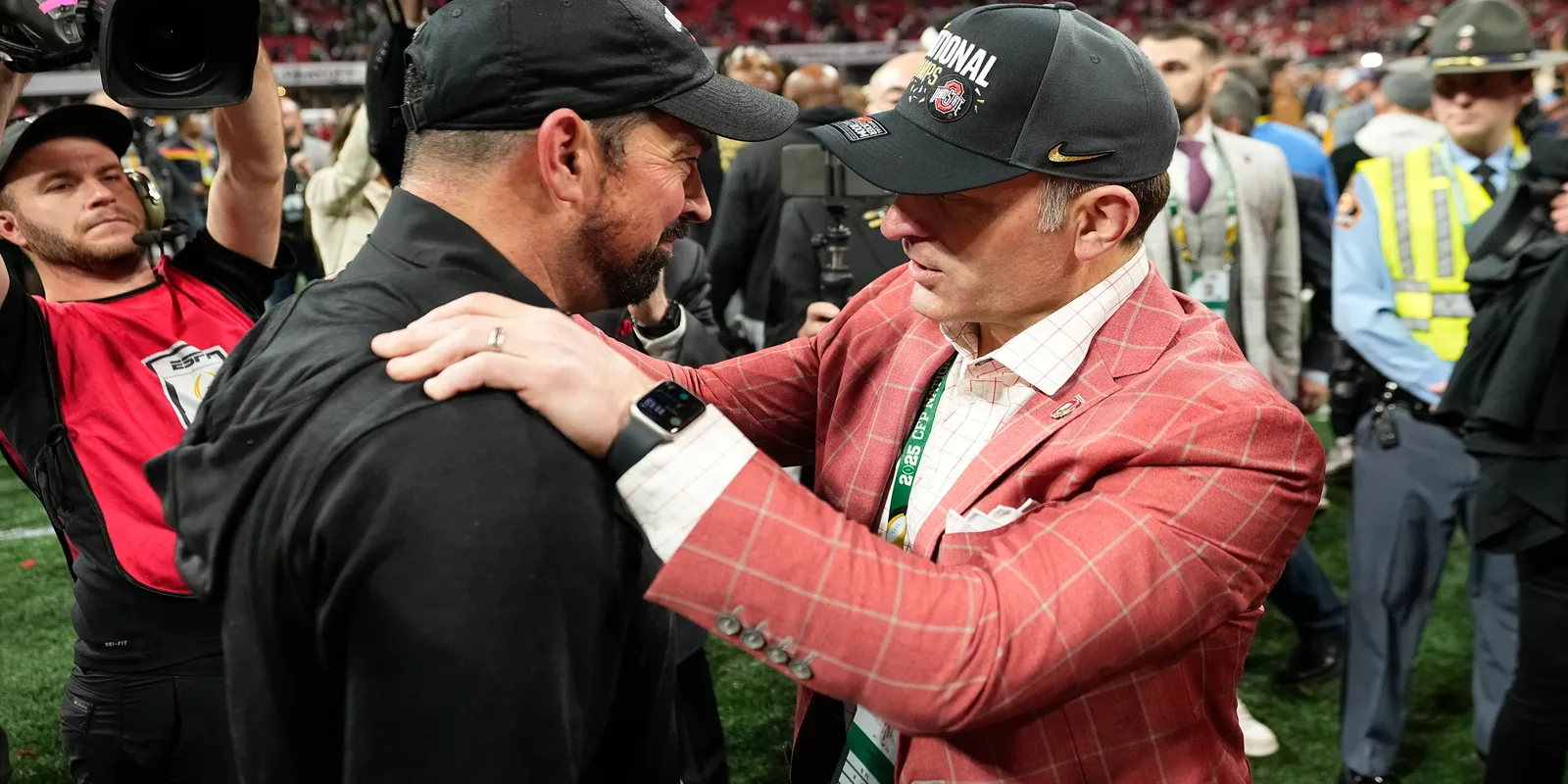
Setting the tone in Columbus
As a full house of leaders in college athletics gathered for the CALS 25 Opening Dinner at the Ohio State’s Covelli Center CALS Director Will Reece opened the program by spotlighting the values that have kept the CALS community tight-knit and forward-leaning—and by acknowledging Bjork’s role in that culture.
“Ross joined us in 2014 for CALS in Memphis while he was the AD at Ole Miss and hasn’t missed many CALS since,” Reece said. “There have been very few people who have consistently given back to the next generation of athletics administrators like Ross has. Even as he has risen to the highest levels of the industry, he has made himself available to others—and hosting CALS is just another example of that.”
When Bjork took the stage for his opening remarks, he distilled keys to leadership in a single line:
“The keys to leadership are being a historian, understanding current analytics, and being a prophet.”
The theme of leading at the highest levels carried straight into Sunday night’s Opening Dinner, where Ryan Day joined ESPN’s Joey Galloway and reflected on alignment and what it really means to “have your coach’s back.” He shared how Bjork’s consistency and encouragement after a couple of tough losses helped steady the program and paved the way to last year’s national championship. The message landed: alignment isn’t a corporate buzzword; it’s day-to-day behavior when the temperature rises.
It was a fitting summary for a weekend centered on perspective—knowing where the enterprise has been, understanding where it is, and anticipating where it’s headed.
Monday morning: shared history, current realities
By Monday morning, Bjork was on stage at the Renaissance Downtown Columbus with two former deputies—Keith Carter (Ole Miss) and Justin Moore (Tulsa)—for a conversation that braided shared history with the hard choices facing today’s ADs. Bjork offered a metaphor that became a throughline for the event:
“A smooth sea never made a skilled sailor. It’s never about self-preservation when you are in these roles. It is always about the institution, the values, protecting the brand, and protecting the culture of the place.”
In an era of revenue sharing, roster caps, NIL, and real-time media cycles, the line felt less like a flourish and more like a checklist.
First year at Ohio State: simplify the massive, protect the culture
On The CALS Report podcast, Bjork described stepping into “one of the most visible and complex jobs in all of college athletics” and the discipline it required:
- Simplify the massive. With 36 sports, ~600 employees, ~1,000 athletes, and a fan base that dwarfs many pro teams, he focused on “taking it one step at a time.”
- Honor the culture you inherit. “The culture is really, really powerful…a credit to Gene Smith,” he said. “I wanted to make sure I didn’t pierce that. Learn, observe, look people in the eye—be who I am—and then map out a plan.”
- Communicate, then decide. From staffing changes to the financial model required to sustain 36 sports, trust and transparency came first—so the hard calls would have ballast.
Bjork’s two early “wow” realizations in Columbus: the way Ohio State manages to be a “small town in a big city”—a place where people and relationships truly drive the work—and the conviction that there’s “another gear” still available if the department leads with data, statewide engagement, and fan activation.
Hard choices with a human face
Candid about the math of modern college sports, Bjork noted Ohio State explored every lever—travel efficiencies, scheduling, roster/staff right-sizing, eliminating low-ROI perks, and simultaneously adding roles with a clear revenue or strategic return (fundraising, data analytics, NIL). The principle: tell the truth, show the roadmap, then execute with discipline.
“You have to be brutally honest with your people…show them data and be transparent. They may not like it, but at least you’re explaining it and you’re not running away from it.”
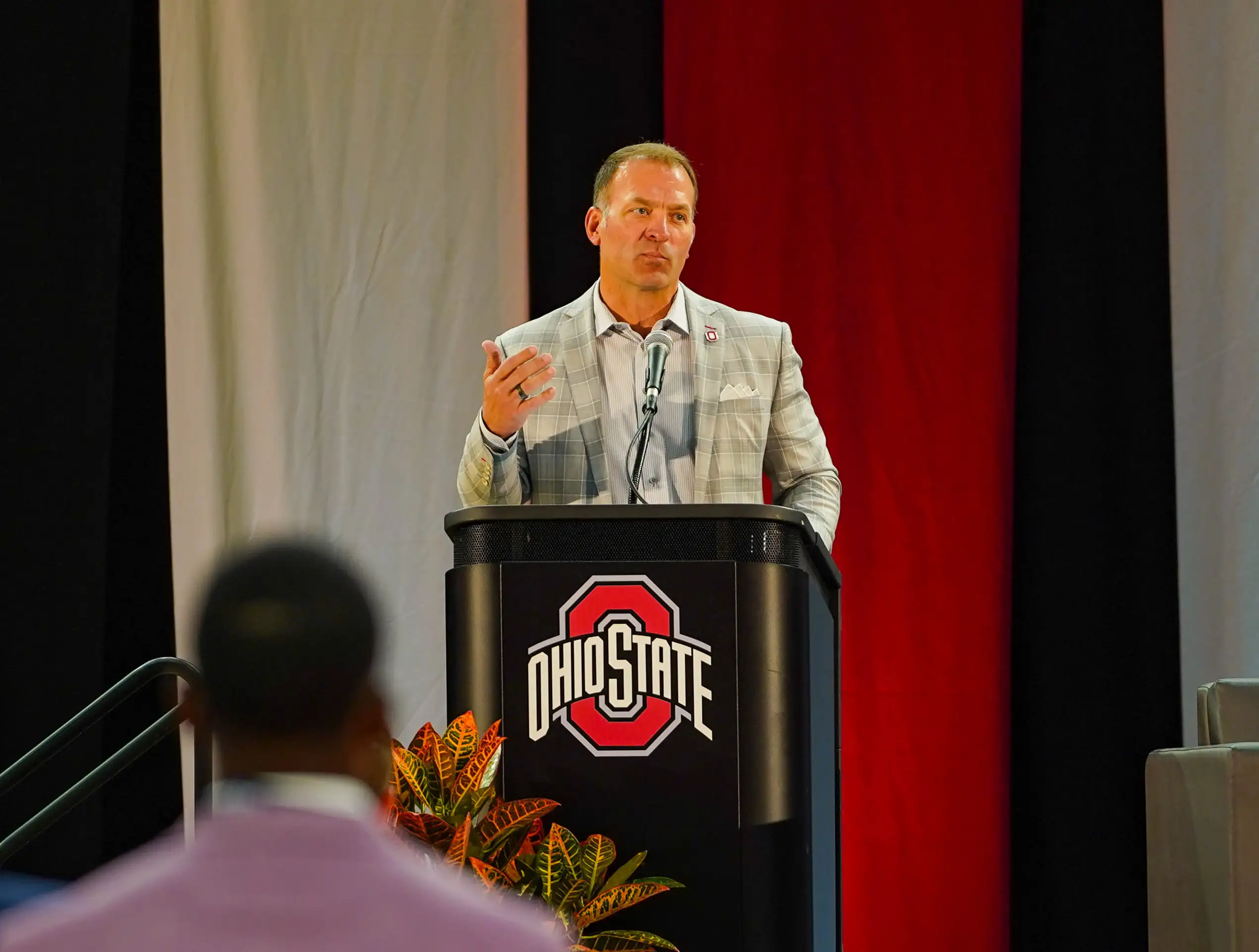
Never too high, never too low
Asked how leaders should navigate the noise of a football season, Bjork went back to a simple mantra:
“Never too high, never too low. Compartmentalize. Sometimes the most strategic move is not to say anything—don’t fuel the fire. And when it’s time to speak, be convicted and clear.”
The national-title run offered living proof: survive the dips, stay principled, and keep perspective. In the expanded playoff era, your season often remains alive—if your leadership does too.
Honor tradition. Don’t think traditionally.
Bjork’s external strategy pairs respect for Ohio State’s history with permission to innovate:
“We’re always going to honor tradition, but we’re not going to think traditionally…When you touch facilities, revenue has to come first—then use that revenue to elevate the experience for everyone.”
As he reminded attendees, even amid constant change, the foundation of college athletics remains steady:
“There’s three things that are not going to change: We’re going to go to class, we’re going to develop young people, and we’re going to play the games.”
It’s a refrain you heard across CALS sessions this year: modernize intentionally, with clarity of purpose and patient execution.
What the enterprise needs next
Zooming out, Bjork expressed confidence in the new governance and enforcement structures being built—but also urgency to finalize rules, penalties, and staffing so coaches, athletes, and administrators can operate with clear guardrails. Simultaneously, he reminded the room of a counterweight: fan passion is at an all-time high. The product is thriving. Now the enterprise must catch up to its moment.
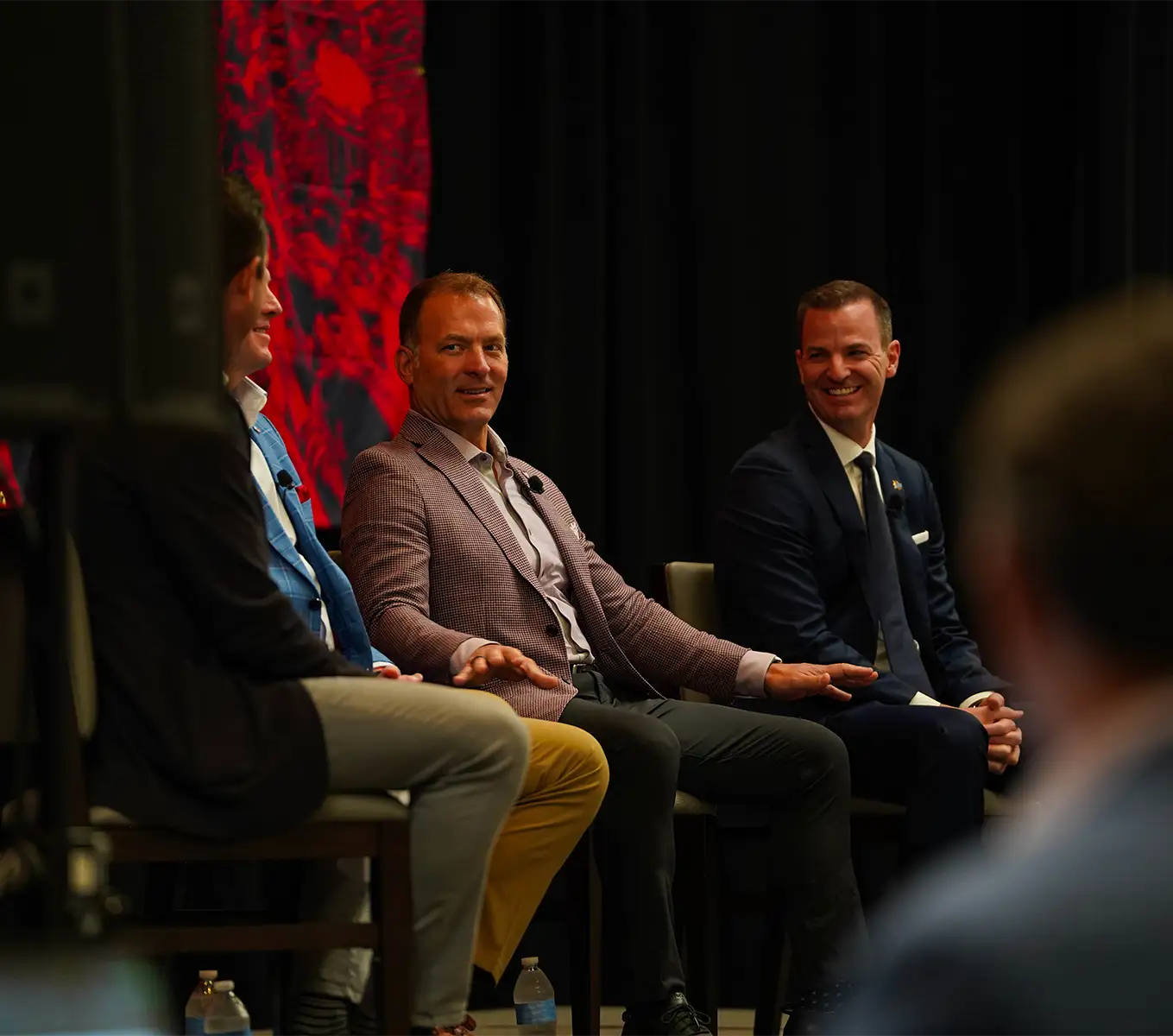
Advice for the next chair
For aspiring ADs, Bjork’s counsel is pragmatic:
- Adaptability is non-negotiable.
- Be a generalist who understands fundraising, NIL/player activation, governance shifts, media, and data.
- Relationships endure—keep showing up at places like CALS.
- Do the job you have exceptionally well. The next one will find you.
- Stay curious; the industry is changing year to year, not decade to decade.
“We’re all stewards. We all get replaced. The question is whether we prepare the next generation to take over equipped—and aligned.”
Why CALS matters
Bjork’s long view on CALS is simple: gathering matters. Bite-sized sessions spark ideas; hallway conversations cement trust; social moments build the connective tissue that sustains a profession under pressure.
“People trust Will, and they trust what CALS brings to the table. In a splintered moment, bringing people together is a powerful tool—and then we take those things back to our campuses.”
Columbus showcased that at full scale: a world-class campus woven into a vibrant city; a host determined to highlight both; and a community willing to wrestle with the hard stuff together.

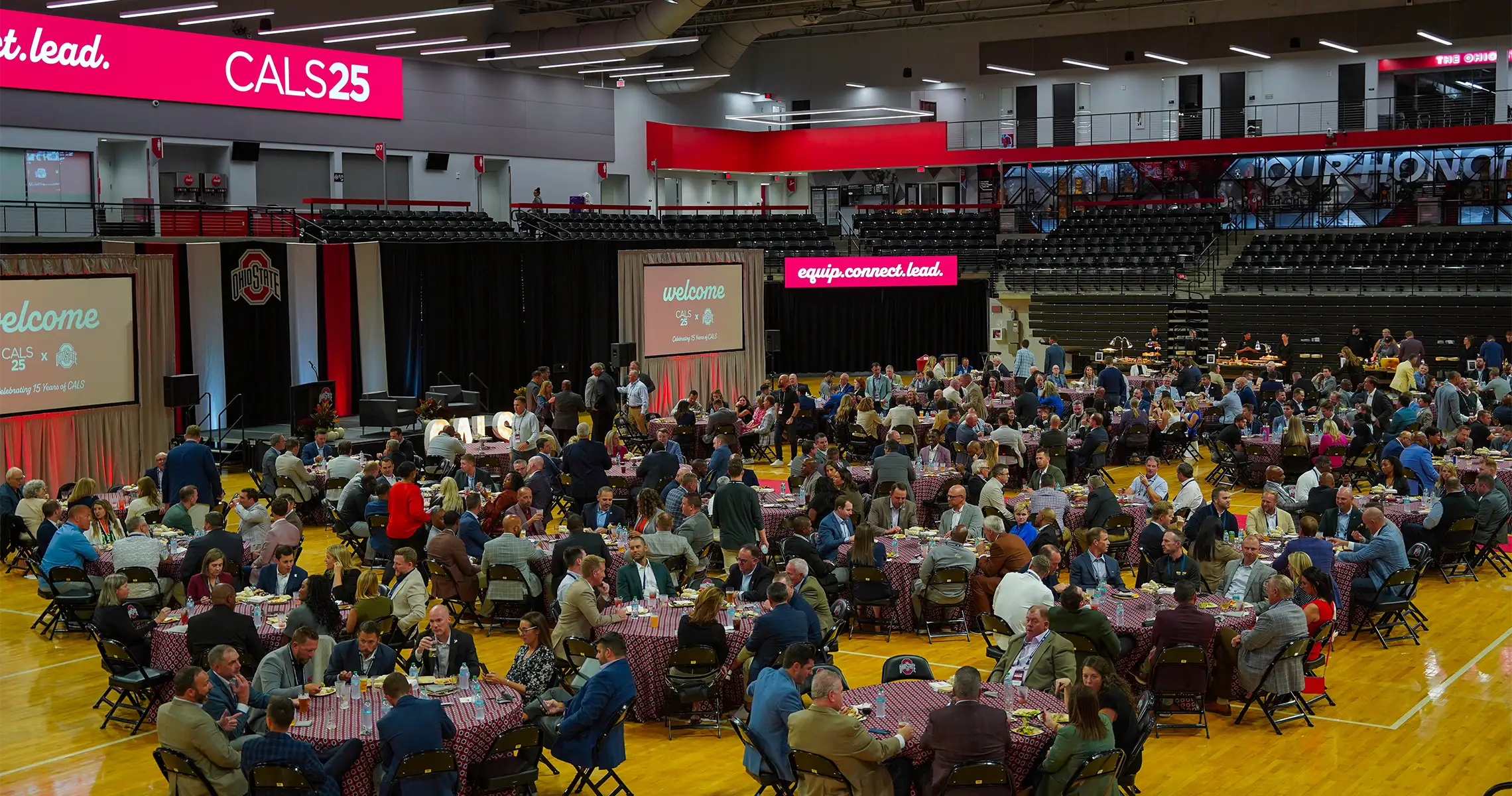
INSIDE CALS25
400+
Total Attendees
Attendees, Faculty, Search Firm Execs & Sponsors
237
Athletics Administrators Participated
Attendees & Faculty
153
Returning Participants
84
First Time Participants
Participants by Division:
Division 1 229
Division 2 5
Division 3 3
Most Titles Participating
Director of Athletics 68
Deputy Athletics Director 67
Senior Associate Athletics Director 35
Executive Senior Associate Athletics Director 26
Associate Athletics Director 20
Assistant Athletics Director 11
28/31
Division 1 Conferences Represented
America East Conference, American Athletic Conference, Atlantic 10 Conference, Atlantic Coast Conference, Atlantic Sun Conference, Big 12 Conference, Big East Conference, Big Sky Conference, Big South Conference, Big Ten Conference, Big West Conference. Coastal Athletic Association. Conference USA, Horizon League, Ivy League, Metro Atlantic Athletic Conference, Mid-American Conference, Mid-Eastern Athletic Conference, Missouri Valley Conference, Mountain West Conference, Northeast Conference, Ohio Valley Conference, Patriot League, Southeastern Conference, Southern Conference, Southland Conference, Southwestern Athletic Conference, Sun Belt Conference, Summit League, West Coast Conference, Western Athletic Conference
Participants by Conference:

33
.svg)
33

30
_logo.svg.png)
30

16
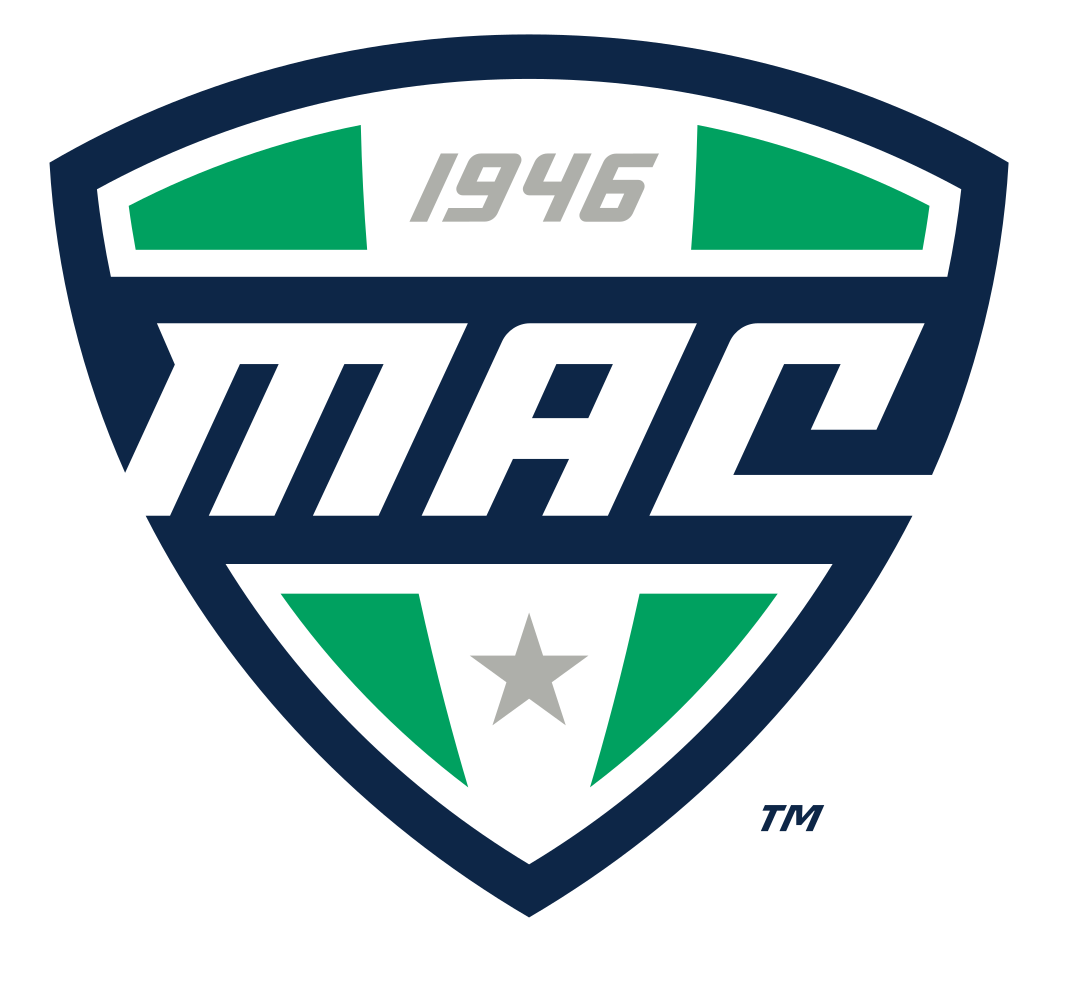
13

9

40 States
+ Washington D.C. Represented
SIX
Search Firms Represented






cals25 recap
Opening Dinner
Ryan Day
Head Football Coach, Ohio State University
Interviewed by ESPN’s Joey Galloway
by Trevor Wyckoff
The 15th anniversary of CALS kicked off its opening night in a big way with a fireside chat featuring Ohio State Head Football Coach Ryan Day and ESPN analyst Joey Galloway, a former Buckeye standout himself. The next 30~ minutes unfolded in an honest, engaging conversation that mixed personal reflection with practical insight, applicable to both coaches and administrators alike, that set the tone for the week ahead.
Coach Day began by taking the audience back to his roots in New Hampshire, where his football journey began and where he eventually played quarterback at the University of New Hampshire under then–offensive coordinator Chip Kelly, who alongside Day, helped lead the Buckeyes to a national championship last year. He credited Kelly as one of his earliest mentors and used that story to highlight the value of learning through others. “You don’t go to college to learn how to become a coach or athletic director,” Day said. “You do it by learning from others.” It was a simple point, but one that resonated, and emphasized the importance of CALS, and other avenues to engage with colleagues and mentors alike.
From there, the conversation turned toward career advancement and connection-building. Day acknowledged how important it is to form relationships, especially for young professionals and student-athletes, but cautioned against getting too caught up in networking for its own sake. “If you want to get the next job,” he said, “the best way to do it is to be great where you’re at.”
One of the larger themes that emerged from the conversation was alignment — the importance of unity between a program’s head coach, athletic director, and university president. In Day’s view, this kind of alignment is one of the most crucial factors in building sustained success. He noted that Ohio State is “off the charts” in this area, alluding to Director of Athletics Ross Bjork in the crowd, and President Ted Carter. In today’s ever-evolving college athletics landscape, the need for strong, collaborative relationships across university leadership has never been greater — a point underscored not only by Day’s remarks, but by several others throughout the week.
The most compelling part of the night came when Day reflected on the Buckeyes’ 2024 season, marked by some of the lowest lows, only to end with the team standing atop the mountain as national champions. Following a tough late-season loss, he shared how the team had to regroup and “dig deep to discover who they really were.” The theme of adversity, and how a team chooses to respond to it, became a powerful thread throughout his remarks. Day also credited Ross Bjork for his steady support during the team’s difficult moments, emphasizing how vital it is for an athletic director to step up when times get tough.
By the end of the conversation, attendees were left with a few key takeaways that extended well beyond football: the importance of mentorship, the power of alignment, and the value of being fully present where you are. It was a fitting start to CALS, and a reminder that leadership, in any corner of college athletics, is about relationships, resilience, and doing things the right way.
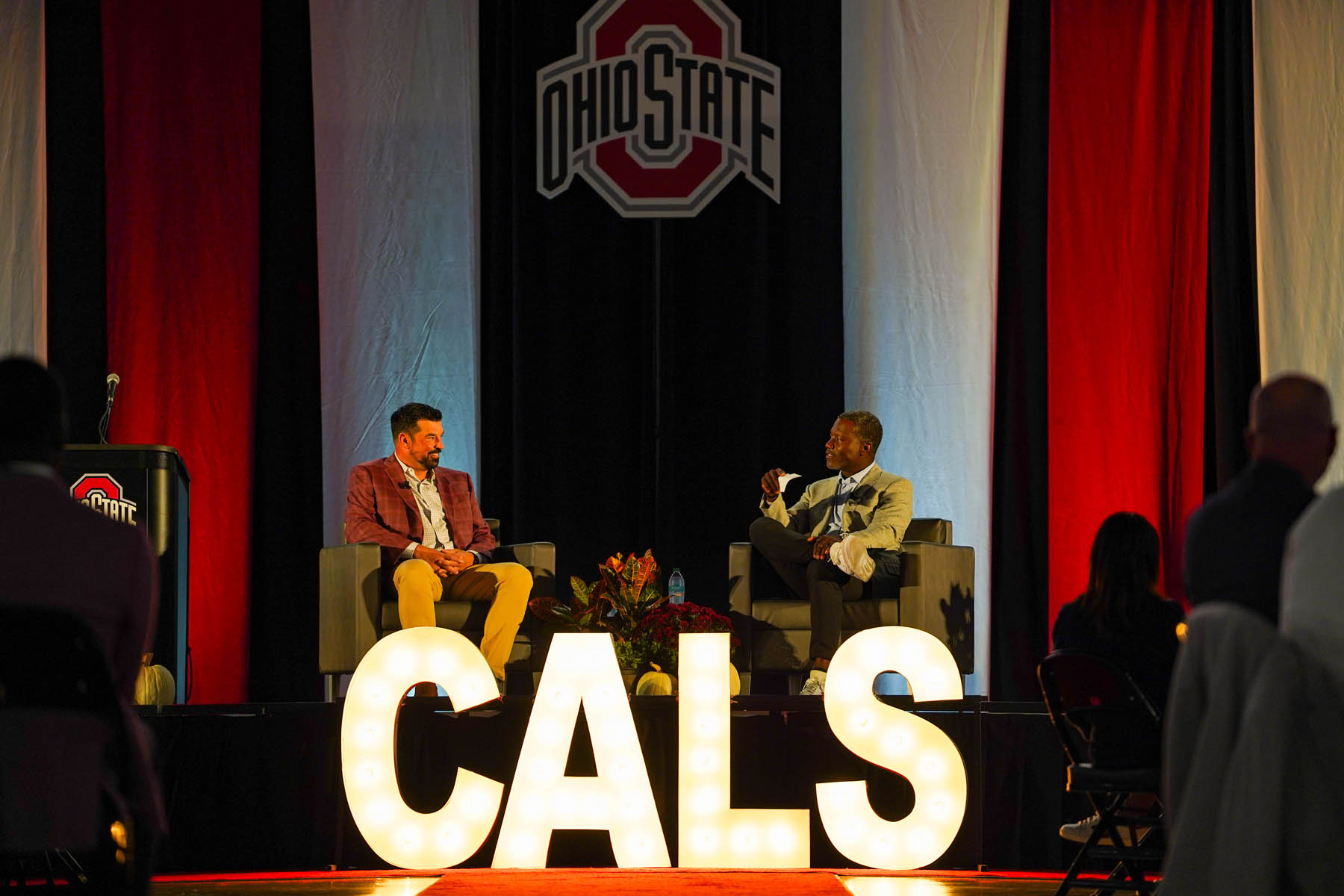
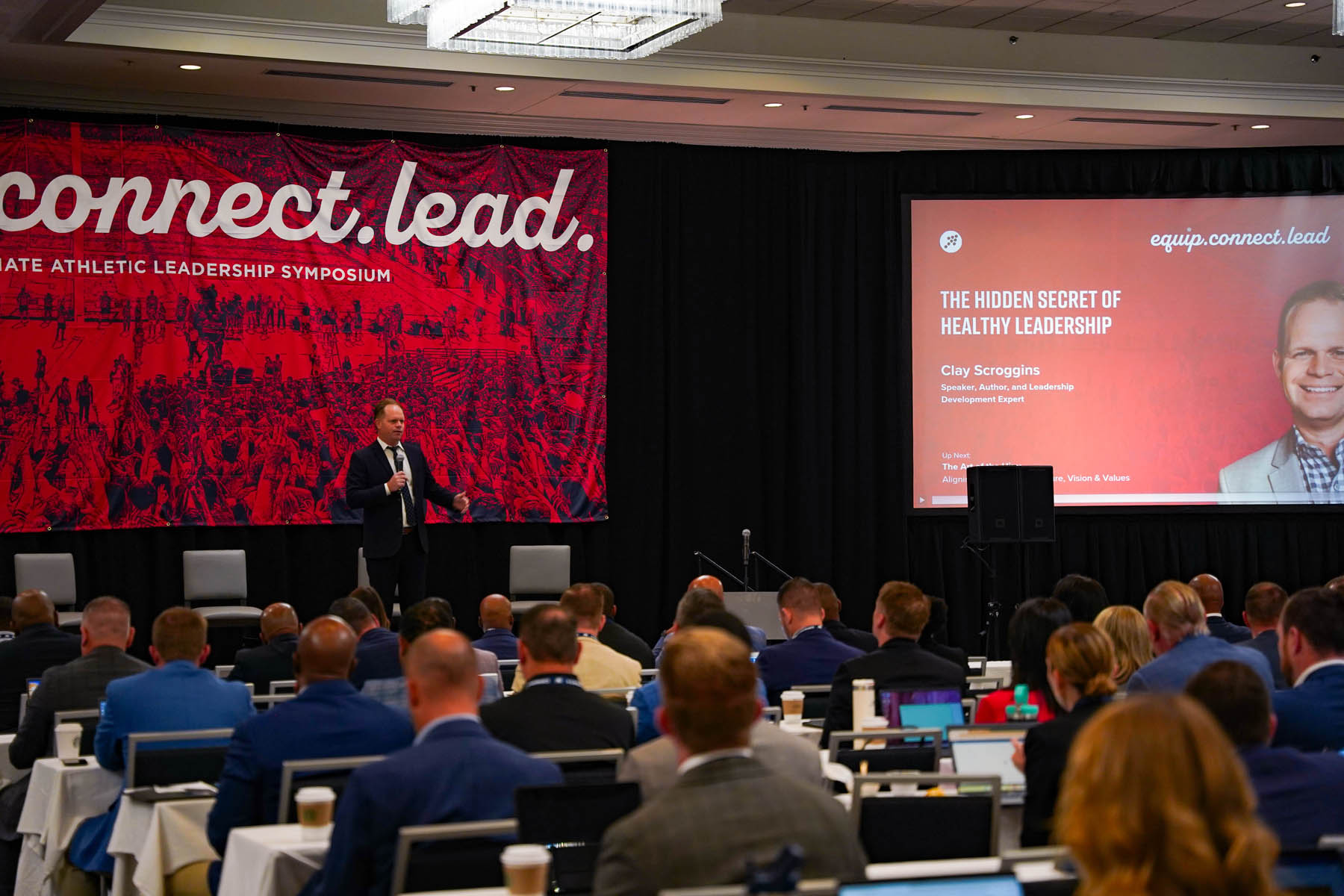
The Hidden Secret of Healthy Leadership
Clay Scroggins
Speaker, Author, and Leadership Development Expert
Our Influence and effectiveness as leaders are most determined by our emotional health.
— clay scroggins
The Art of the Hire: Aligning Coaches with Culture, Vision & Values
John Cunningham
Director of Athletics, University of Cincinnati
Maisha Kelly
Vice President, Director of Athletics & Recreation, Drexel University
Eric Roedl
Vice President and Director of Athletics, Villanova University
Graham Rossini
Athletic Director, Arizona State University
Moderator: Josh McCowan, Deputy Director of Athletics, Mississippi State University
Your head coach room is a group that has so much influence and has a big role in the success of your department. You want to make sure they are a partner, instead of having them on their own island.
– John Cunningham
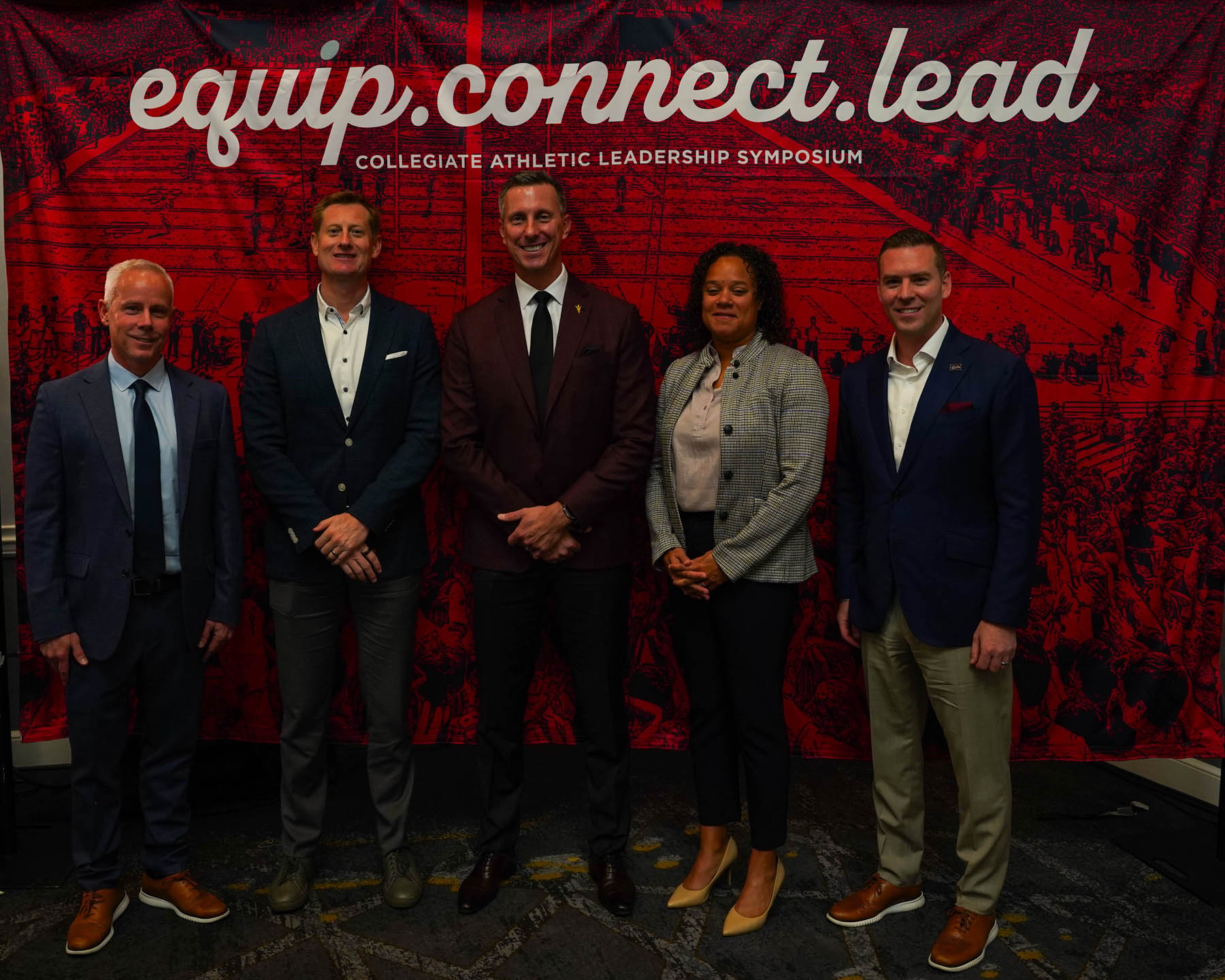
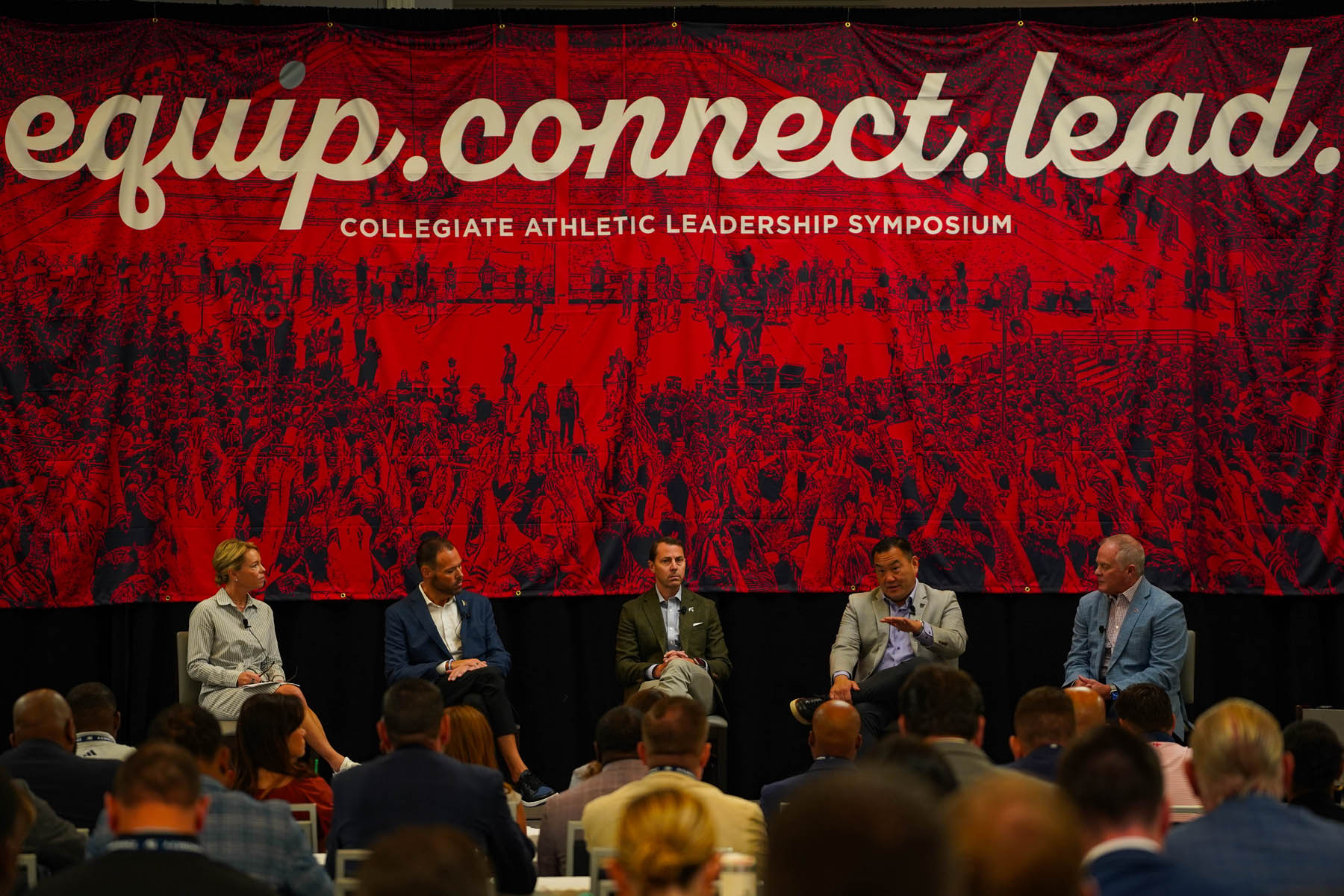
Modern Leadership at Scale: Vision, Pressure & the Path Forward
Wren Baker
Vice President and Director of Intercollegiate Athletics, West Virginia University
J Batt
Vice President and Director of Intercollegiate Athletics, Michigan State University
Pat Chun
Director of Athletics, University of Washington
Hunter Yurachek
Vice Chancellor and Director of Athletics, University of Arkansas
Moderator: Carey Hoyt, Deputy Director of Athletics, Ohio State University
By Ashley Beach
When a collegiate football or basketball team loses, fans immediately retreat to social media with a barrage of “fire.” Fire the assistants and fire the head coach. Sometimes, it’s fire the athletic director.
However, the pressure to make a choice in order to uplift the athletic programs they oversee fuels those executives to come to a conclusion.
The power to hire people who can create positive change can be heavy. For days, Wren Baker, Vice President and Director of Intercollegiate Athletics at West Virginia University, saw billboards that suggested his next move, and another time, he’d seen a hot air balloon fly by telling him what to do. Yet, Baker wasn’t sure what choice he wanted to make.
“I always feel like when times are difficult, it's really easy to be the turtle, to want to hold up and just go, go into the room. You have to really resist them,” he said.
J Batt, Vice President and Director of Intercollegiate Athletics at Michigan State, believes that if doing the best thing for his/her institution is the foundation of an athletic director’s mission, the pressure becomes a privilege.
Batt alongside Baker, and other panelists Pat Chun, Director of Athletics at University of Washington, and Hunter Yurachek, Vice Chancellor and Director of Athletics at University of Arkansas, agreed that putting student-athletes first is vital to the function of college athletics. The tedious task of keeping programs alive is something athletic directors face every day.
As revenue share is implemented across the U.S., the panelists expressed their desire to create transparency between revenue generating sports and Olympic sports to protect the opportunities for both groups. It’s a value they refuse to lose, and when it comes time to decide who leads those sports, the group falls back on their cherished ideas.
“When adversity hits, you revert your core values,” Chun said. “You're talking about vision and where you're going, you’ve really got to stay committed to your values, because we're all living in an environment so dynamic that you can lose sight of what's important. And to me, that's always been critical.”
Baker expressed a similar sentiment.
“When you think about great coaches, and we all get a chance to watch a lot of I think the greatest ones, they all really have a fairly simplistic message that they just repeat over and over, almost ad-nausea you know, where people are rolling their eyes, but it becomes a part of the culture of the program. I think as leaders, the more you can do that and infuse those consistent principles is important,” he said.
Athletic directors want a staff that shares their principles and will consistently protect and exemplify them. Like socks and shoes, as John Wooden expressed to his teams, it is important to consider the fine details that can make an impact. If a coach is not aligned with an institution, then that might not be the place for them.
People are the root of college athletics and money cannot guarantee a win.
Now that student-athletes are considering paychecks when choosing their future homes, it is important to provide an all-around experience. Competent, caring coaches, dedicated administrators, and facilities that provide a structural home are key to the future of all athletics ventures.
“There's a dollar value associated with it that's obviously very different on every campus, but I think it starts there. You’ve got to focus on people,” Chun said.
To Yurachek, it starts at making sure every meeting has an agenda in order to not waste anyone’s time. The principle goes back into giving his staff autonomy over their schedule to avoid burnout. Fatigue appears faster in individuals if they are unable to take time for themselves to reacclimate. Student-athletes and administrators alike need to press pause on their busy lives sometimes.
Yurachek clocks the hours of 5:15 to 7:15 a.m. as his “me” time. He’ll share a cup of coffee with his wife and take his time getting to the office to center himself. It’s something he hopes his staff will emulate in the way that works for them.
If he as the leader has the capability for a flexible schedule, his fellow administrators should too.
“If you want your staff to have an opportunity to go out and take their kids to school or go to a kid's activity late afternoon, early evening, and make sure that their families are welcome around your facility, I think all those things help with preventing burnout,” he said. “Then those late night or after hour text messages, phone calls and emails, we all hate getting them, but as leaders, you can't send them if you hate getting them as well, that’s because that's your people's time.”
These administrators could not do what is asked of them if they did not have their people with them. Although they’re the face of an institution, they’re just the greeter at the front of the tent. There are teams of people who help them at work and at home who are seated around them under it.
“I think in this business, genuine relationships with people you can trust as you're going through those moments that test your mentality, whether it's mentors or true friends, whatever it might be, you've got to have a small group of people that you can talk to,” Batt said. “Frankly, it gets real lonely in that moment right when you're the everybody's got an opinion.”
Athletic directors are the ones who meet the moment — their people are the ones they face it with. The future of college athletics lies in the hearts and minds of those leaders.
Lessons from the AD’s Office
Ross Bjork
Senior Vice President and Director of Athletics, The Ohio State University
Keith Carter
Vice Chancellor for Intercollegiate Athletics, University of Mississippi
Justin Moore
Vice President and Director of Athletics, University of Tulsa
Moderator: Christian Lewis, Chief Revenue Officer, Paciolan
It’s never about self-preservation when you are in these roles. It is always about the institution, the values, protecting the brand, and protecting the culture of the place.
— Ross Bjork


REVENUE, Engagement, and the AD’s Toolkit
Tommy McClelland
Vice President and Director of Athletics, Rice University
Jared Mosley
Vice President and Director of Athletics, University of North Texas
DeWayne Peevy
Vice President and Director of Athletics, DePaul University
Rob Sine
Chief Executive Officer, Blueprint Sports
Moderator: Jeff Purinton, Executive Vice President, Sports Properties, Learfield
Pay attention to what your people pay attention to — that’s how you learn where to guide them and ensure the right message spreads.
— DeWayne Peevy
Breakout sessions
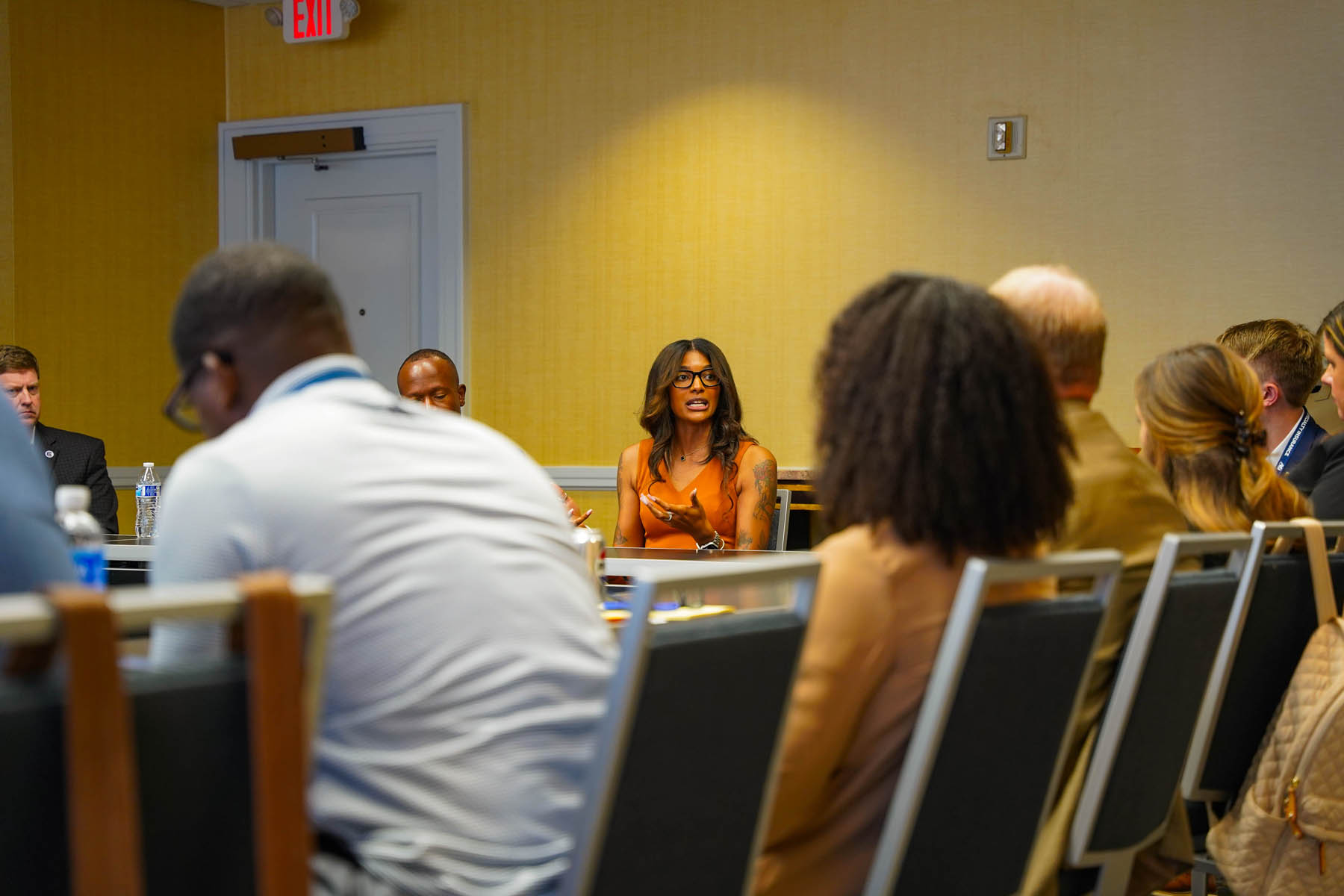
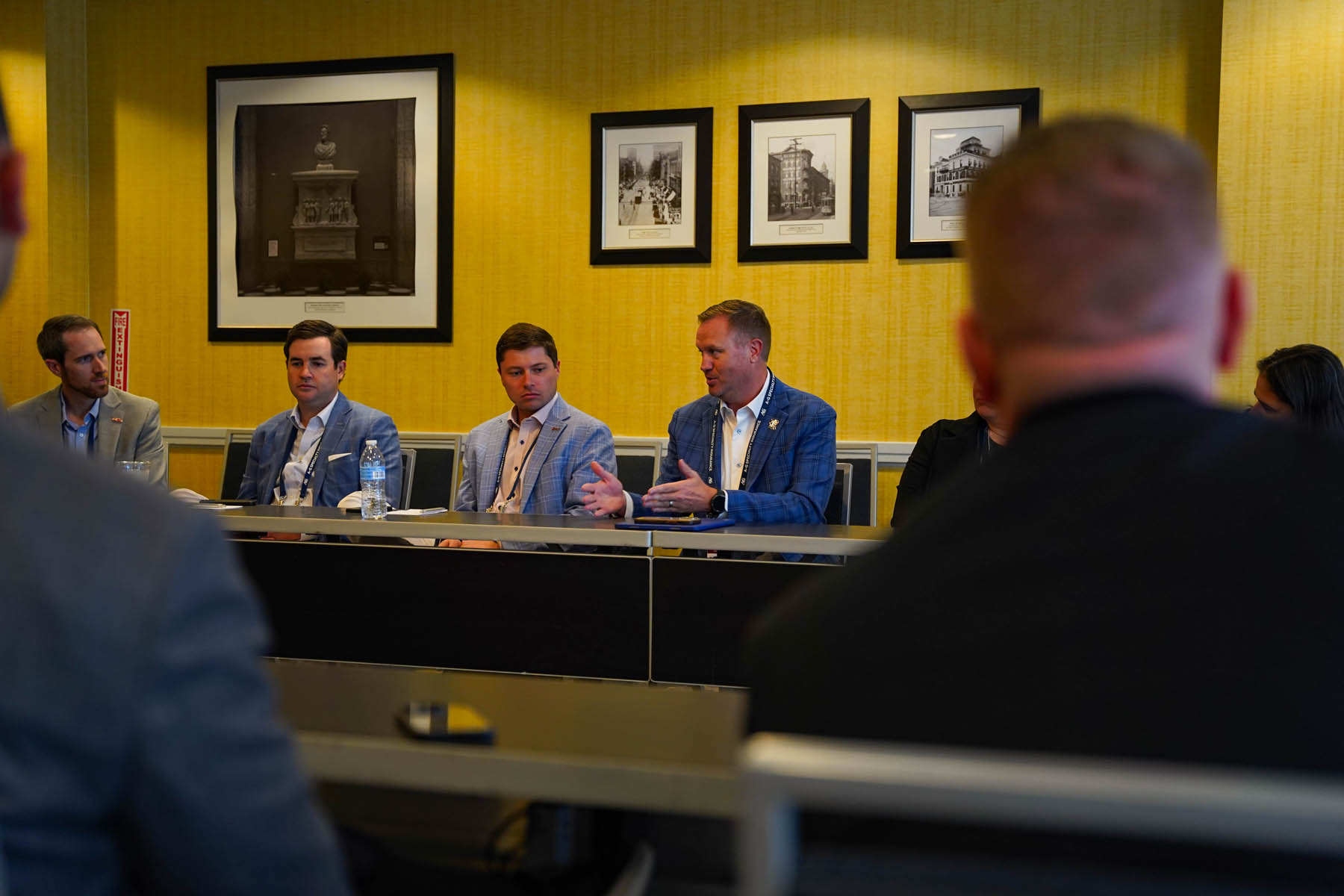
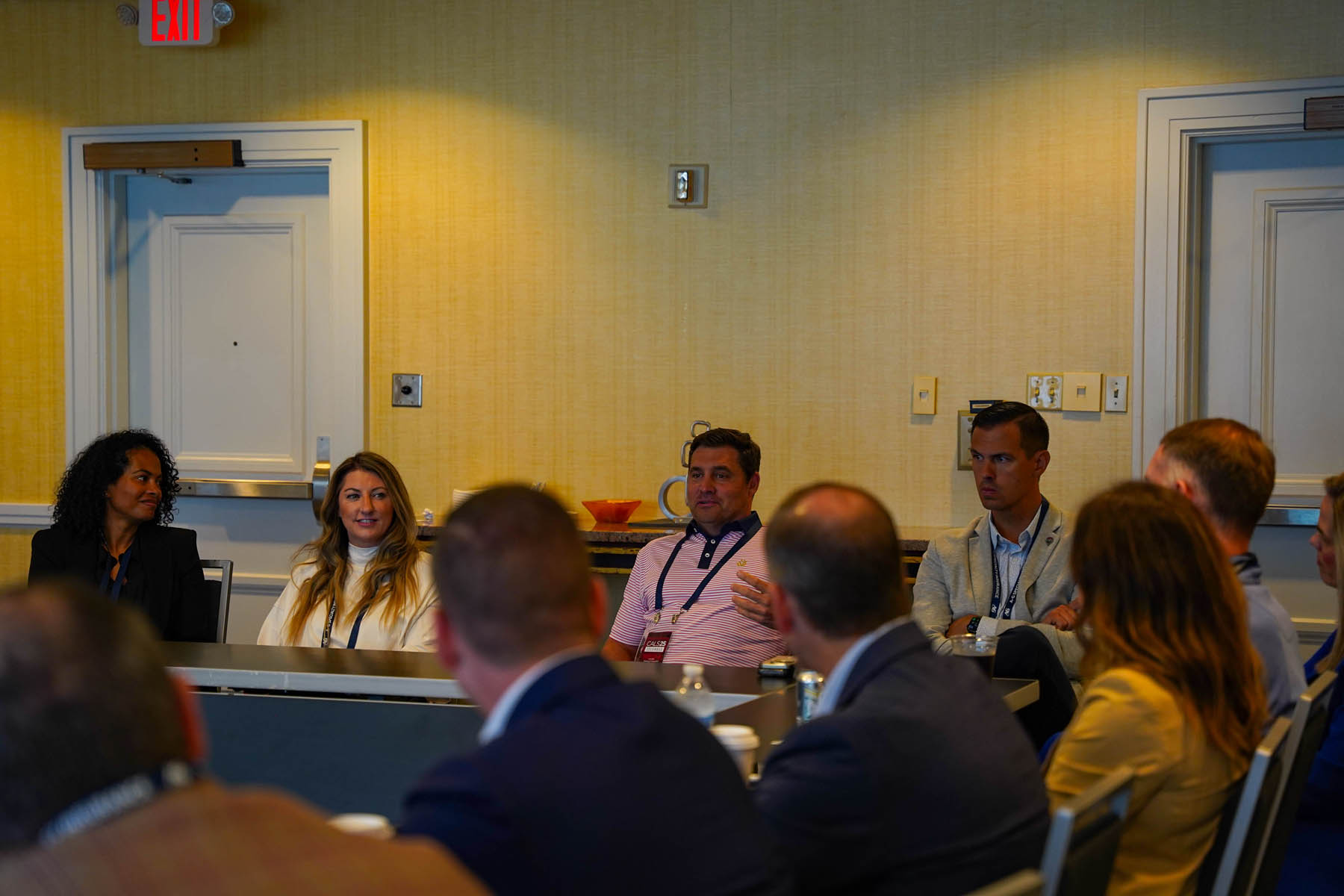

Culture-First Leadership: Winning with People and Purpose
Ryan Alpert
Vice President & Director of Athletics, Georgia Tech
Beth Goetz
Athletic Director, University of Iowa
Graham Neff
Director of Athletics, Clemson University
Zac Selmon
Director of Athletics, Mississippi State University
Moderator: Marshall Steward, Deputy Director of Athletics, University of Tennessee
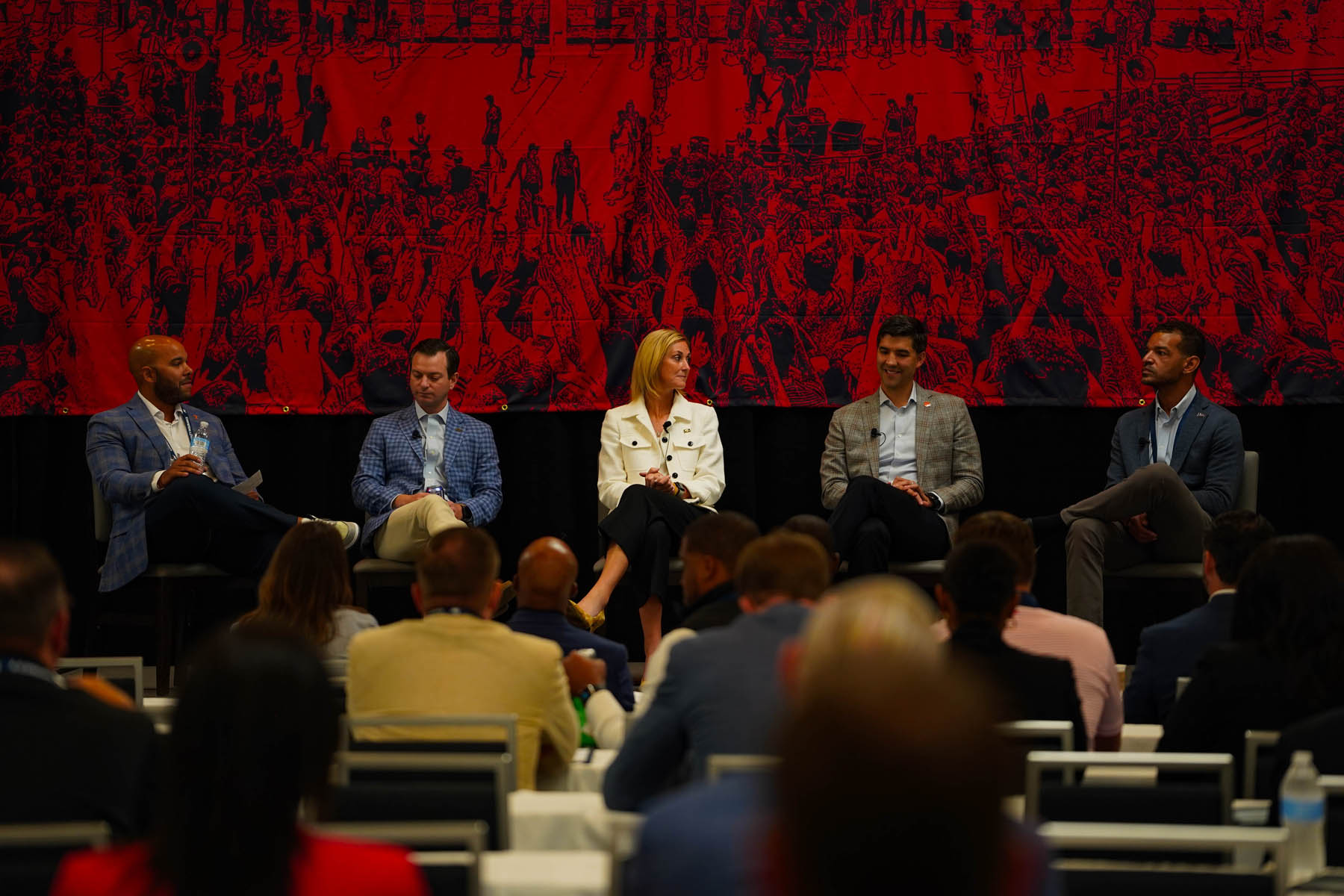

A Career in Perspective: Bubba Cunningham on Leadership and Legacy
Bubba Cunningham
Director of Athletics, University of North Carolina
Interviewer: John Roberson, CEO, Advent
By Laura Keep
In a reflective and heartfelt interview, University of North Carolina Athletic Director Bubba Cunningham looked back on a remarkable career spanning more than three decades in collegiate athletics. As he prepares to retire, his conversation offered a powerful reminder that his leadership philosophy is deeply rooted in family, faith, and intentional focus.
Cunningham began by sharing the journey he and his wife Tina have taken together since their college days at Notre Dame. “Family is really important to us,” he said. “We made a decision a little bit later that we were going to pursue this athletic endeavor, but we had to do it recognizing that we have four kids and they’re part of what we do.” That perspective shaped every stop along his professional path, from Ball State to Tulsa and ultimately to Chapel Hill, where he became one of the most respected athletic directors in the country.
One of the recurring themes of the interview was intentional planning, both professionally and personally. Cunningham credited much of his approach to the book The Power of Focus by Jack Canfield, which inspired him to write down his goals at different stages of life. “We started to write it down,” he recalled, “and it’s surprising to me how accurate or how much it came true. Most of it had to do with family, what we were going to do from a professional standpoint that included our family.” That exercise became a touchstone for his philosophy: clarity of purpose paired with accountability.
He also described how he and Tina extended that intentionality to their children, engaging them in the logistics of family life. “If we were going to go on a trip, one was in charge of the rental car, one was in charge of the airline tickets, one the hotel, one the meals,” he said. “It was a good way to engage them in the trip and where we were going.” Even now, competition and togetherness remain family constants, from golf matches to their ongoing “punt, pass, and kick” contests at bowl games.
As an athletic director, Cunningham applied the same disciplined focus to leadership. He championed autonomy for coaches within a shared mission, emphasizing trust and culture. “When I got to North Carolina, we had 21 head coaches leading 28 teams, and nine of the 21 had won national championships,” he said. “The best thing about it is they all are trying to help each other get better.” That collaborative culture, he noted, was inspired by legendary basketball coach Dean Smith’s spirit of unity and respect.
Perhaps most telling of Cunningham’s leadership philosophy was his belief that athletics serves education. He recounted crafting his own mission statement early in his career: “The mission of intercollegiate athletics is to enhance the educational experience of all students, not just the ones that we have.” At UNC, that evolved into a simple but profound statement: We educate and inspire through athletics.
As he closes this chapter, Cunningham remains grounded in gratitude. “Enjoy what you’re doing,” he advised. “We’ve absolutely loved every stop we’ve had.” His words reflected not only a career of integrity and excellence, but also a life lived with intention, a reminder that true success is measured not only by championships but by the legacy of values carried forward through generations.
Kevin Barefoot Asking AD’s Questions
Troy Dannen
Athletic Director, University of Nebraska
Jeramiah Dickey
Director of Athletics, Boise State University
Allen Greene
Director of Athletics, University of Pittsburgh
Pat Kraft
Vice President for Intercollegiate Athletics, Penn State University
Moderator: Kevin Barefoot, Vice President of Business Development, Teamworks
By Ashley Beach
When Allen Greene, Director of Athletics at University of Pittsburgh, and his peers were asked to draw an image of Mickey Mouse, all of them were different. Some doodles mirrored a cartoon image, others a group of circles.
“The next exercise was to draw a circle, draw the ear here, draw an ear here. Draw this, draw this, draw this. It was described on how to do it. We then held up our Mickey Mouse faces, and it's crazy how similar they were,” he said. “It’s not crazy. It's actually rational.”
Clarity can help a college athletics administrator navigate decision making easier. With changes such as revenue sharing coming, athletic directors must be honest with their expectations for different programs. That was the theme of responses to Kevin Barefoot’s, Vice President of Business Development at Teamworks, panel at CALS25.
Troy Dannen, Athletic Director at University of Nebraska-Lincoln, sat down with his coaches a year ago with the House settlement on the horizon and asked them what they needed to be competitive. From there, he and his staff evaluated their capabilities for those requests.
“We tiered our sports,” he said. “We actually told the coaches, ‘You're in tier one, you're in tier two, tier three, tier four. Here are the parameters.’”
The goal wasn’t to drive a wedge between Nebraska’s programs. It was to be strategic in the face of change.
Understanding bandwidth is important to success in the present and future. It is vital for collegiate athletic programs to understand who they are, and how to pivot.
For Jeremiah Dickey, Director of Athletics at Boise State University, his pivot was to a new conference in order to protect the future of his institution. Dickey helped move Boise State from the Mountain West to the reformed PAC-12, effective July 2026.
Dickey had to create more opportunities for the student-athletes walking through the halls of his facilities. His institution had outgrown its current space and was expected to keep expanding.
“When you think about trying to set the table for a decision like that, there are no guarantees. Everything's a projection, and I'm trying to tell a story. I can sell hope, and I have a very passionate fan base,” Dickey said.
Since making the jump, Dickey has gained control of the basketball arena, sold out basketball season tickets, and announced Bronco Studios. All of which he was able to do because of being on the same page with his staff.
Being consistent in mission is key to providing a holistic experience for student-athletes. Pat Kraft, Vice President for Intercollegiate Athletics at Penn State, expressed that the impact an athletic director and athletic department can have on their experience is the best part of his job.
Sometimes wins don’t have to be tied to actual contests. Kraft believes that wins can occur every day on college campuses. A victory for him is a student-athlete enjoying both the athletic and academic experience across all programs, not just revenue generating sports.
“It's rewarding for both the student athlete, when you have fans at your volleyball games, field hockey, lacrosse, and being able to provide them the resources to go and send people championships. Then you have that 800,000-person alumni base that can fund certain things and do things at a high level,” Kraft said.
Those ideas are tied directly to the culture of a program. Most student-athletes have 35 hours a week to themselves when mandatory practice, optional exercises, academic commitments, and basic needs are subtracted according to Dannen. If student-athletes choose to interact with their campus, peers, and fans in those extra hours, it is a clear tell of where the culture stands.
Athletic directors have to keep an eye on that because fans have a pulse on what’s going on with their favorite players. With social media, fans are able to catch a glimpse into the locker room easier than before. Administrators have to be intentional with their investments and use of resources to create a welcoming space for all. They also have to be clear about those intentions.
“It's not about staff. It's not about coaches. It's about educating our student athletes, and when they leave, they have a better experience or better people for it. And in turn, in doing that, you win championships and you succeed,” Kraft said.
The industry does not look the same way it did five years ago, and everyone working in collegiate athletics must buy into that. The questions being asked in interviews for administrative roles are a lot different because new scenarios pop up daily.
However, an opportunity to do something that has never been done is in athletic administrators’ hands. There is a chance to rebuild and reinvent the industry daily.
“It makes my heartbeat faster. I love it but it's not anything yet,” Dannen said. “Anything I did yesterday is not what I'm going to do tomorrow, and I have no idea what I'm going to do tomorrow to help try to reinvent our school in the middle of this enterprise, but that's why tomorrow's going to be so cool.”
Greene shares the same outlook. He’s excited by the unknown.
“I think I learned to not be surprised by surprises and not to get hopefully worked up by the things I didn't know,” he said. “Your first job, you're going to get hit with a ton of things that you didn't know, and you'll be curious, or maybe upset about why they didn't tell you that in the interview, whether it's a budget thing or it's always something. It’s about recognizing that there's going to be curve balls thrown your way, and you can't get bent up out of shape over it. Just continue to do the work, and you'll figure it out.”
The best way to tackle these changes is head-on, and being on the same page with all involved will help athletic departments stay on target. It’s about knowing the department’s needs, the student-athlete’s needs, and doing the best for the institution, together.
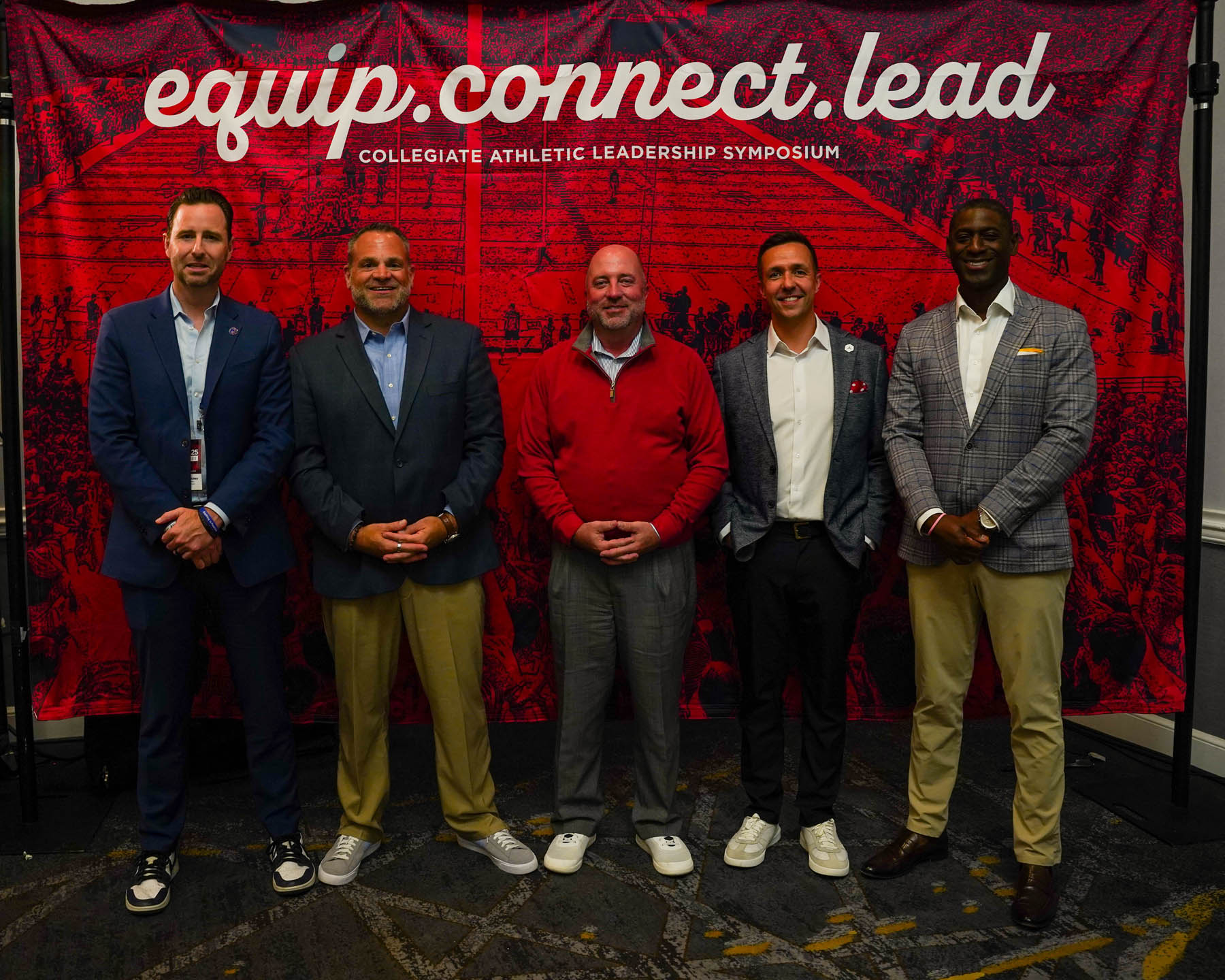
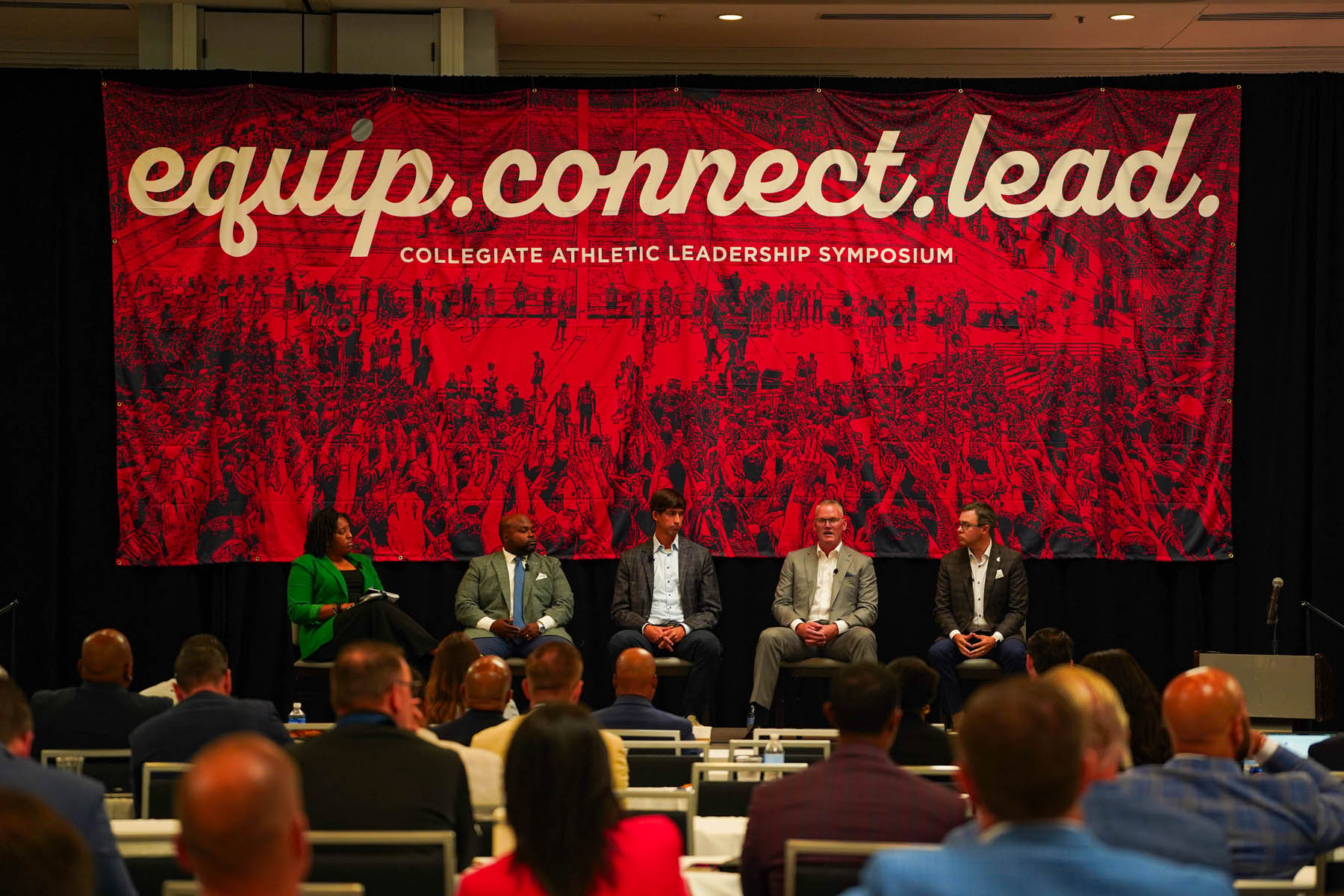
Student Athlete-Centric Leadership: Well-being, Risk & Support
Bryan Blair
Vice President and Director of Athletics, University of Toledo
David Chadwick
Founder and CEO, RealResponse
Dixon Gillis
Chief Executive Officer, AG Specialty Insurance
Jeff Mitchell
Director of Athletics, Ball State University
Moderator: JP Abercrumbie, Executive Associate Athletics Director, University of Notre Dame
Truly get to know your student athletes because the resources matter, but it’s only the resources plus the relationships that equal retention.
— Bryan Blair
Inside the Numbers: Early Data Insights from Revenue Sharing
Kevin Barefoot
Vice President of Business Development, Teamworks

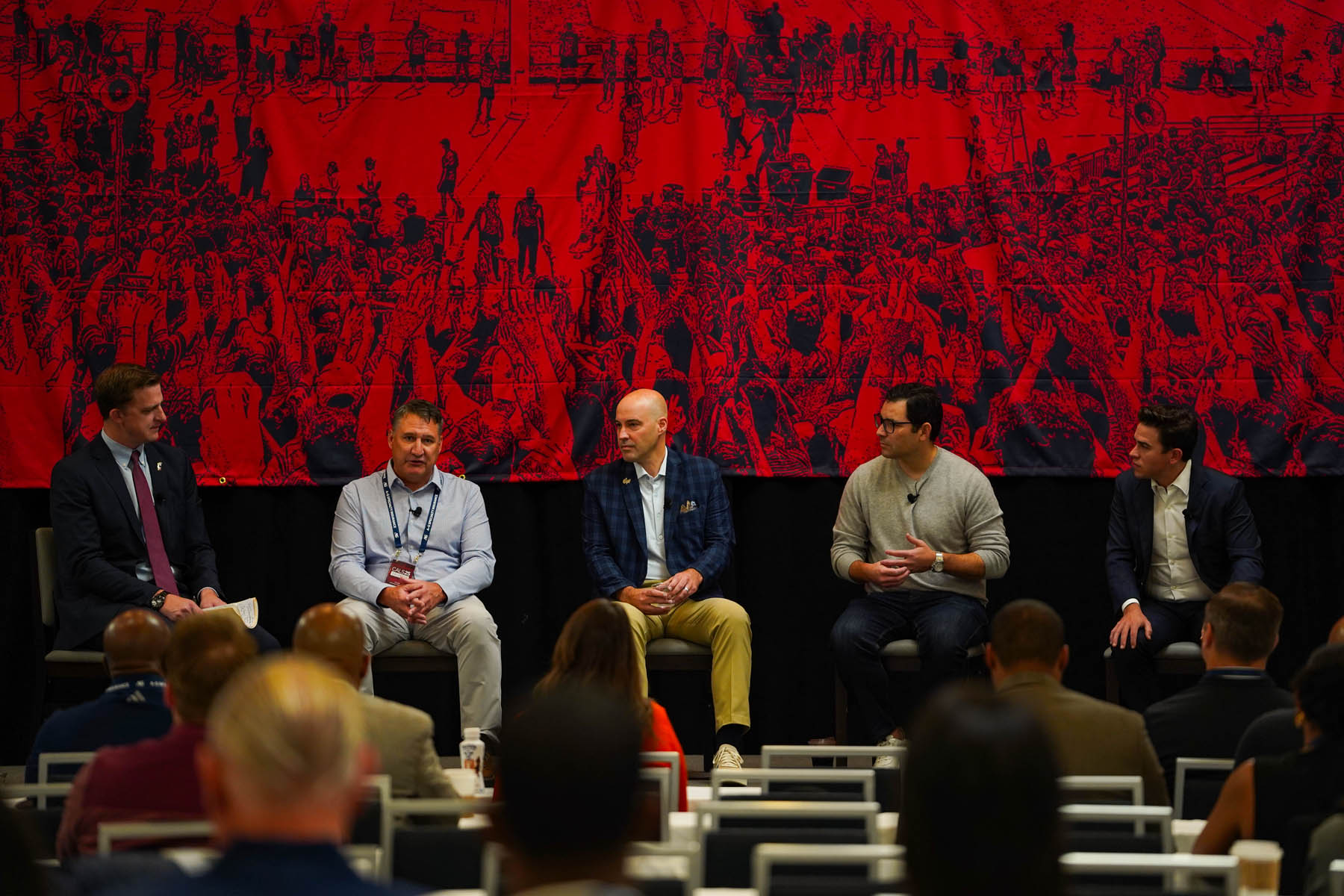
Blueprints for Fan Engagement: Innovation in Design, Tech & Experience
Scott Gibson
Principal & Collegiate Practice Leader, Populous
Michael Lipitz
Associate Vice President and Director of Athletics, George Washington University
Jonathan Marks
Chief Business Officer, Elevate College & Global Marketplace
Daryl Mihal
Region Manager, Daktronics
Moderator: John Daniel, Senior Deputy Director of Athletics, University of Cincinnati
Fans are attending less games but spending more when they do go, looking to trade up attending the game for having a real experience.
— Jonathan Marks
Leadership in Motion: Insights on What’s Working and What’s Next
Marcus Blossom
Director of Athletics, Creighton University
Chris Grant
Commissioner, Southland Conference
Ryan Ivey
Director of Athletics, Louisiana Tech University
Ed Scott
Senior Vice President and Director of Intercollegiate Athletics, University of Memphis
Moderator: Mackenzie Dilbeck, Deputy Director of Athletics, University of Oklahoma
Tradition without innovation leads to stagnation.
— Chris Grant
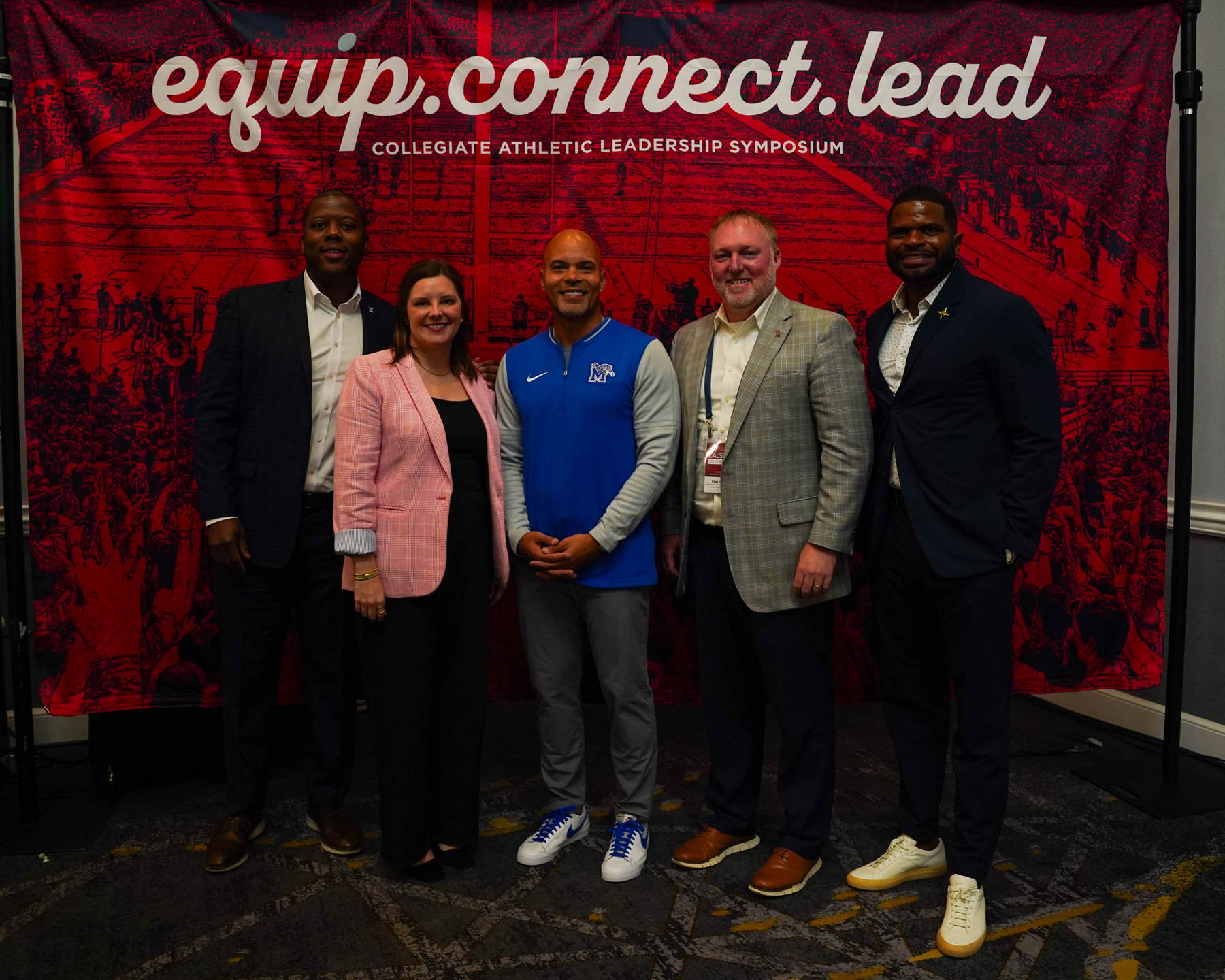
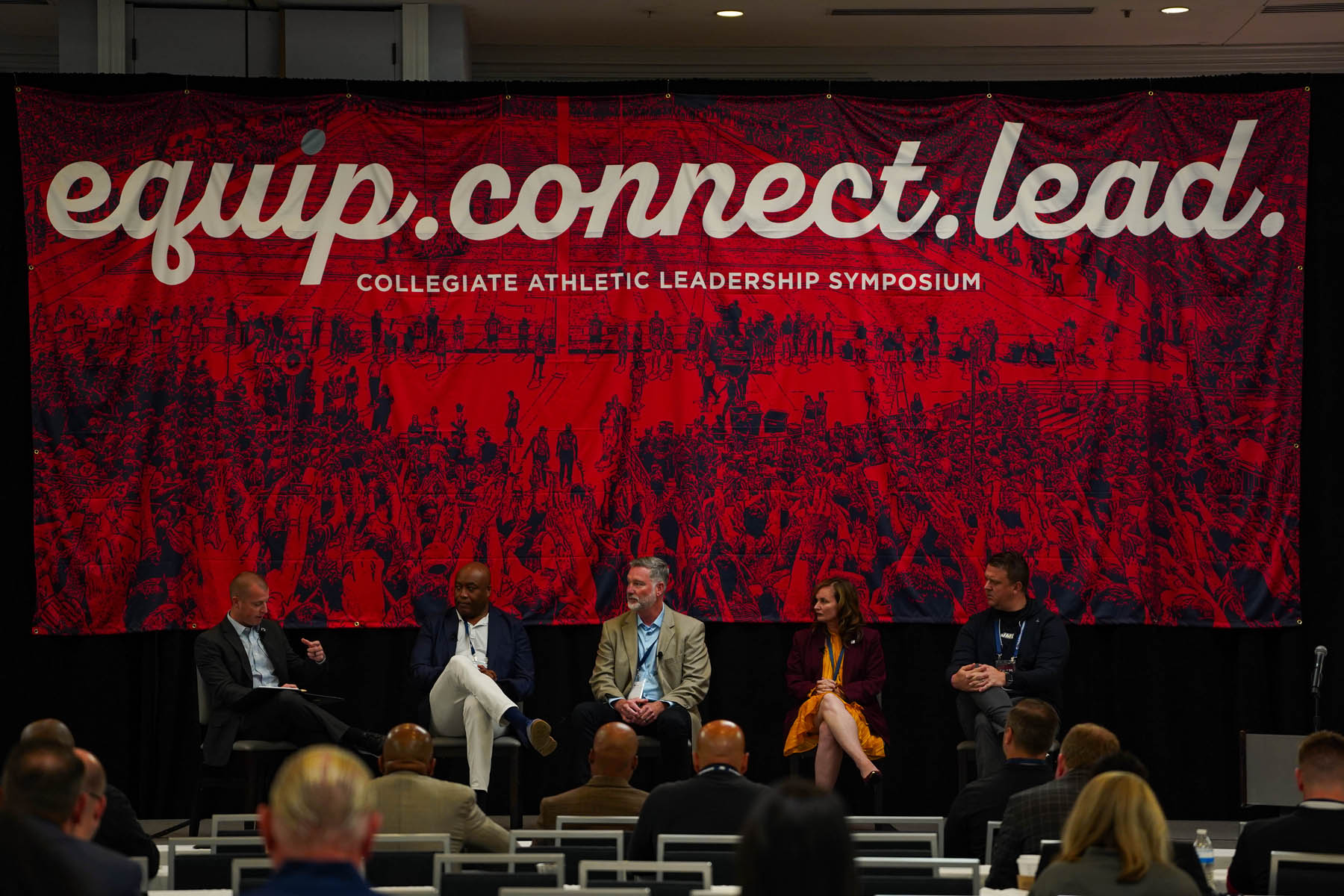
Fan-Driven Revenue Generation: From First Click to Last Gift
Gil Beverly
President, Playfly Aspire
Mike Carlton
Director of Business Development, Fanatics
Amy Folan
Director of Athletics, Central Michigan University
Matt Roan
Director of Athletics, James Madison University
Moderator: Adam Miller, Deputy Director of Athletics, Penn State University
When you are asking people to invest, you are asking them to invest in something that is real, which provides meaningful opportunities for student athletes to have access and an opportunity to higher education.
— Matt Roan
Operational Excellence: Maximizing Resources in Today’s Athletics Landscape
Megan Franklin
Director of Athletics, University of Northern Iowa
David Harris
Director of Athletics, Tulane University
Griffin Jaques
Vice President, Anthony Travel
Chris Nations
President, Nations Group
Moderator: Jason Fein, Deputy Director of Athletics, UMBC
It’s expensive to replace staff and expensive to have staff that feels overworked and unappreciated so we’re looking at that. How are we leading with their voice, and fostering an Internal culture of Love?
— Megan Franklin
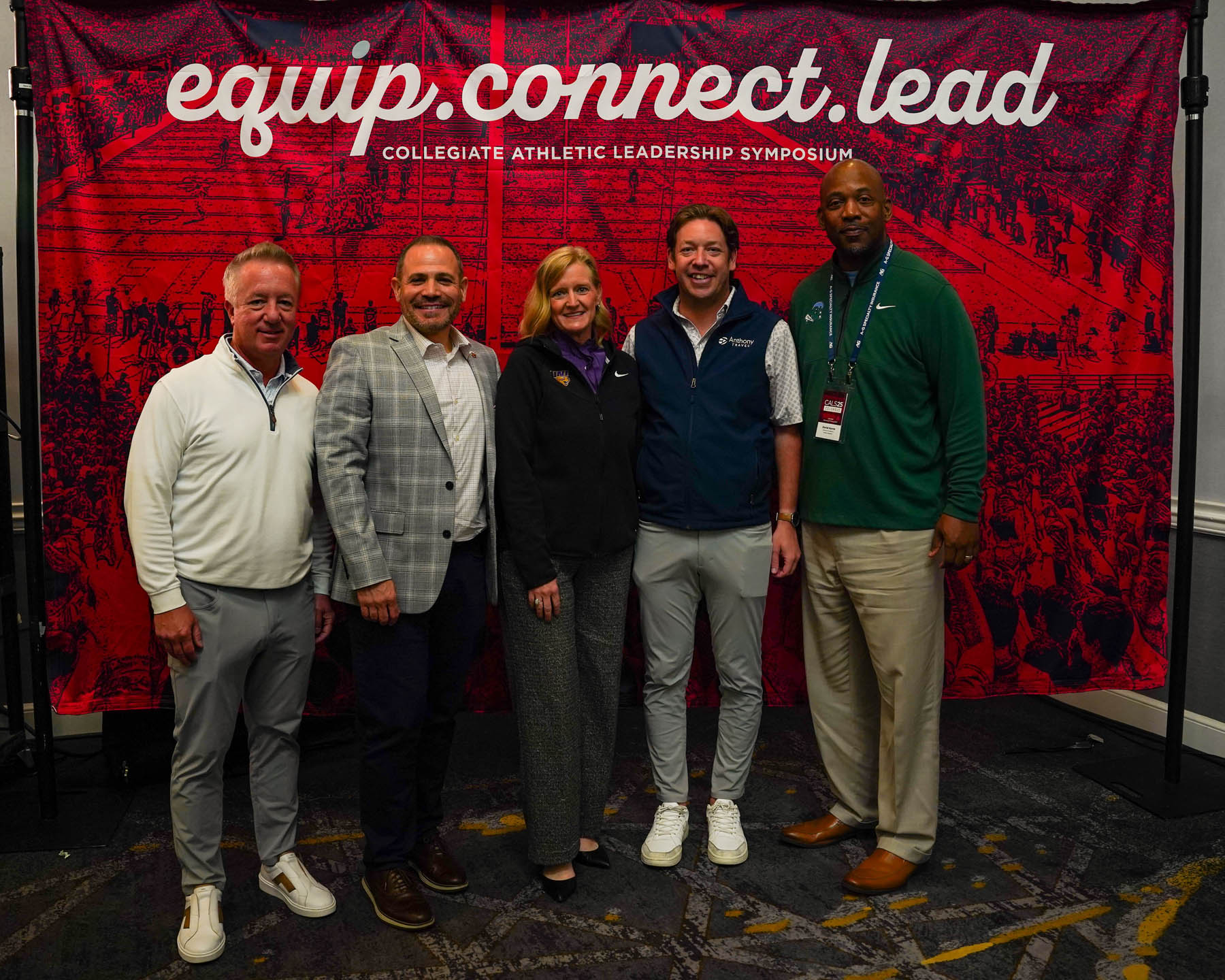
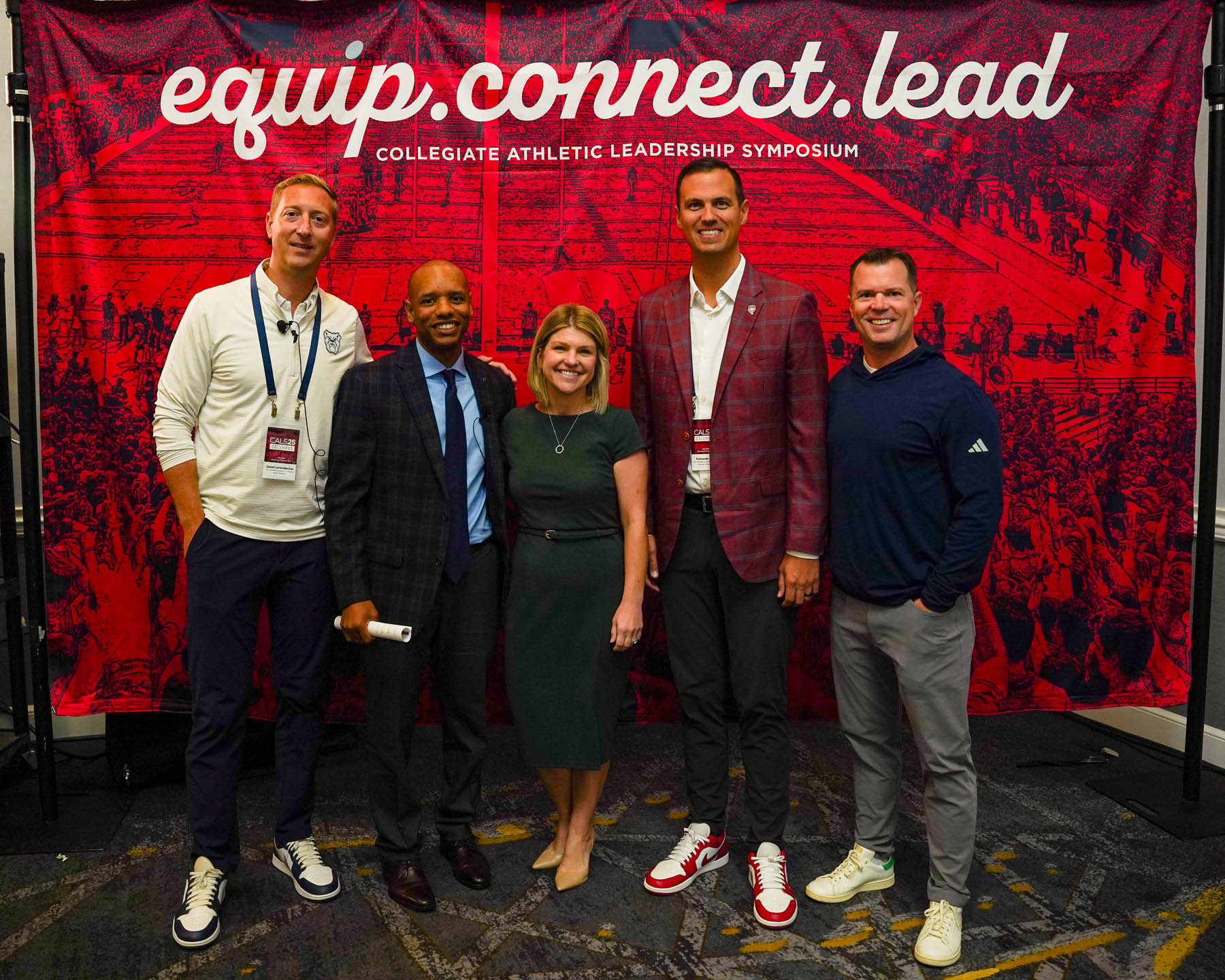
The AD Transition: Expectations, Realities & Lessons Learned
Chris Davis
Director of Athletics, Georgia Southern University
Kelsie Gory Harkey
Director of Athletics, Cleveland State University
Grant Leiendecker
Vice President and Director of Athletics, Butler University
Fernando Lovo
Vice President and Director of Athletics, University of New Mexico
Moderator: Charles Small, Senior Associate Athletics Director, University of Washington
Relationships must come before reform…I tried to be very intentional about diving into and meeting with folks and getting around the community.
— Fernando Lovo
Bubba Cunningham:
A Legacy of Leadership
By Will Reece

After launching NextLevel in 2007, I spent four years crisscrossing the country in a Ford Taurus—meeting coaches, athletics directors, and decision-makers—looking for ways to build genuine relationships and grow a business.
In May 2011, a lower back surgery sidelined me from traveling for six months. It felt like a player being taken out of the game. I remember thinking: How can I bring people to me?
At the time, I had been connecting with a younger generation of administrators and had also built a friendship with Bubba Cunningham, then the Athletics Director at the University of Tulsa. I approached Bubba with an idea: let’s bring together upwardly mobile administrators to learn from and network with leaders like him. Bubba’s encouragement—and his willingness to attach his name and credibility to me—changed everything.
I often think about that conversation and what one well-timed “yes” can mean for us personally and professionally. The person offering encouragement rarely realizes the ripple effect it can have on the receiver—how it can propel them forward in ways that last a lifetime.
Six weeks later, we hosted the first CALS in Tulsa with 38 attendees. The spirit of connection, growth, and camaraderie was undeniable. The very week of that first CALS, Bubba interviewed for and accepted the job at North Carolina. True to form, he hosted our second CALS in Chapel Hill—this time with 100 attendees—and from there, the event continued to grow in size, reach, and impact over the next 15 years.
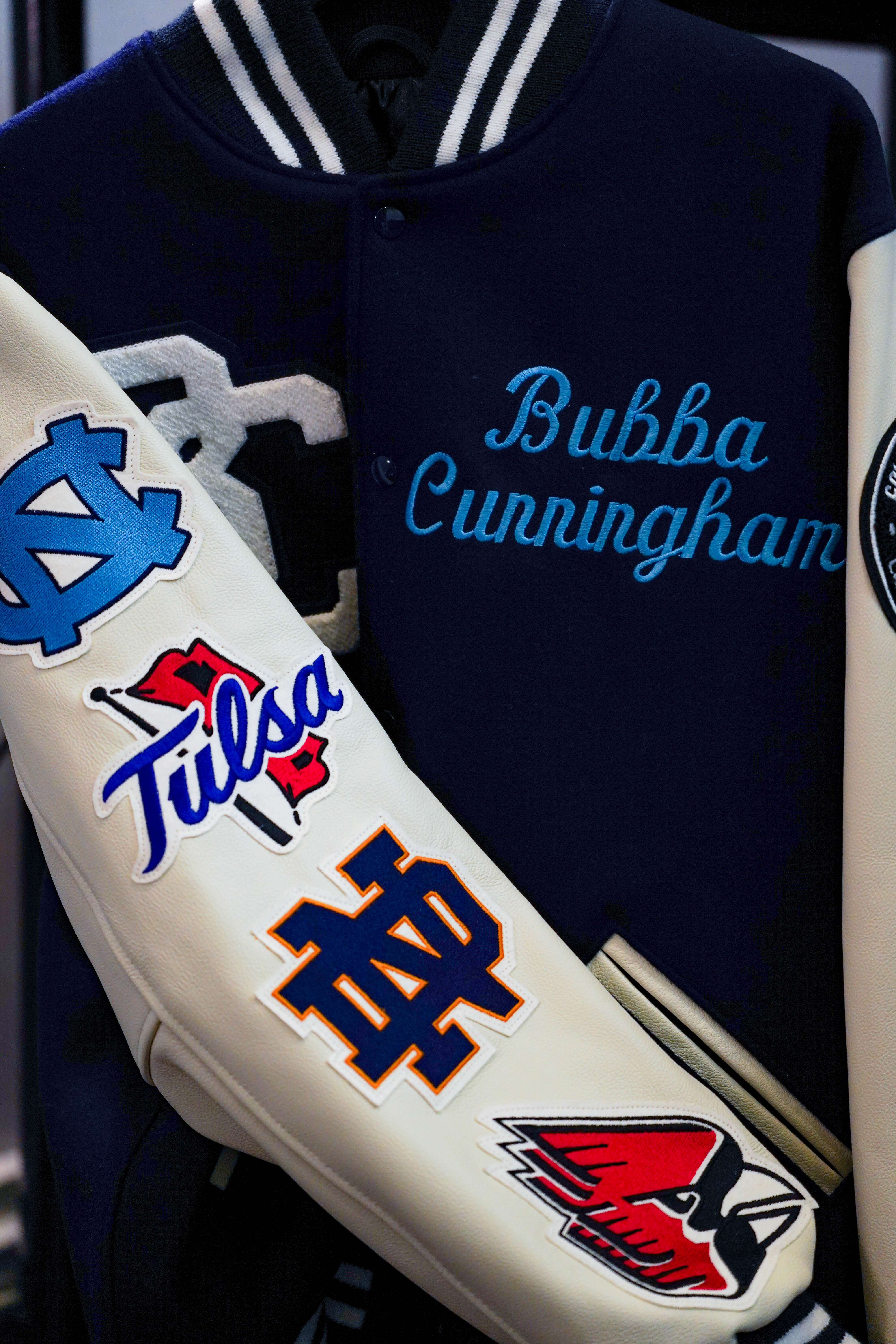
At CALS 25 in Columbus, we surprised Bubba by honoring him with a one-of-a-kind custom letter jacket created by Settlemier’s Award Jackets of Portland, Oregon. The jacket paid tribute to his career stops at Notre Dame, Ball State, Tulsa, and North Carolina, and to his role as the “Godfather” of CALS. The back of the jacket read simply: A Legacy of Leadership.
That phrase captures not only Bubba’s contribution to the origin of CALS and his service to this community but also the broader legacy he has built across college athletics—a legacy defined by servant leadership. Bubba is the best example of how to lead with intelligence, competency, humor, warmth, and an inherent humility that puts everyone around him at ease. He has mentored, encouraged, and championed countless people along his journey, many of whom share my deep appreciation and gratitude for his example and friendship.
As Wren Baker, Vice President and Director of Athletics at West Virginia University, shared:
Bubba Cunningham has been one of the most influential leaders in college athletics over the last two decades. I have always admired and appreciated his intentional approach to sharing his experiences with others so they can learn and grow. Perhaps even more impressive is his desire and commitment to learn from the experiences of others, regardless of their age, position, or profile. Bubba has impacted countless careers and lives and his role in the birth and development of CALS is just one example of his tremendous influence. I know I speak for many people when I say thank you, Bubba, for all that you have done to help so many individuals in our industry.
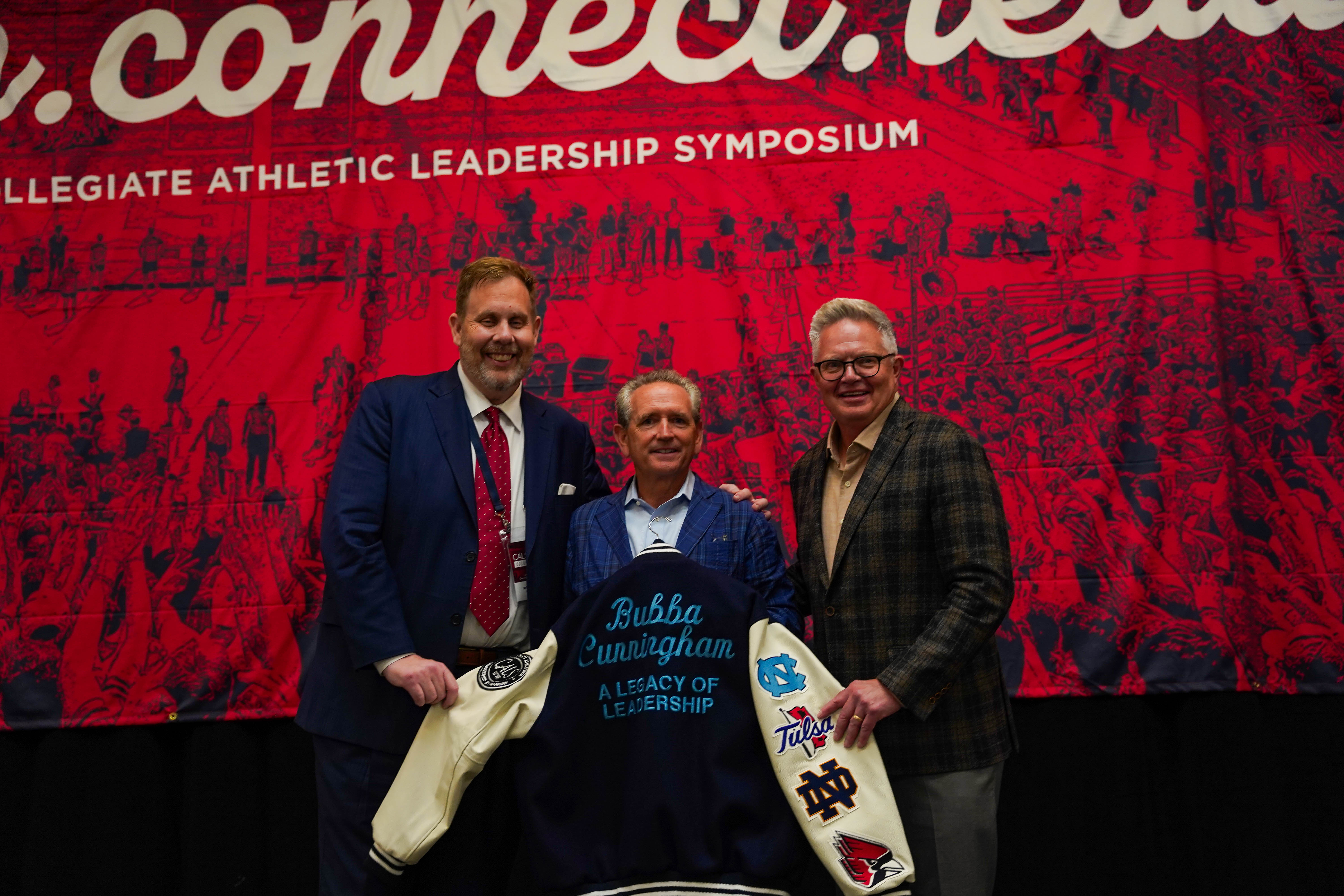
Mississippi State Director of Athletics Zac Selmon added:
Bubba Cunningham’s impact on lives around the world is truly immeasurable. From the thousands of student-athletes who earned their degrees under his leadership, to the coaches he has supported and inspired, the championships won, and the many professionals he has mentored—his influence can be seen across the country and beyond. Bubba and his wife, Tina, lead with vision, gratitude, and unwavering determination. Their example is a source of inspiration. My family and I are deeply enriched by the opportunity to have worked alongside a leader whose steadfast values and selfless approach continue to make a lasting difference.
And from Troy Dannen, Athletic Director at the University of Nebraska:
Bubba has influenced the day-to-day approach to the job of nearly every sitting AD in the country. But for me personally, his greatest impact hasn’t been the tactics and skills necessary to succeed in this job, but rather his demonstration of leadership every single day. He showed us how to remain a gentleman, how to carry oneself, how to engage and treat others, and how to influence others to build a stronger whole. Bubba treated me like a peer and equal associate from day one when I wasn’t sure I belonged at his table. That remains the first thought I have each time I get to interact with him. Ultimately, he has been everyone’s partner in an enterprise with fewer and fewer partnerships.
Fifteen years after that first CALS, Bubba’s fingerprints are still visible—not just on this event, but on the culture of collaboration and mentorship it represents. His belief in helping others rise continues to ripple through this community, shaping the next generation of leaders in college athletics.
A legacy of leadership, indeed.
For today’s athletics directors and coaches, time is the most valuable resource. Private aviation isn’t a luxury—it’s a strategic tool that allows leaders to maximize their reach, maintain balance, and stay present on campus while still recruiting, fundraising, and representing their programs all over the country. We experienced firsthand the efficiency and professionalism of Airshare as they got our CALS team to Columbus seamlessly. Airshare understands the pace of college athletics and helps make the impossible schedule possible.
— Will Reece
NextLevel Sports, CALS Director
Lisa Walker, Eventellect
Partner Spotlight
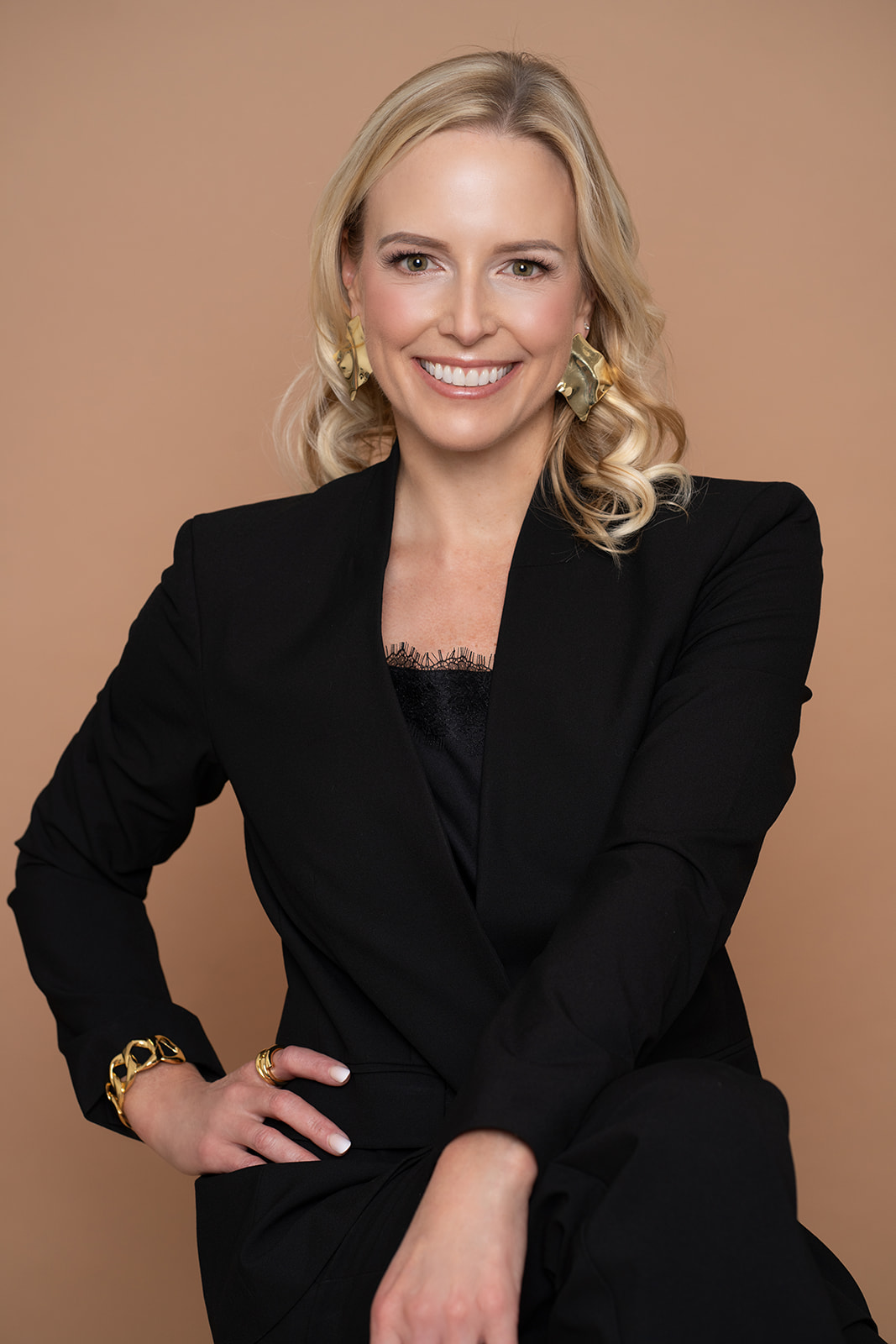
Championing Women, Connection, and Purpose in College Athletics
This year marks the fifth anniversary of the CALS Female Executive Scholarship, a program created to elevate and empower rising women leaders across college athletics. For Eventellect’s Lisa Walker—who helped spark the initiative alongside CALS Director Will Reece—the milestone represents far more than a number. It reflects five years of access, mentorship, and meaningful connection.
“Even before this program began, I was fortunate to attend CALS for several years while working at Paciolan,” Walker said. “During that experience, it became clear to me that more access for women was needed—period.”
Her vision was straightforward yet transformative: build a vehicle that offered both financial support and a meaningful pathway for athletic directors to recognize and nominate the talented women leaders within their departments. Just as importantly, the program aimed to create a cohort—a true community of women who could engage deeply at CALS and remain connected long after the event.
“The most fulfilling part has been the relationships I’ve built with each of the scholarship recipients,” Walker reflected. “Those personal connections are the lasting impact. When I look back at the first class from 2021, I’m still close colleagues with so many remarkable leaders—like Joey Bailey (Miss State), Alicia Longworth (Tennessee), Cat Zuppani (UConn), and Kristine Fowler (Dartmouth).”
CALS Director Will Reece called the partnership one of the most meaningful in the event’s 15-year history.
“Looking back over the past 15 years of CALS, there’s so much that I’m proud of,” Reece said. “Toward the very top of that list is partnering with Lisa and Eventellect on the Women’s Scholarship Program. I give Lisa all the credit for the vision and passion behind this project—and Eventellect for putting their money where their mouth is and truly investing in this initiative. It has made the women who have attended better, as well as CALS itself.”
Building Access and Opportunity
The CALS Female Executive Scholarship has quickly become a cornerstone of the event’s commitment to advancing women in college athletics. Each year, the initiative provides an immersive experience for emerging female leaders—covering registration, travel, and accommodations, and culminating in a private dinner hosted by Eventellect that fosters genuine connection and mentorship among women at every stage of their careers.
Athletics Directors across the country are invited to nominate a female administrator from their department at the Assistant AD level or above who has not previously attended CALS. From there, a committee of past honorees and representatives from CALS, NextLevel, and Eventellect selects each year’s class, adding new voices and perspectives to a growing network of women who are shaping the future of the industry.
Since its inception, the scholarship has welcomed an impressive group of leaders whose influence continues to ripple across campuses nationwide—each one strengthening both CALS and the broader college athletics community.
Shared Values, Shared Investment
Eventellect has been one of CALS most consistent and engaged partners, and Walker says the reason is simple: alignment.
“CALS has always been more than just a conference,” she explained. “It’s a place where candid conversations happen—where leaders collaborate, challenge each other, and grow. That environment aligns so naturally with how we approach our work at Eventellect: be real, act with integrity, and keep the partner at the center.”

A Game Changer…In More Ways Than One
Recently named a Sports Business Journal Game Changer, Walker sees the recognition not as a personal accolade, but as a reflection of her community.
“When I found out, my first thought was about all the people who’ve been in my corner—family, teammates, mentors, friends,” she said. “This honor is really a reflection of them and the support they’ve poured into me over the years.”
Walker credits her husband and children for their endless flexibility and enthusiasm for what she calls “Mom’s next college adventure.” From family trips to NCAA football games and women’s volleyball championships, to the most heated rivalry matchups of the year, she treasures the shared experiences.
“The first time I attended SBJ Game Changers was in 2019, when Kim Damron—who’s been a mentor and friend for 15 years—was recognized,” she recalled. “I left inspired, not because of titles or accolades, but because of the power of shared purpose and her commitment to service. I’m even more committed now to paying that inspiration forward to other rising women in our space.”
Advice for the Next Generation
Walker’s message to women pursuing a career in sports is rooted in resilience and perspective.
“One of my favorite quotes is from Billie Jean King: ‘Pressure is a privilege,’” she said. “No matter where you are in your career, that rings true. My advice? Don’t run from it—get comfortable being uncomfortable. That feeling usually means you’re growing.”
She acknowledges that pressure can feel heavy at times but urges women to stay grounded. “Pause, take a deep breath, and remember: you can handle more than you think. Ladies, I gotcha—and I mean it—call me, and I’ll pick up the phone.”
Staying Inspired
Walker’s journey in college athletics began in 2003 as a graduate assistant at Arizona State University under Athletics Director Gene Smith. Though she never competed as a college athlete herself, she’s spent her career working to stay as close as possible to the student-athlete experience she admired.
“My passion for the student-athlete experience and the excitement of competition hasn’t changed one bit,” she said. “If anything, it’s grown. Just like athletes put in the work to win, I love solving problems for athletic departments so they can reach their goals and create amazing experiences for their fan bases.”
From building access for women to innovating alongside partners who share her values, Lisa Walker’s impact continues to ripple across college athletics—proof that leadership, when rooted in authenticity and purpose, truly changes the game.
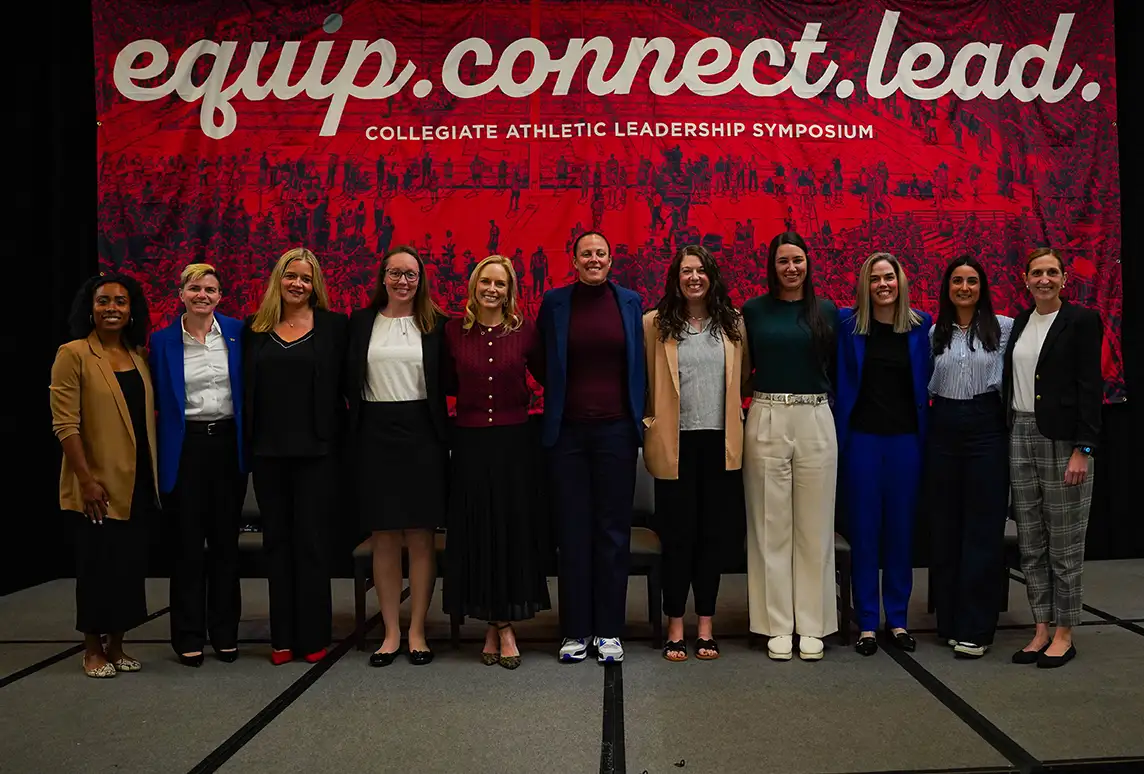
The Culture Starts With You
By Kevin DeShazo & Seth Kindig — BETTER
In college athletics, culture is everywhere. You hear it in press conferences, see it on locker room walls, and feel it in every team meeting. But here’s the truth:
Culture isn’t declared. It’s demonstrated.
And it starts with the leader.
For years, athletic departments have focused on external levers - better facilities, bigger budgets, NIL strategies, new hires. All important. Yet we know that more resources don’t guarantee better outcomes.
The real scoreboard - the one your staff and athletes feel every day - is internal.
ADs Set the Atmosphere
As an athletic director, your presence sets the tone. Your energy, rhythms, and clarity ripple through coaches, staff, and athletes.
- Walk in grounded and focused → your people settle.
- Lead with scattered urgency → everyone else feels the chaos.
- Model consistency → trust grows.
- Fluctuate emotionally → your ecosystem braces.
Departments mirror their leaders. Leadership is a force multiplier—for better or worse.
You Can’t Build Culture While Running on Fumes
The modern AD role is relentless: budgets, donors, staff turnover, legislation, student-athlete needs, media pressure. But you can’t build external stability if your internal rhythms are in disarray.
When leaders are overextended or emotionally inconsistent, cultures become reactive. Meetings turn into firefighting. Coaches feel the ripple. Athletes absorb the atmosphere.
Check Your Leadership Dashboard:

Elite leaders monitor their internal state like teams monitor player performance. Here are five “dials” that shape your leadership atmosphere:
- Composure – Are you steady or reactive?
- Drive – Anchored in purpose or grinding on autopilot?
- Focus – Locked in or distracted?
- Consistency – Modeling standards or sending mixed signals?
- Perspective – Leading long-term or reacting short-term?
When one dial runs low, the ripple hits everything—trust, alignment, performance.
Rhythms Win Over Intensity
Great leaders don’t rely on adrenaline. They rely on rhythm.
Culture isn’t built in big moments; it’s built through daily habits. Here are simple rhythms ADs can build:
- Daily: 5 minutes of solitude before the day begins
- Weekly: One leadership-focused check-in with a coach
- Monthly: A strategic senior staff meeting on alignment
- Yearly: A personal retreat to revisit vision
Small, consistent rhythms stabilize your leadership—and your department.
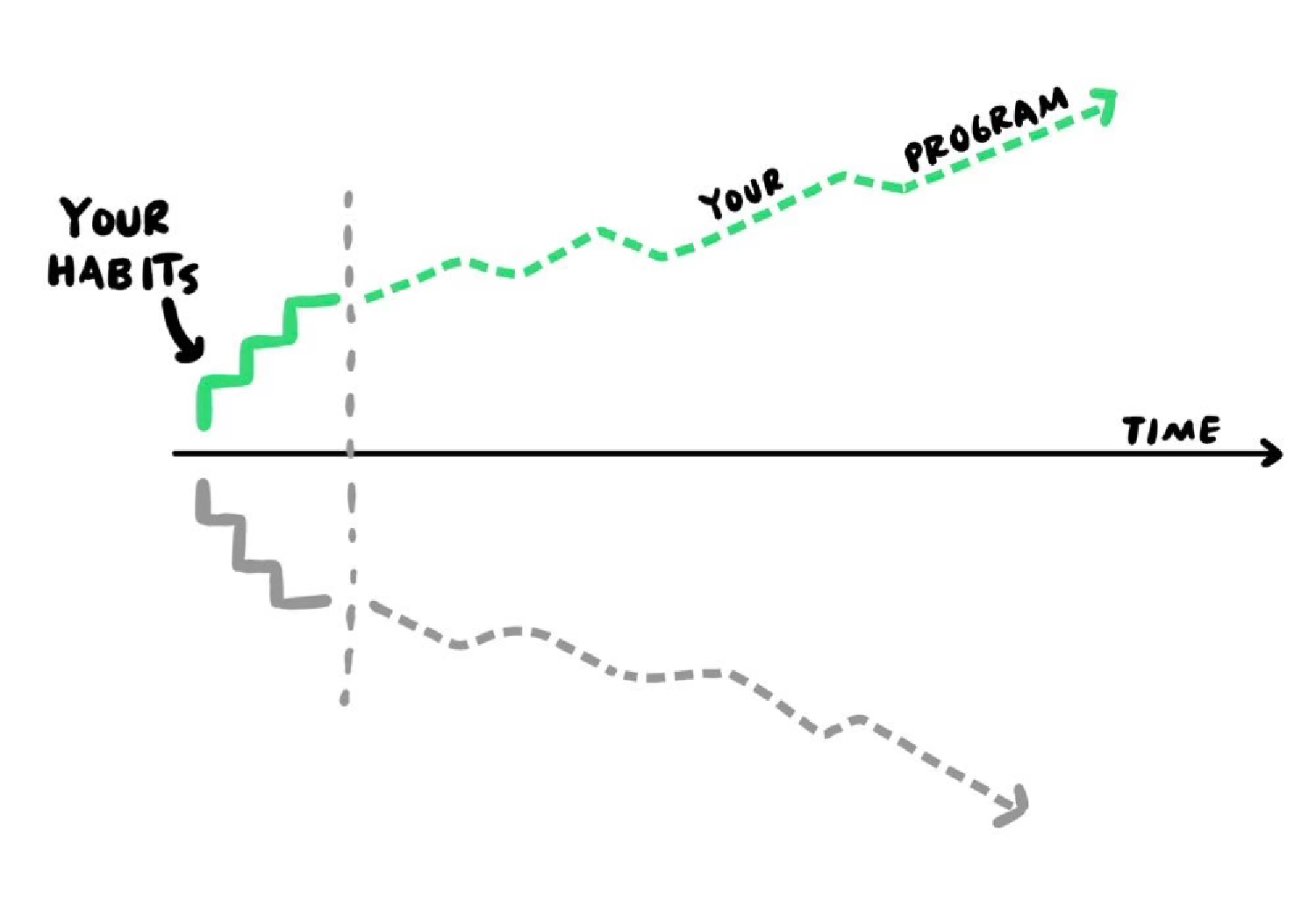
You Are the Culture
Your department won’t rise to the level of your strategy; it will fall to the level of your leadership rhythms.
If you want resilient programs, become a resilient leader.
If you want alignment, lead with clarity and rhythm.
If you want a thriving culture, build it into your daily leadership.
Culture doesn’t happen by accident.
It happens by rhythm.
And it starts with you.

About BETTER
BETTER helps leaders in sports build championship cultures by leading themselves well, developing their staff, and creating self-leading athletes.
GET TO KNOW
KEVIN WHITE
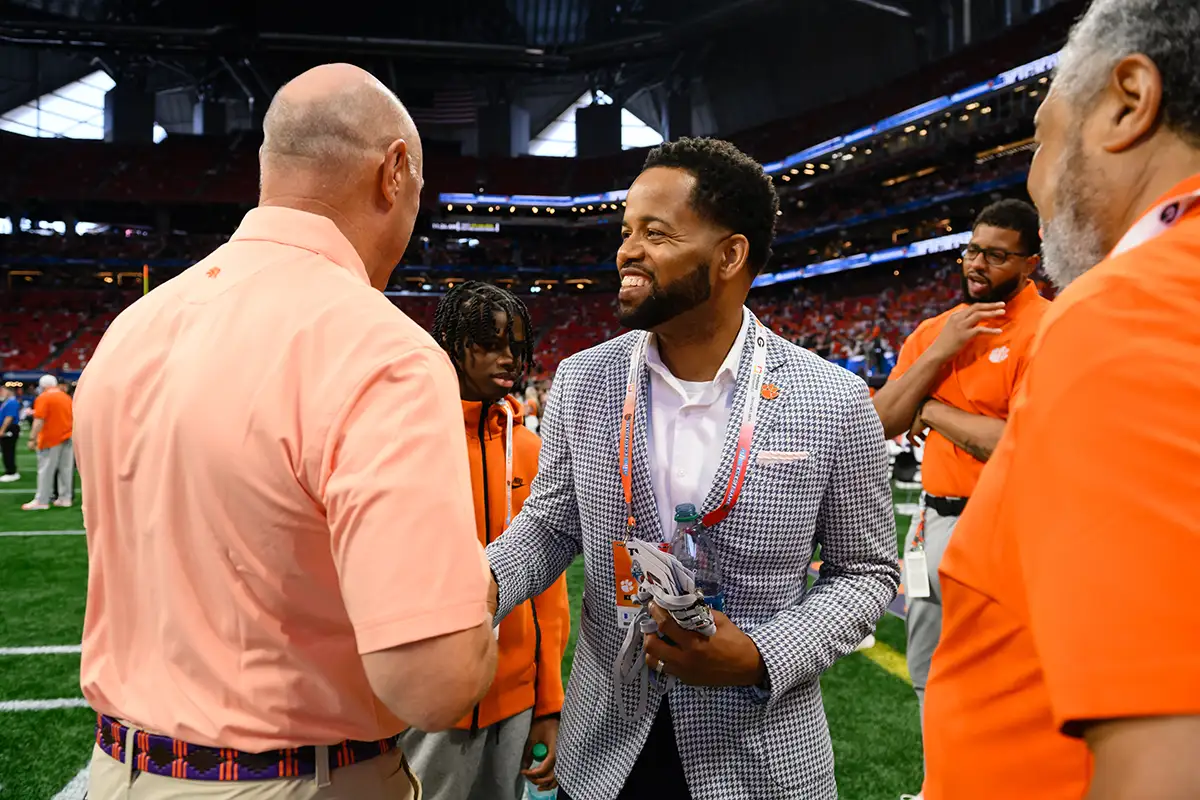
Kevin White, Deputy Director of Athletics, Clemson University
1. What does your role at Clemson entail? What are your areas of responsibility? Would love to hear any recent successes or exciting projects you’re currently working on.
I currently serve as the Deputy Director of Athletics at Clemson, where I oversee our football and men’s basketball programs. Over the years, our business has evolved quite a bit, and my role now includes helping to lead our revenue-sharing strategy and helping establish a central front office that supports the entire athletic department.
I also work closely with IPTAY, our fundraising arm, serving as a key link between IPTAY and the athletic department, and I oversee our ticket operations and aviation departments. During my time at Clemson, I’ve also had oversight of the business office, human resources, facilities and capital projects, along with administrative oversight of our external units.
This past year, our team launched Clemson Ventures—a first-of-its-kind initiative focused on maximizing revenue opportunities. I’m currently working on an exciting project that could be a multi-million-dollar opportunity and potentially the first of its kind in college athletics. Hopefully, I’ll be able to share more about that soon.
2. It’s always interesting to hear how people started their career. Please share when you knew athletics was for you, what degree path you followed, and how that helped you get started.
My path into college athletics administration started at the University of North Carolina, where I was part of the basketball program. At the time, I didn’t fully understand everything that went into running an athletic department. After graduating from Carolina with a degree in psychology, I began a business career in corporate America. Things were going well, but I missed the energy and competition of sports.
To stay connected, I started officiating youth basketball games on Saturday mornings in Atlanta. One day, I struck up a conversation with the gym administrator, who mentioned he was in the master’s program in sport business at Georgia State. I looked into it and enrolled. While in the program, I worked with the men’s basketball team and thought coaching might be my path.
During that time, I met Marvin Lewis—now the AD at George Mason—who was the CFO for athletics at Georgia State. He opened my eyes to the business side of college sports and encouraged me to consider administration. A few months later, Marvin gave me my first opportunity, hiring me as the travel coordinator for GSU Athletics. That’s where I got my start and discovered how much I loved the operational and strategic side of athletics. I later pursued an MBA at Kennesaw State to strengthen that foundation.
3. During your career, you’ve spent time at other institutions and in other roles. Tell us a little about your path to your current position and how your previous experience helped shape you as an administrator.
I owe a lot to Cheryl Levick, then the AD at Georgia State, and Marvin Lewis, the CFO who hired me. They gave me my first real chance and taught me how to run a business office from the inside out. Because we had a small staff, I was able to learn nearly every aspect of how an athletic department operates. Working at a Group of Five school early on was the best thing for me—it forced me to understand the difference between needs and wants, what matters most to coaches, and how to build systems that work with limited resources.
From there, I joined Rick Hart at SMU, moving from the Sun Belt to the American Athletic Conference. It was a big step and a great experience. Shortly after I arrived, we hired Chad Morris, who had been Clemson’s offensive coordinator, as our head football coach, and I had the chance to work with Hall of Fame coach Larry Brown. I started as CFO and later moved into the Senior Associate AD and Chief Operating Officer role. Rick gave me incredible trust and exposure—beyond managing finances, I helped shape the department’s strategic plan, led staff and board meetings, and handled major contracts.
After three years at SMU, Jim Phillips invited me to join him at Northwestern as one of his Deputy Athletic Directors. I spent four great years working under Jim before he left to become ACC Commissioner and stayed another year under Dr. Derrick Gragg, helping with his transition.
After five years at Northwestern, I got a call from Graham Neff at Clemson, who had just been promoted to AD. He asked if I’d be interested in stepping into the Deputy AD role he had held. Each stop along the way—Georgia State, SMU, Northwestern, and now Clemson—has shaped my perspective. I’ve seen large public institutions and private universities, and I’ve learned how structure, culture, and leadership dynamics differ. Those experiences helped me develop a broad view of how to build and sustain success in college athletics.
One thing I’ve learned is that it’s not always easy to see how your work connects directly to student-athletes, especially early on. But over time, I realized that every role contributes to their experience in some way. Serving as a sport administrator and seeing that impact up close has been one of the most rewarding parts of my career.
4. Discuss a couple of people who have been role models or mentors to you and what they’ve offered.
There are so many. Marvin Lewis was the first to believe in me and taught me how to operate with precision and professionalism. Cheryl Levick gave me opportunities to grow and modeled how to lead with grace, polish, and poise.
Rick Hart, formerly at SMU has been another tremendous influence. He’s steady, thoughtful, and family-oriented—a third-generation athletic administrator who’s seen it all. From him, I learned the value of composure and consistency.
Jim Phillips is someone my family and I hold in the highest regard. He’s one of the most genuine, positive leaders I’ve ever known and has an incredible ability to make everyone feel like the most important person in the room. From him, I learned the power of being collaborative and people-centered.
I’ve also been fortunate to have a close circle of peers—Brian Baptiste (Miami), Marcus Sedberry (Wisconsin), and Yulander Wells (Notre Dame)—who I talk with regularly about leadership, fatherhood, and life. Those conversations go well beyond athletics and keep me grounded.
Others like Jonathan Holloway, Derrick Gragg, Travis Goff, Bubba Cunningham, Deneé Barracato, Monique Holland, Kosha Irby, Allen Greene, Max Allen, and of course Graham Neff have all shaped how I think and lead. I’m incredibly grateful for their support and friendship.
5. How have you grown as a leader throughout your career?
I’ve grown at every stop, largely by being surrounded by great people and mentors. Early on, I was focused on learning the fundamentals—running a business office, managing budgets, and handling contracts. Over time, I began to see leadership as less about process and more about people. It’s about listening, building trust, and creating an environment where others can succeed.
At places like SMU, Northwestern, and Clemson, I’ve tried to focus on improving both operations and culture—driving revenue while enhancing the student-athlete experience. Competing at the highest level while graduating student-athletes among the best in the country is something I take a lot of pride in.
I’ve also learned to stay steady, not getting too high or too low regardless of what’s happening. This industry moves fast, and there’s always pressure. Staying grounded and focusing on what truly matters is essential.
And honestly, being a husband and father has shaped me just as much as my professional experiences. It’s taught me patience, empathy, and perspective—all qualities that carry directly into leadership.
At this point in my career, leadership is about empowering others, helping them grow, and building something sustainable for the future. That’s what motivates me every day.
6. What advice do you give to people just starting out in their career in college athletics?
Don’t be afraid to start small, and never be too proud to say yes to an opportunity, even if it doesn’t look glamorous.
I got into this profession later than most—at 29, married with two kids, and leaving corporate America. It was a leap of faith. When I arrived at Georgia State, I was the travel coordinator for athletics, but I also volunteered to assist our AD, Cheryl Levick, on football game days as her special assistant. It wasn’t a flashy role, but I took it seriously, and it became my opportunity to earn her trust. That experience changed everything.
By being reliable and steady, I built credibility, which led to more opportunities and promotions. It all started with saying yes to something small.
So my advice is simple: be faithful where your feet are. Take pride in the job you have today, say yes to opportunities that stretch you, and be the person people can count on. Build trust through actions, not words.
And most importantly, stay grounded in your purpose. In college athletics, we get to impact lives—not just through wins and losses, but through helping student-athletes grow, graduate, and succeed. If you stay focused on that, everything else tends to fall into place.
7. Discuss the role that professional development events like CALS and others have played in your career.
Professional development events like CALS have been invaluable. It’s not just the sessions—it’s the people, relationships, and conversations that happen around them. Those moments have shaped how I see leadership and helped me grow far beyond job titles or responsibilities.
Early in my career, I never took for granted the chance to be in the room with experienced leaders who had walked the path before me. I was hungry to learn—to listen, to ask questions, to understand how others approached challenges. CALS gave me that space to reflect, think strategically, and build lasting relationships with peers who continue to inspire me.
Even now, I walk away from every event with new ideas, new energy, and a deeper appreciation for how much we can learn from one another. That’s the real value of CALS—being around people who make you better and remind you why you got into this profession in the first place.
8. Would love to hear about anything fun or unique about Clemson that you really enjoy. Any hidden gems that visitors to the area shouldn’t miss?
What people love about Clemson—especially in athletics—is how special it feels on game days. The town of 18,000 swells to nearly 120,000 every Saturday in the fall, and everywhere you look there’s pride, tradition, and genuine southern hospitality. It feels like one big family reunion.
Beyond that, Clemson is simply beautiful. We’re right on Lake Hartwell, so you can leave the office and be on the water in ten minutes. That mix of intensity and calm is unique. It’s a special community where people truly care about one another—and you can feel that pride every single day, not just on Saturdays.
9. What book, podcast, or TV show are you currently recommending?
My wife has me watching the “Love Is Blind” seasons on Netflix. 😀
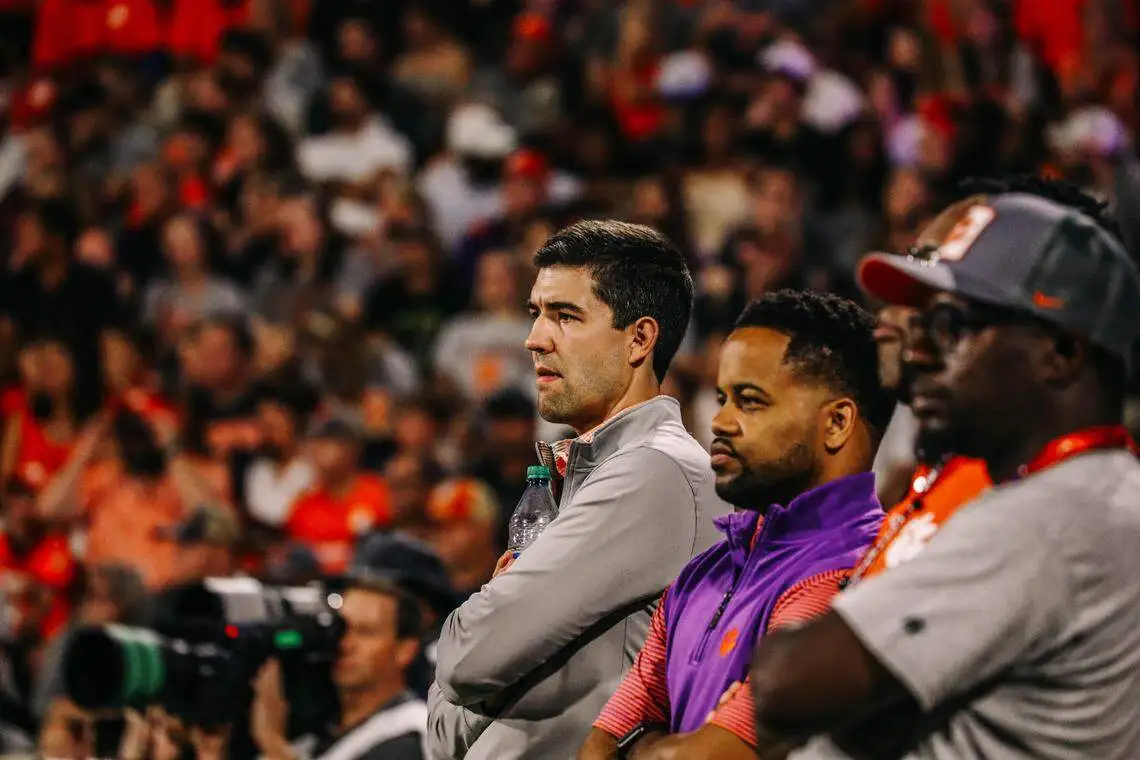
Kevin has a comprehensive skill set built by experiences at a variety of roles, schools, geographies and mentors. He has a great pulse for navigating day-to-day athletics issues while leading with a strategic mindset. Most importantly, he leads his family well and is a wonderful representative of Clemson.
— Graham Neff, Director of Athletics, Clemson University
Cals 1-day
Approximately 200 attendees from twenty athletics departments convened in Washington DC on June 18th for the 4th annual CALS 1-Day. The event hosted by George Washington AD Michael Lipitz at the Charles E. Smith Center.
CALS 1-Day combines the culture and community of CALS into a one-day regional event for athletics departments within approximately a 300-mile radius of the host site. It is open to collegiate athletics departments and administrators of all levels and provides an opportunity for professional development and networking.
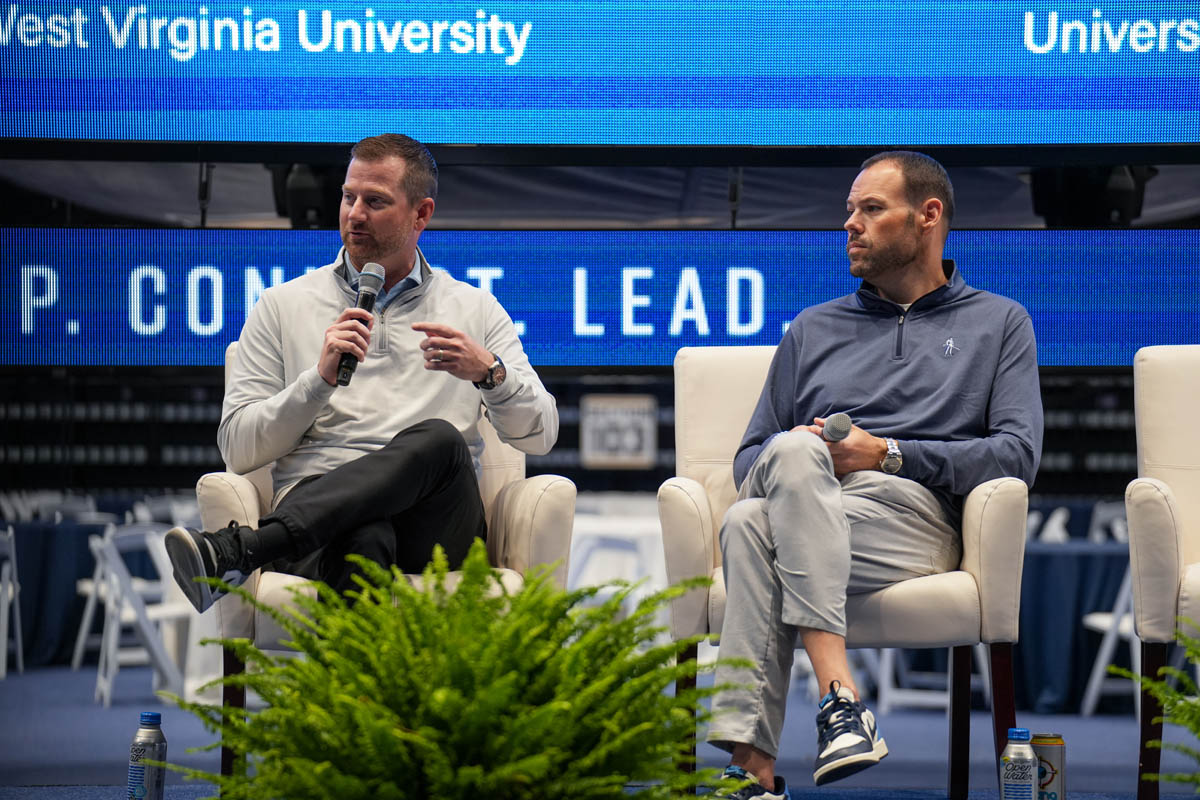
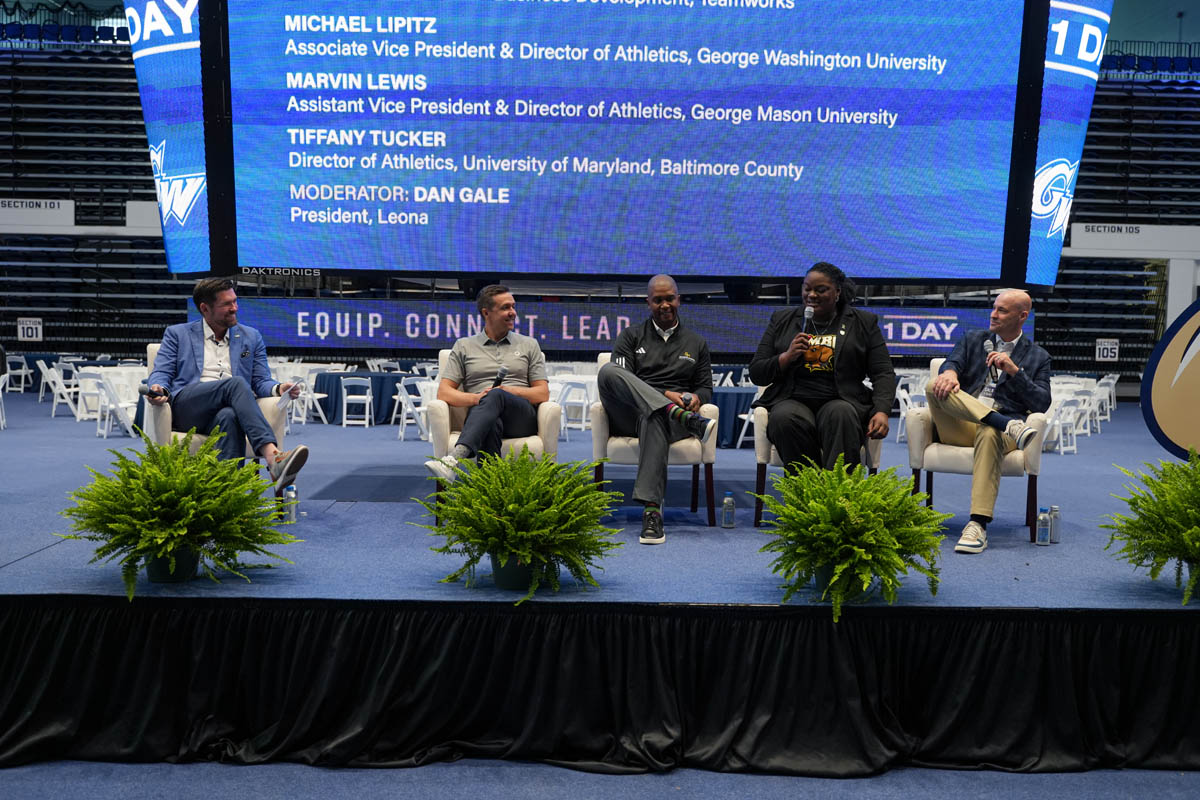
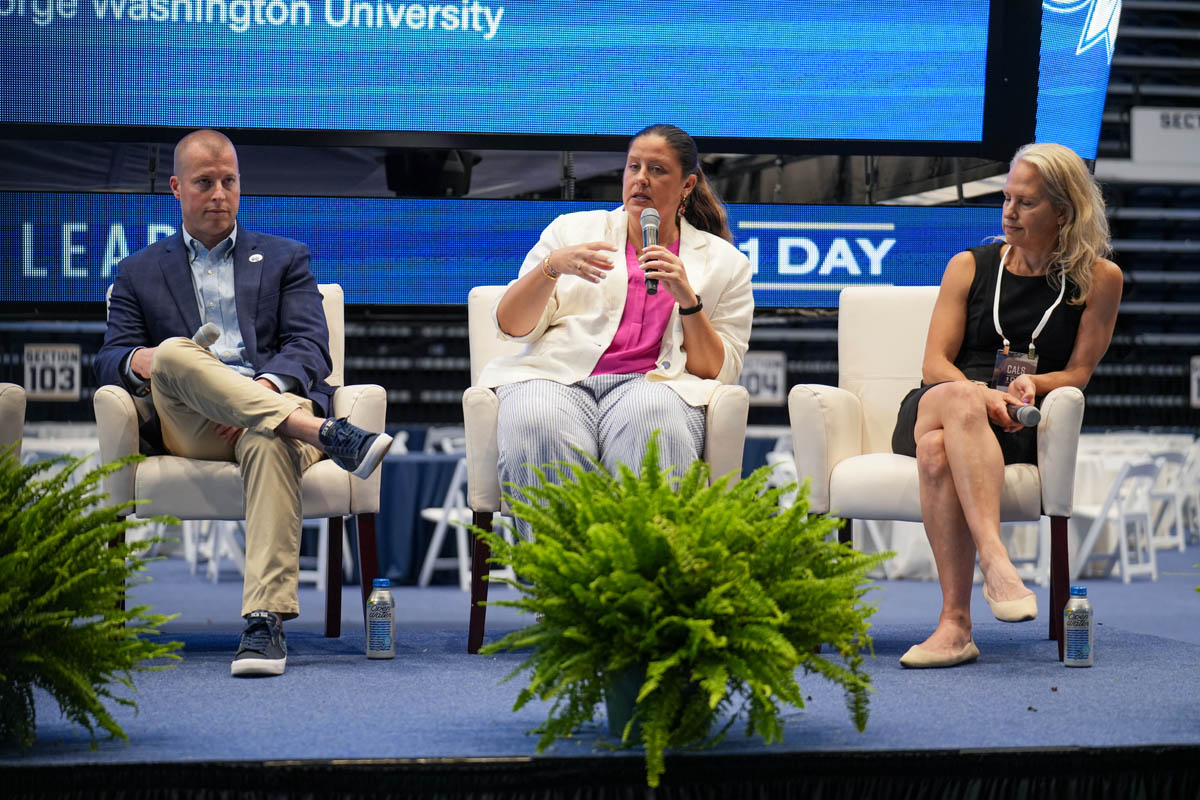
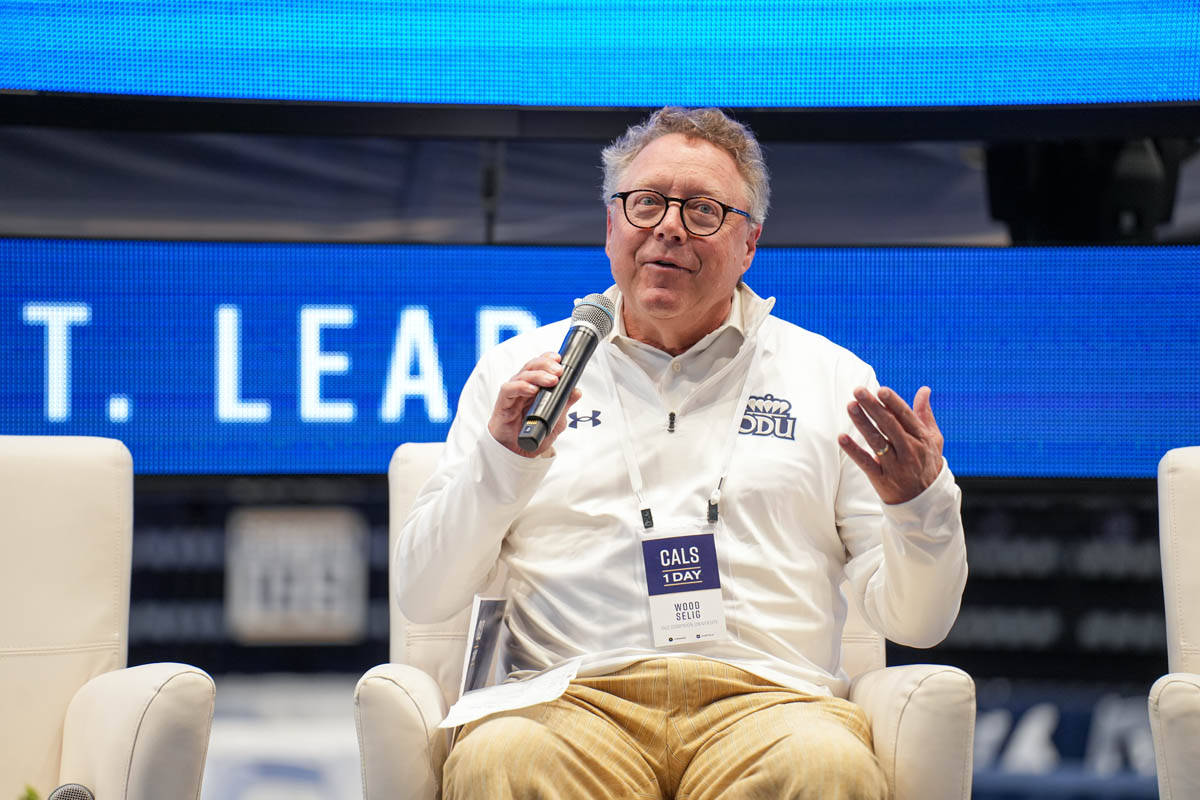
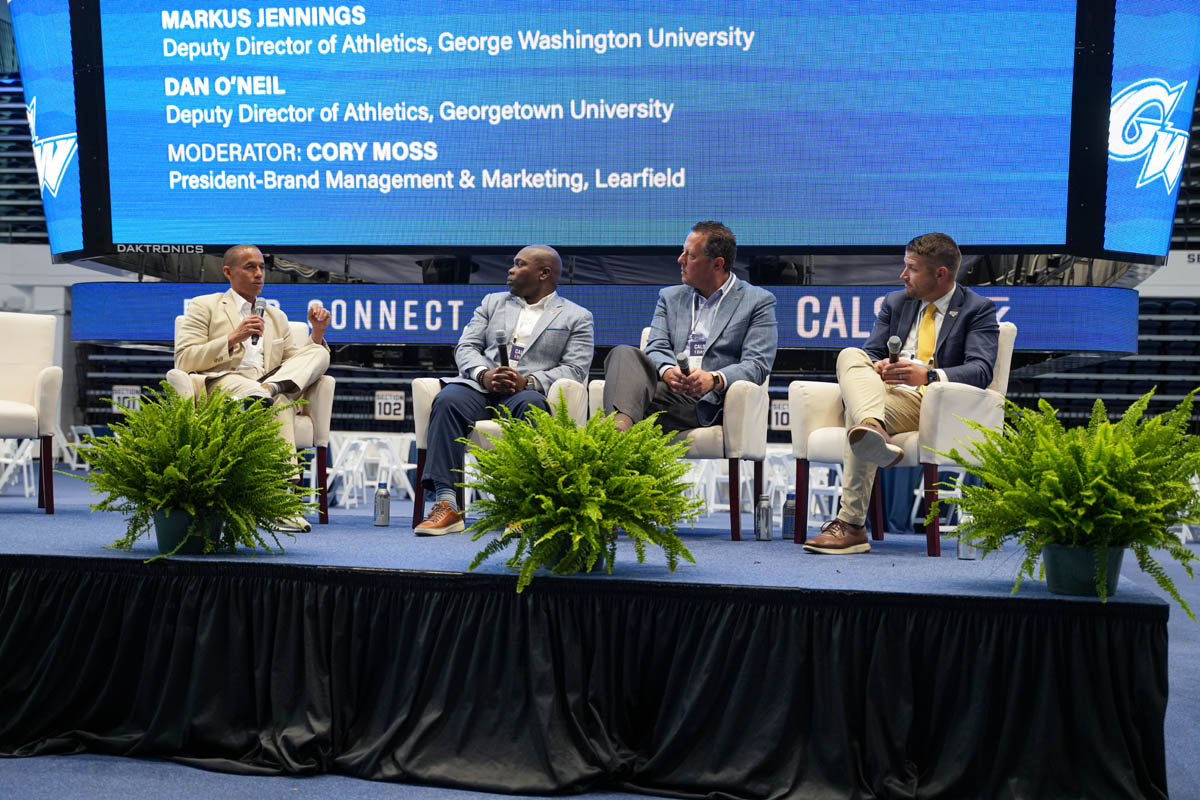

2026 CALS 1-DAY
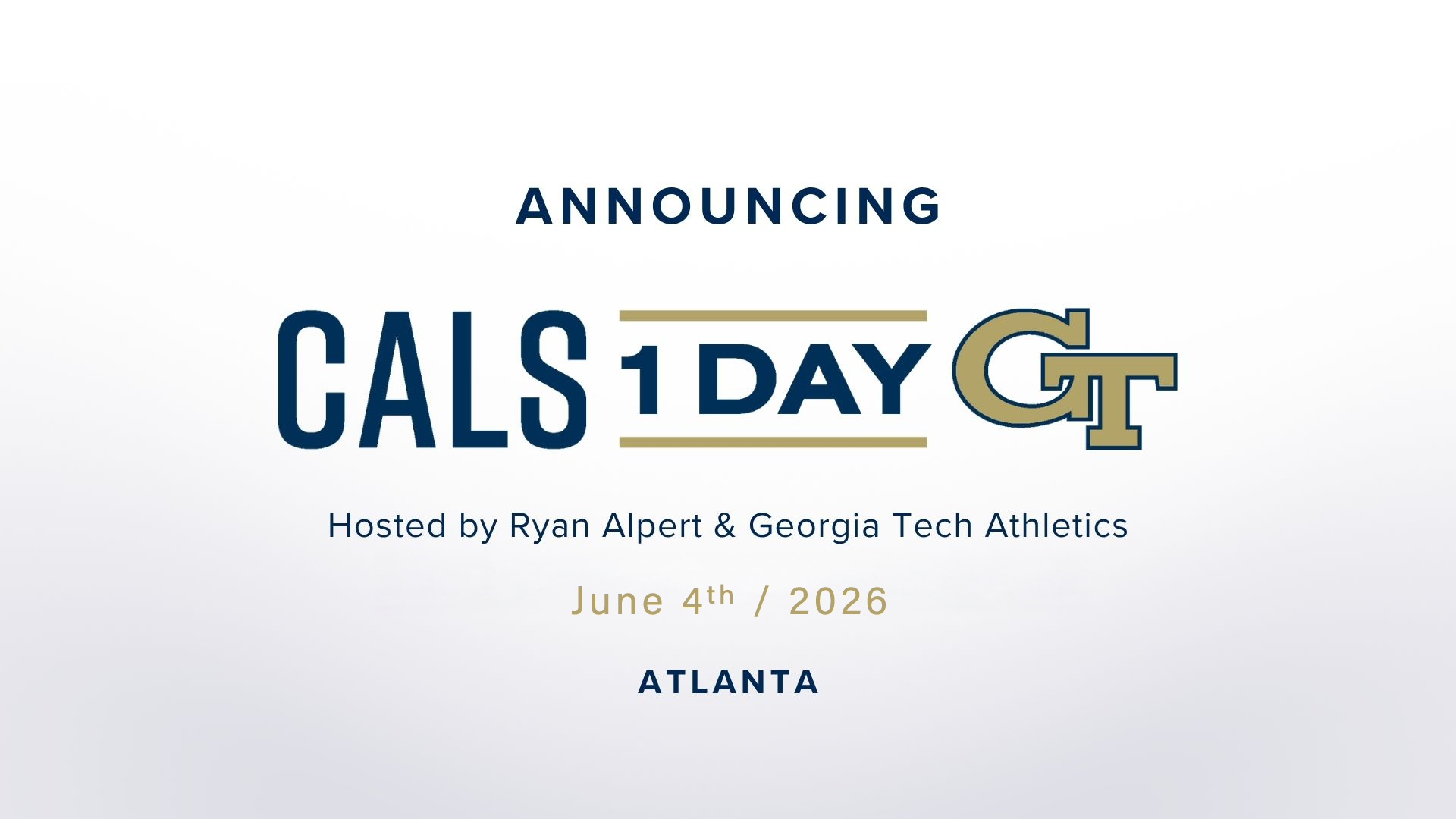 Next Section →
Next Section →CONGRATS
Congrats to CALS Faculty & Alumni on Recent Moves
Since the last issue of The CALS Report
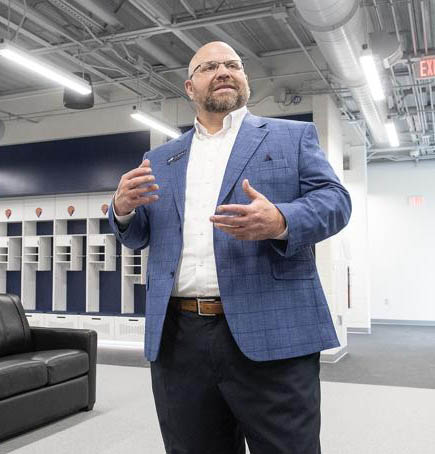
Tim Pavlechko
Bucknell Deputy AD → Bucknell AD
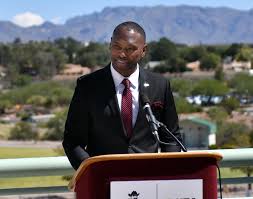
Joe Fields
Tulsa Deputy AD → New Mexico State AD

Cameron Walker
Tennessee Deputy AD → Utah State AD
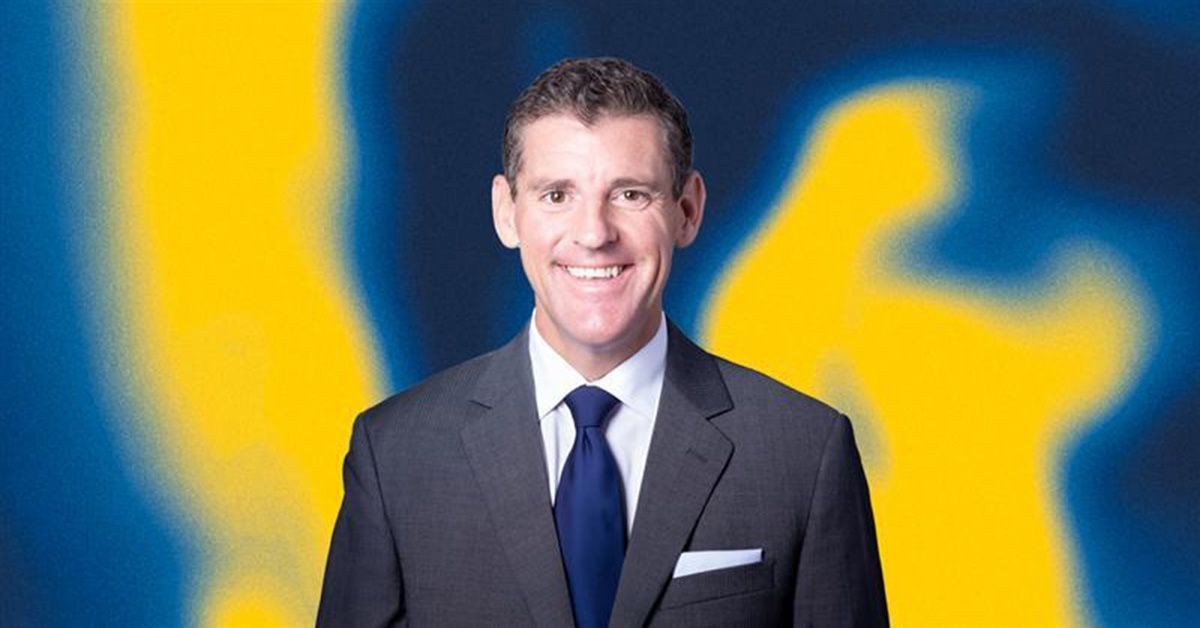
Andy Fee
Seattle Deputy AD → UC San Diego AD
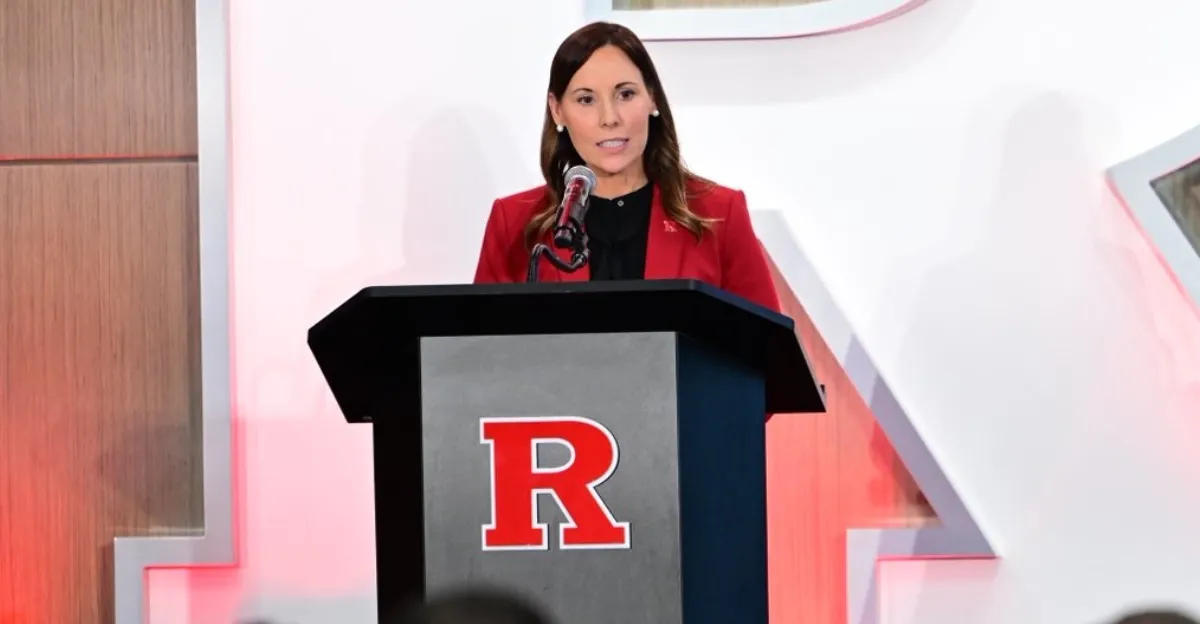
Keli Zinn
LSU Deputy AD → Rutgers AD

Gerald Harrison
Austin Peay AD → Marshall AD
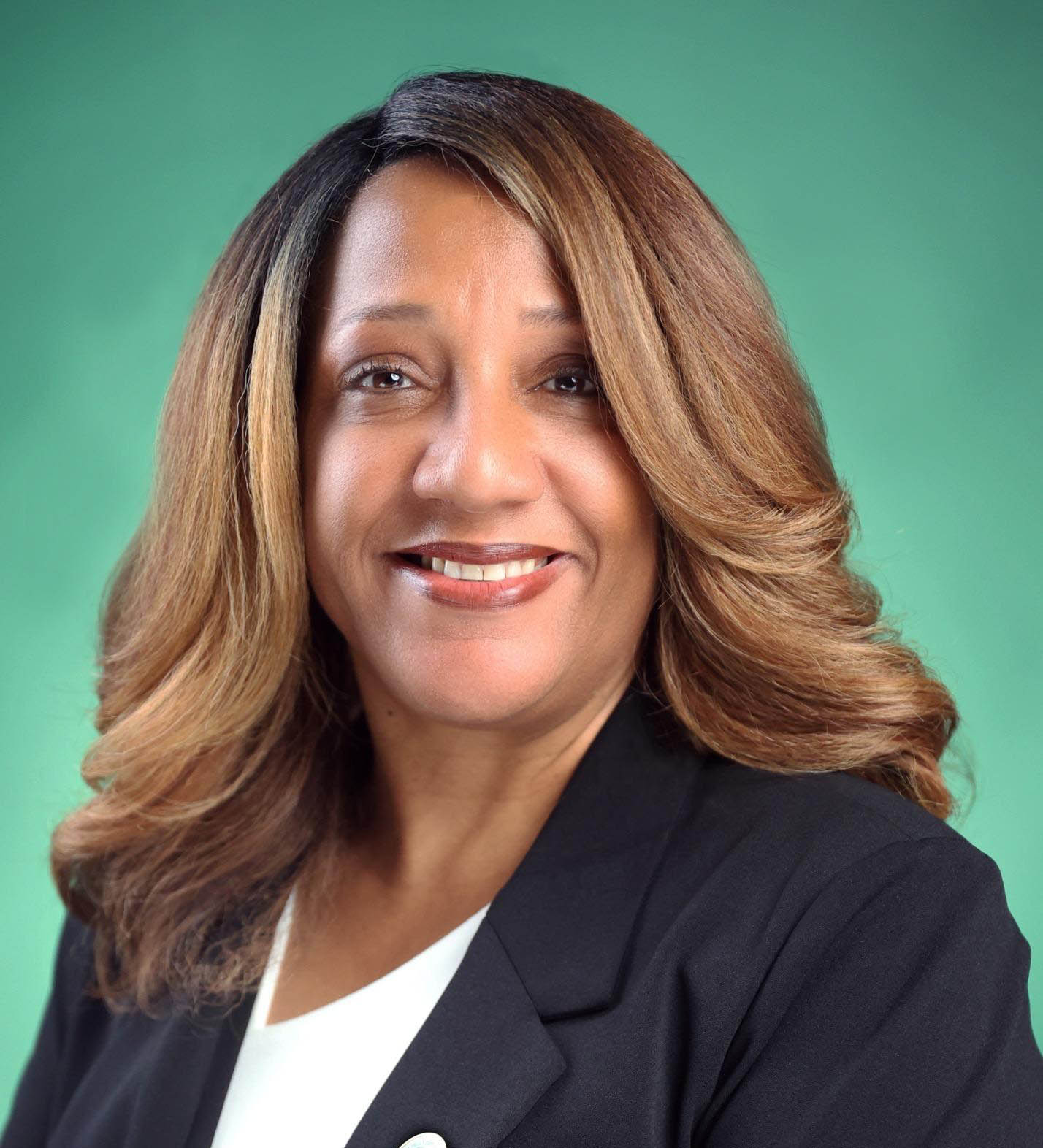
Alecia Shields Gadson
Alcorn State Deputy AD → Mississippi Valley State AD
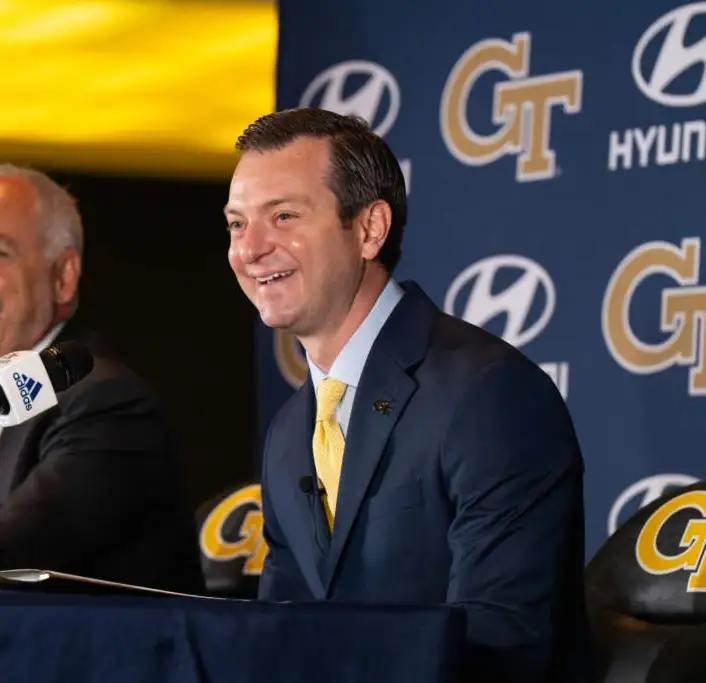
Ryan Alpert
Tennessee Deputy AD → Georgia Tech AD
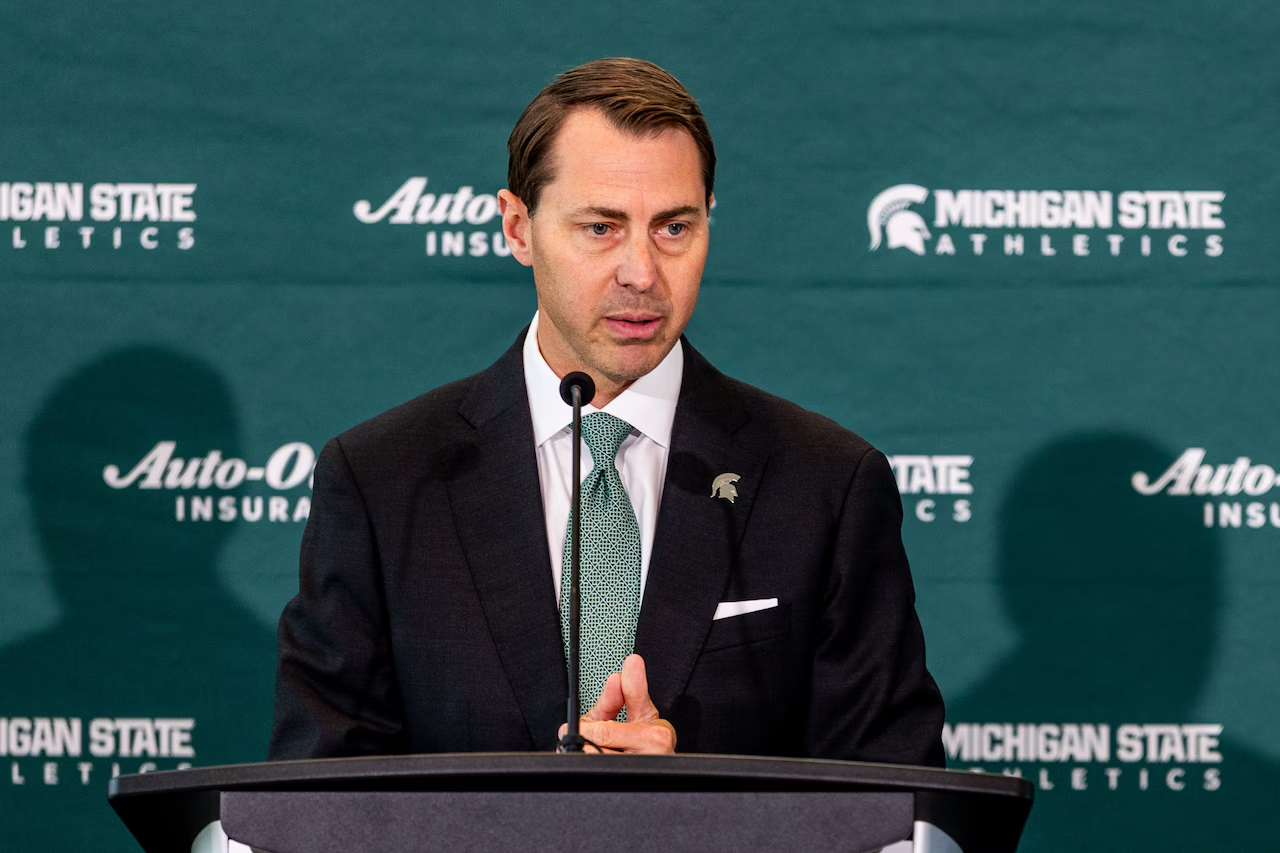
J Batt
Georgia Tech AD → Michigan State AD
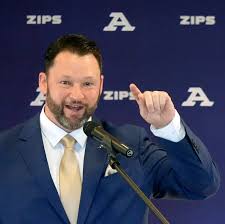
Andrew Goodrich
Gardner Webb AD → Akron AD
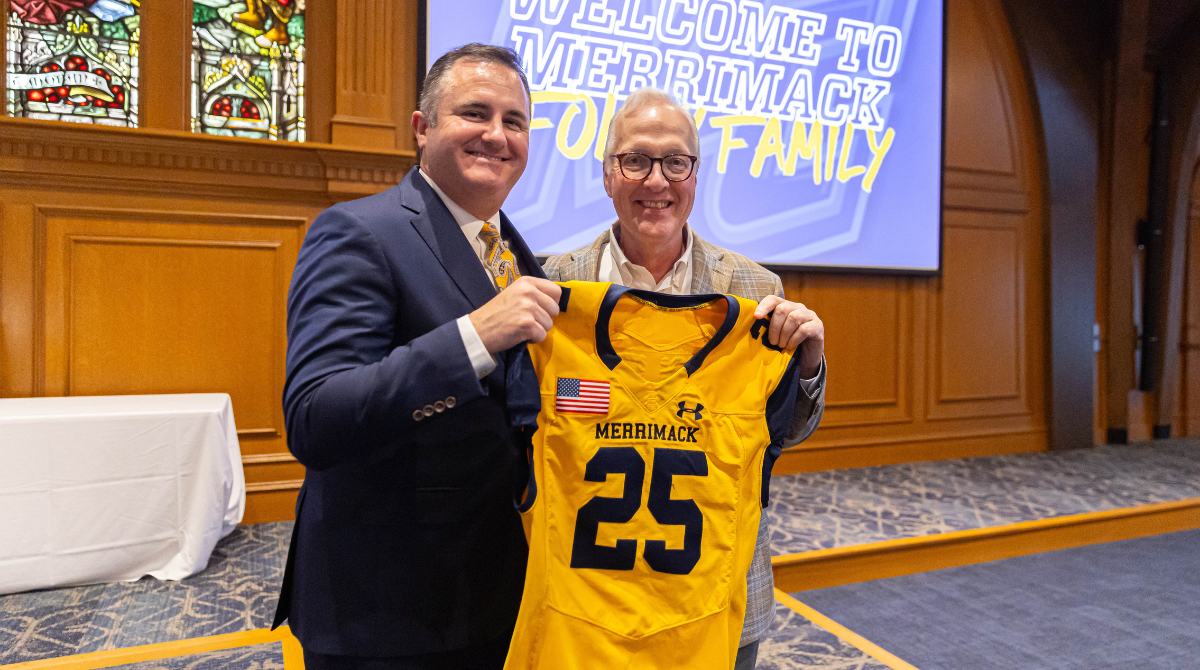
Joe Foley
TCU Senior Associate AD → Merrimack AD
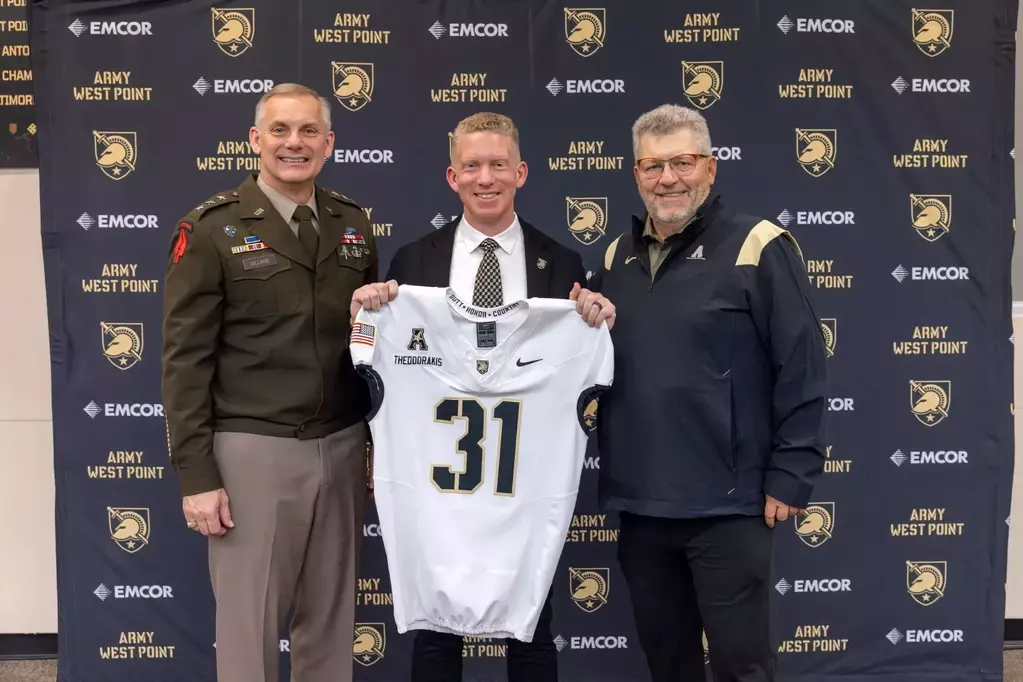
Tom Theodorakis
Army Deputy AD → Army AD

Mike Broeker
Marquette Deputy AD → Marquette AD
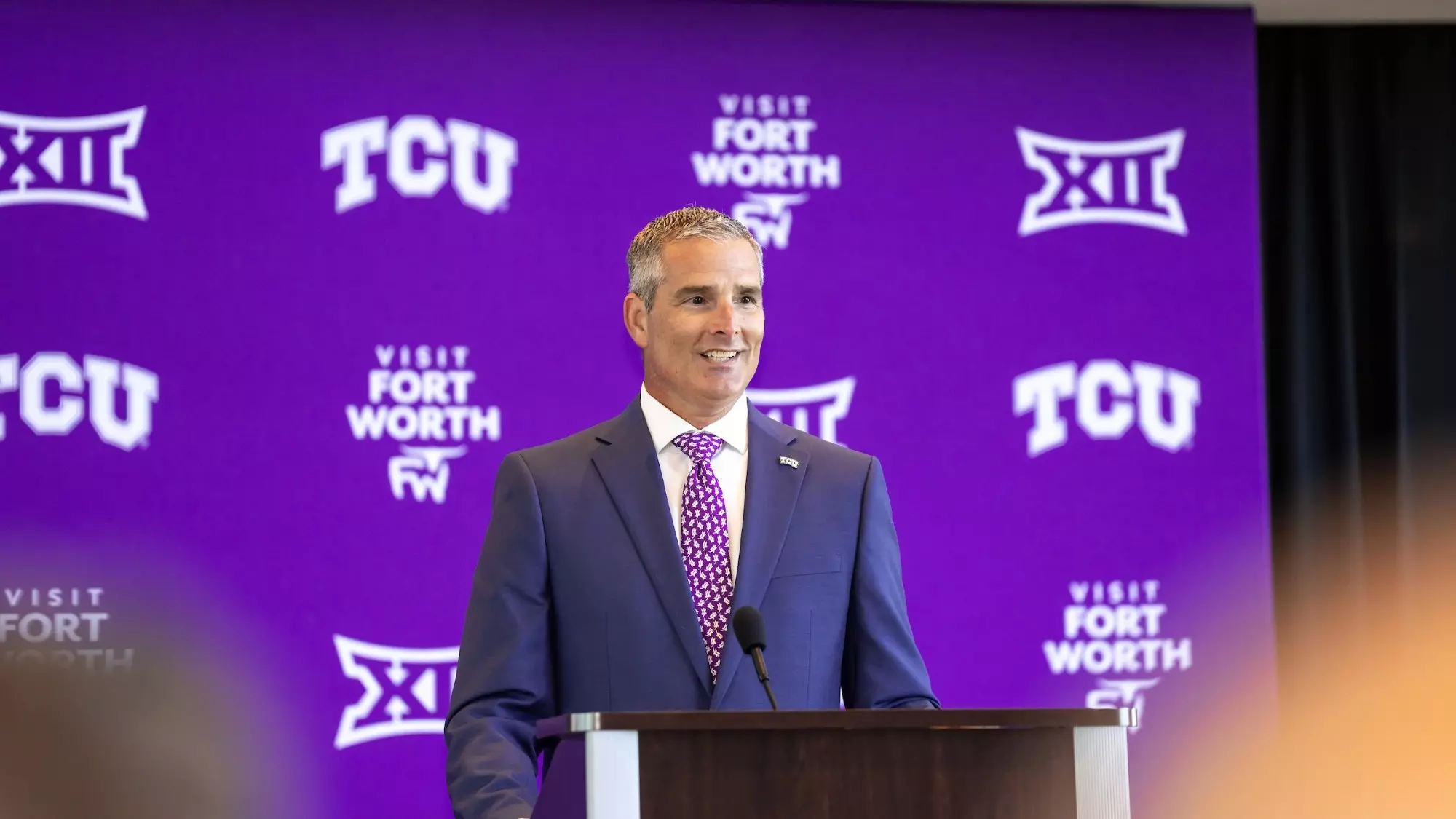
Mike Buddie
Army AD → TCU AD
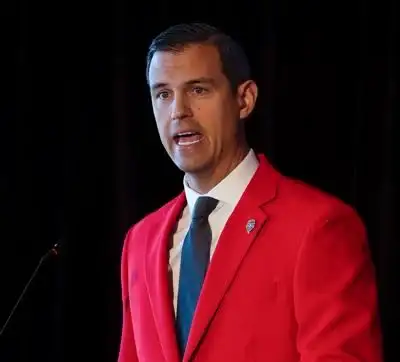
Fernando Lovo
Texas Executive Senior Associate AD → New Mexico AD
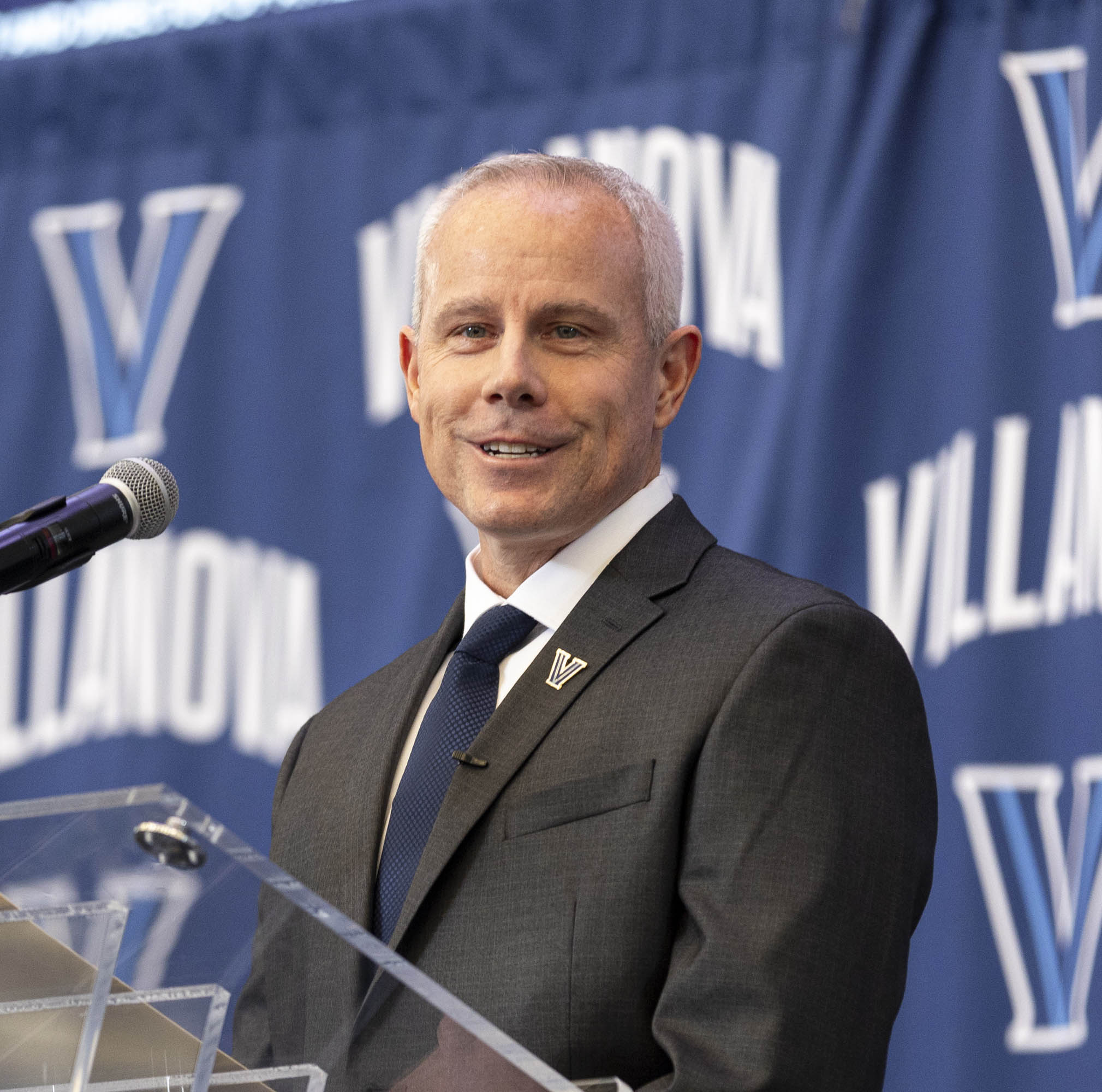
Eric Roedl
Oregon Deputy AD → Villanova AD
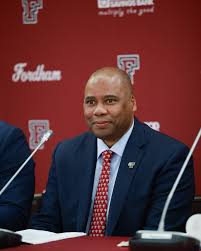
Charles Guthrie
Akron AD → Fordham AD
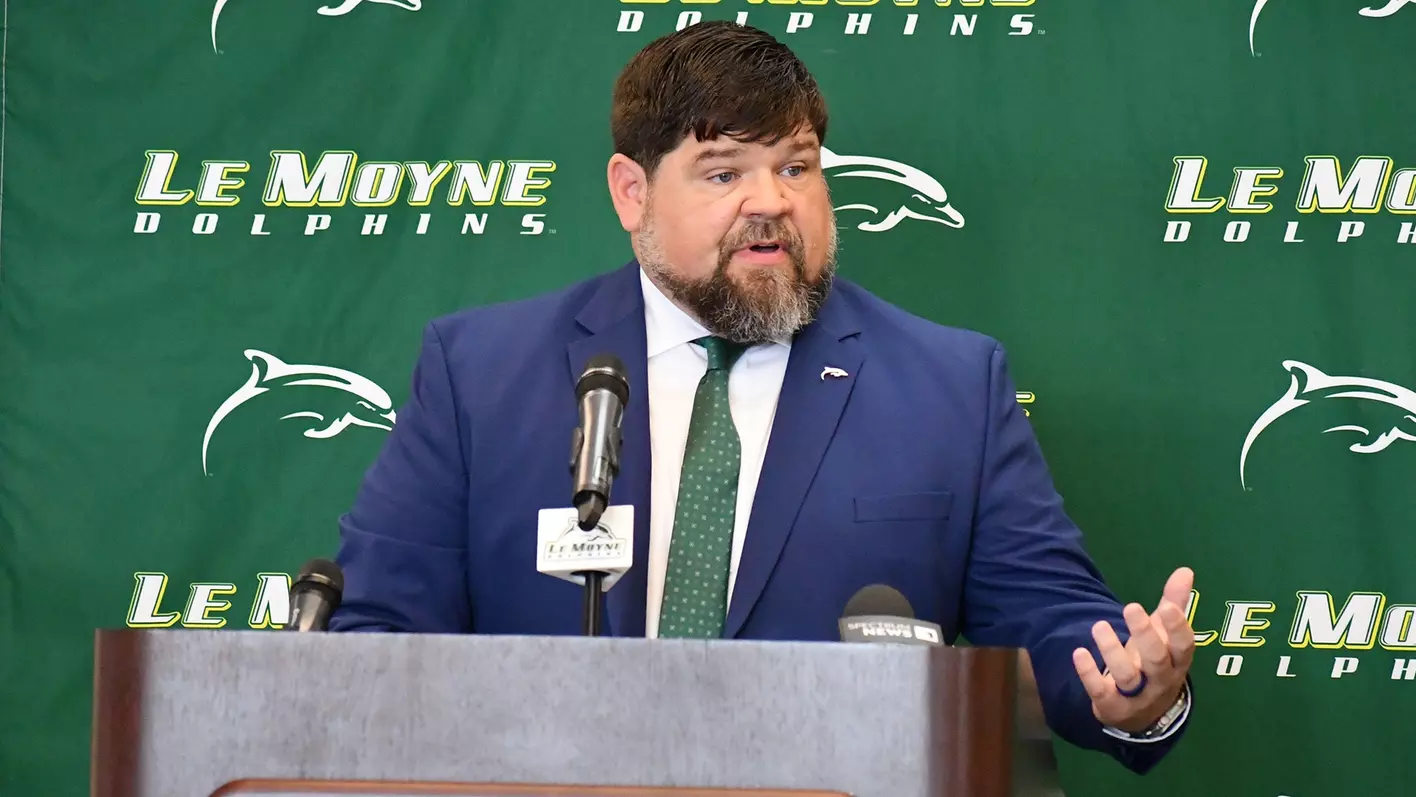
Phil Brown
Vanderbilt Executive Associate AD → Le Moyne AD
CLOSING
now streaming
The CALS Report is a podcast dedicated to bringing leadership insights, career advice, and in-depth conversations with the top voices in college athletics. Hosted by the team behind the Collegiate Athletics Leadership Symposium (CALS), each episode dives into the challenges and opportunities shaping the future of college sports.
Whether you're an athletics director, up and coming administrator, or passionate about sports leadership, The CALS Report provides actionable advice and real-life stories from the leaders at the forefront of college athletics.

THank you to our cals25 interns
A heartfelt thank you to our CALS 25 Intern team! Their hard work and positivity were instrumental in making this year’s event a success. We can’t wait to see the impact they’ll have on the world of college athletics!

Thank you to all our incredible partners for your unwavering support of CALS and your commitment to advancing college athletics.














.jpg)

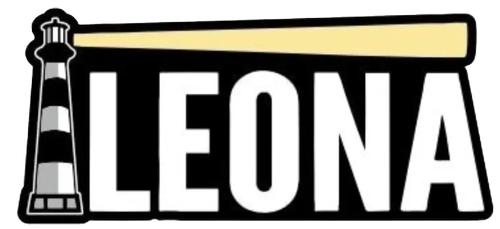








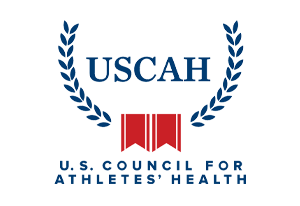















.jpg)












.jpeg)
Issue 11, OCTOBER 2025
CALS Director:
Will Reece
Creative Director:
Grant Hill
Contributing Editors:
Ryan Bradley
Laura Keep
Forest Reece
Contributing Writers:
Ashley Beach
Ryan Bradley
Laura Keep
Will Reece
Trevor Wyckoff
Photography:
Ava Miles
Design:
Finch Creative, Oklahoma City
The CALS Report is the official publication of the Collegiate Athletics Leadership Symposium, produced by NextLevel.


social media buzz